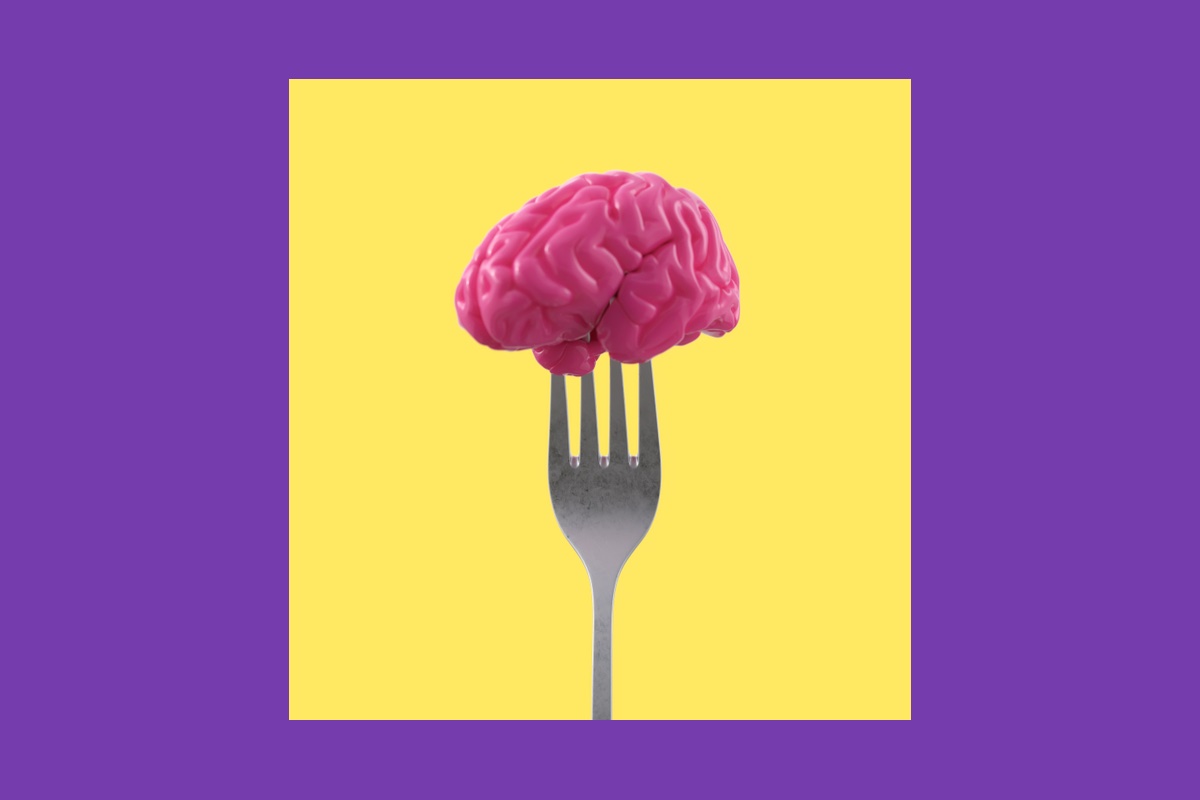
News Articles listing

Where Do Food Cravings Come From – And Can We Stop Them?
- July 26, 2024
What triggers food cravings and wha can we do about them?

WHO Advises Not to Use Non-Sugar Sweeteners for Weight Control in Newly Released Guideline
- May 15, 2023
The WHO advises against using non-sugar sweeteners for managing body weight or lowering the risk of noncommunicable diseases.

Study: Moms, Caregivers in Homes with Food Insecurity Need Mental-Health Supports
- July 24, 2024
Recent research discovers that mothers experience negative mental health impacts due to food insecurity.

Western Diet Impacts the Gut, May Heighten IBD, Colon Cancer Risk
- July 24, 2024
New research finds an association between the Western diet and both inflammatory bowel disease (IBD) and colorectal cancer.

Mediterranean Diet May Aid Mental Health in Rheumatoid Arthritis Patients
- July 24, 2024
Following a Mediterranean diet more closely is linked to reduced chances of depression in people with rheumatoid arthritis.

Boosting Fruit Intake During Midlife Can Ward Off Late-Life Blues
- July 22, 2024
New research shows high fruit consumption to be associated with lower odds of depressive symptoms during late-life.

Economic Survey Emphasizes Need to Focus on Healthy Diet, Mental Health
- July 21, 2024
New research shows that India's adult obesity rate has more than tripled, and the annual rise in childhood obesity is the steepest worldwide.

Could Taking Vinegar Every Day Help Reduce Depression?
- July 21, 2024
New research discovers the effects of daily vinegar ingestion on depression symptoms.

Scientists Reveal Startling Impact of Junk Food on the Brain’s Reward Center
- July 21, 2024
Discover how a high-fat, high-sugar diet alters neural pathways and influences food-seeking behaviors.

Weight Loss Reduces Risky Decisions and Boosts Mood in Highly Obese Individuals, Study Finds
- July 21, 2024
A recent study explores the impact of substantial weight loss in severely obese individuals.

Priority of Airmen’s Health and Wellness
- July 19, 2024
Discover how airmen prioritize health and wellness.

Are Fermented Foods Like Kombucha Actually Good For You?
- July 20, 2024
Explore the rising popularity of fermented foods.

Healthy Prenatal Diet Linked to Lower Autism Risk
- July 19, 2024
A new study suggests that a healthy prenatal diet may reduce the risk of autism and social communication difficulties in children.

Altered Mealtimes Linked to Depression, Anxiety in Shift Workers
- July 18, 2024
A new study of airline personnel found that irregular meal times can increase the risk of anxiety and depression.

How Often You Poop Can Affect Your Health Well Beyond the Gut, Study Suggests
- July 16, 2024
Discover how the frequency and quality of your stool may reveal a lot about your long-term health.

Low-Calorie Diets Harm Athletes’ Performance and Health
- July 16, 2024
New research emphasizes the need for awareness and better support for athletes.

Iron Deficiency Among Swedish Military Women Doubles During Training, Study Finds
- July 10, 2024
Study reveals iron deficiency in Swedish military women doubles during training.

Exploring the Link Between Lifestyle Patterns and Depression in Diabetic Individuals
- July 9, 2024
A recent study examined how lifestyle habits and diet affect depression in people with diabetes.

Greater Adherence to EAT-Lancet Diet Linked to Lower Depression and Anxiety Risk
- July 8, 2024
Recent research examines the link between adherence to the EAT-Lancet diet and the occurrence of anxiety and depression.

Healthy Eating Habits Can Help Prevent Cognitive Decline Later in Life
- July 2, 2024
Maintaining a high-quality diet during youth and middle age contributes to preserving brain health in later years.

Can Cooking in Community Slow Dementia and Diabetes?
- July 1, 2024
New cooking classes for older people of color may delay diet-related diseases and offer numerous other benefits.

The High Risk of Eating Disorders for Those With ADHD
- June 28, 2024
People with ADHD may be up to 18 times more likely to face an eating disorder than neurotypical people.

Specific Bacteria in the Gut Associated with Food Addiction
- June 26, 2024
Gut bacteria linked to food addiction and obesity: Identifying triggers and safeguards.

Dietary Fiber Found to Regulate Gut Bacteria’s Use of Tryptophan, Impacting Health
- June 25, 2024
Researchers have found that dietary fiber crucially influences the balance between beneficial and harmful substances by affecting colon bacteria behavior.

Gut Microbiome May Influence How We Handle Stress, Study Finds
- June 28, 2024
A recent study in Nature Mental Health explored how patterns in the brain-gut microbiome (BGM) are linked to stress resilience.

How Depressing? Junk Food Is Bad for Your Mental Health, Study Warns
- June 23, 2024
According to a major study, consuming ultra-processed foods significantly increases the risk of depression.

Can You Manage ADHD Symptoms With Food?
- August 13, 2023
Discover the possible links between dietary intake and ADHD.

Food Hoarding is a Problem. Here is What You Need to Know.
- June 21, 2024
Discover how food insecurity and mental, emotional, and physical depravity are tied to food hoarding.

Study Links Gut Health and Brain Function in Resilient Individuals
- June 21, 2024
Discover the link between resiliency, the brain, and the gut microbiome.

Study Finds Americans Are Eating Better … but Not by Much
- June 19, 2024
New research shows that American's diet quality is improving, if only by a little.

Psychological Effects of GI Disorders
- June 18, 2024
Dive deep into the psychological effects that patients with GI disorders often experience with Dr. Madison Simons.

Researchers Discover Associations Among PTSD, Diet, and the Gut Microbiome
- October 19, 2024
Recent research addresses the impact that diet and the gut microbiome have on PTSD symptoms.

New Insights into How Fathers’ Diet Before Conception Can Affect Children’s Health
- June 5, 2024
Recent research reveals how the father's health can impact their children even before conception.

Research Finds Link Between Fatty Foods and Anxiety
- June 17, 2024
New research shows the connection between a high-fat diet and the expression of genes that are associated with stress and anxiety.

From Anxiety to Cancer, the Evidence Against Ultra-Processed Food Piles Up
- June 18, 2024
Ongoing research continues to uncover links between ultra-processed foods and various health issues.

Food Plays a Role in Children’s Mental Health — And Some Schools Are Stepping In to Help Those Going Hungry
- June 17, 2024
Australian schools step in to feed their children, boosting their mental health and development.

Plant-Based Ultra-Processed Foods May Raise Heart Disease and Mortality Risk
- June 14, 2024
Recent research links ultra-processed, plant-based food to an increased risk of cardiovascular disease and mortality.

Turning To Junk Food During Stress? Study Says It Increases Anxiety
- June 14, 2024
New research finds that junk food may increase anxiety instead of providing comfort.

Poor Quality Diet Makes Our Brains Sad
- June 5, 2024
Eating a poor quality diet might lead to brain changes that are associated with depression and anxiety.

‘Binge Eating’Linked to a Specific Group of Neurons in the Brain
- June 8, 2024
New research finds specific neurons that drive compulsive eating.

Poor Diet Tied to Brain Changes Linked to Depression
- June 5, 2024
Do poor eating habits decrease gray matter and impact neurotransmitters in the brain?

Heritage Diets Have Important Health Benefits and Policy Implications, Review Finds
- June 4, 2024
A recent review analyzed traditional Latin American, Asian, and African diets and their impact on diet quality and health markers.

Eating More Fruit May Reduce Your Risk Of Depression
- June 4, 2024
New research looks at fruits' contribution to well-being for individuals 45 and older.

For Women With Antenatal Depression, Micronutrients Might Help Them and Their Babies – New Study
- June 4, 2024
New research shows that micronutrients may be an overlooked treatment for depression.

What’s Keeping You Up at Night? Could Ultra-Processed Foods Be Associated With Your Insomnia?
- May 30, 2024
Intake of ultra-processed foods is associated with a higher prevalence of insomnia, according to a new study.

Brain Chemistry Sheds Light on Overeating and Memory
- June 2, 2024
New research on fruit flies provides novel insights into overeating, obesity, and memory in humans.

For Those Who Wished For “A Magic Fix” For Weight Loss, Ozempic Craze Can Trigger Complicated Feelings
- June 1, 2024
While research has explored the mental health impact of Ozempic, less attention has been given to their effects on those not taking them.

Experiencing Nature Seems to Have an Important Impact on Food Choices
- May 30, 2024
New research shows that spending time in nature has an influence on our dietary intake.

New Meta-Analysis Supports Omega-3 Supplementation For Aggression Reduction
- May 28, 2024
Could supplementing with omega-3 fatty acids help reduce aggression?

Eating More Fruits and Vegetables May Lead to Optimal Sleep Duration
- May 27, 2024
Discover how nutrition impacts sleep.

‘When You Improve Nutrition, You Reduce Violence’: Psychologist Kimberley Wilson on Working in Europe’s Largest Women’s Prison
- May 26, 2024
Kimberly Wilson provides valuable insights into nutrition's role in improving mental health.

Academic and Doctor Chris van Tulleken: ‘Ultra-Processed Products Are Food That Lies To Us’
- May 19, 2024
Discover valuable insights on improving our diet as a nation with doctor Chris van Tulleken.

Distraction During Meals Linked to Increased Hedonic Consumption
- May 17, 2024
Is distraction increasing your caloric intake?

Huge Study Highlights the Connection Between Diet and Brain Health
- May 14, 2024
New research sheds light on the beneficial impacts of a nutrient-dense diet on the brain.

The Link Between Gut Microbiome, Mental Health, and Crohn’s Disease
- May 15, 2024
This article explores the connection between Crohn's disease and the gut-brain axis.

What is a ‘Hyperfixation Meal’ and Why Does It Happen? Mental Health Specialists Explain
- May 14, 2024
Discover the connection between ADHD and hyperfixation meals.

Diet and Gut Microbiota: How What You Eat Shapes Your Gut Health
- May 13, 2024
Discover how your dietary intake influences your gut health.

Ketogenic Diet Boosts Mental Health: Study Reveals Reduced Stress and Improved Mood
- May 14, 2024
Could a ketogenic diet be the key to improved mood and mental health?

4 Best Drinks for Lower Anxiety, Recommended by Dietitians
- May 12, 2024
Struggling with anxiety? Try sipping on these drinks recommended by dietitians.

Depression, Anorexia, and Gut Microbiota: A New Link Uncovered by Researchers
- May 6, 2024
New research shows that individuals with depression and anorexia have distinct differences in their gut microbiota composition.

How Exactly Does A High-Fat Diet Increase Alzheimer’s Risk?
- May 7, 2024
Research shows how a high-fat diet leads to cognitive decline.

Reevaluating Military Fitness Standards
- May 6, 2024
Discover the pervasiveness of weight stigma in the military.

Handful of Nuts a Day ‘Associated With 17% Lower Risk of Depression’
- August 8, 2023
Eating a handful of nuts every day is associated with a 17% lower risk of depression, scientists have said.

3 Psychological Barriers That Make It Hard to Go Vegan
- May 3, 2024
New research shows that there are three psychological reasons why people avoid going vegan.

Seafood, Eggs, and Meat May Help Lower the Risk of Bipolar Disorder
- May 3, 2024
New research suggesting that dietary interventions could help reduce the incidence and intensity of bipolar disorder.

Study Finds Social and Psychological Factors Fuel Teen Cravings For Ultra-Processed Foods During Screen Time
- May 2, 2024
A new study dives deep into the factors influencing adolescent's consumption of processed food and screen time.

Sight and Smell of Food Kickstarts Liver Activity
- April 25, 2024
New research finds that just seeing and smelling food may drive adaptations in the liver.

High-Fat Diet Linked to Alzheimer’s Through Molecular Changes
- April 29, 2024
Discover why high-fat diets may contribute to the development of Alzheimer's disease.

Genetic Propensity to Higher Arachidonic Acid Levels Linked to Lower Bipolar Disorder Risk
- April 30, 2024
New research sheds light on an omega-6 polyunsaturated fatty acid that is linked to a lower risk of bipolar disorder.

Connections Between Food Additives and Psychiatric Disorders
- April 25, 2024
Discover what the current research says about food additives and mental disorders such as depression and anxiety.

Balanced Diet Linked To Superior Brain Health And Cognitive Function, Study Finds
- April 24, 2024
New research reveals a strong relationship between diet and brain health, cognitive function, and well-being.

Keto Diet May Help Lower Cholesterol, Toxic Proteins in Alzheimer’s Disease
- April 23, 2024
New research finds that following a ketogenic diet may have important inclinations for the progression of Alzheimer's disease.

‘Ozempic Personality’: Why You May Not Act Like Yourself on Weight Loss Drugs
- April 23, 2024
'Ozempic Personality' suggests that individuals using GLP-1 drugs may experience changes in their mood and demeanor.
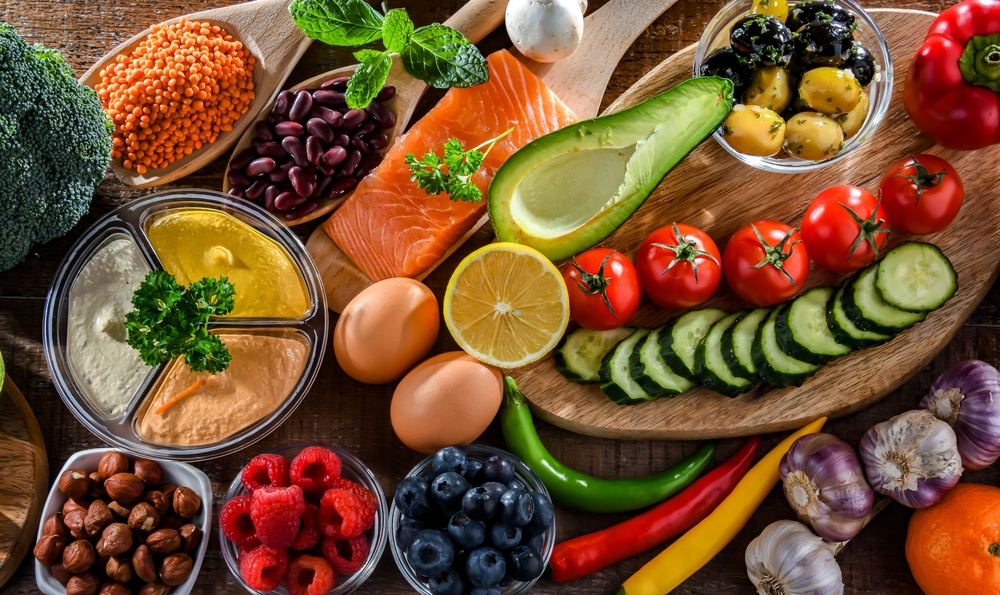
Statistical Analysis Highlights the Benefits of Mediterranean Diet on Emotional Well-Being
- April 24, 2024
A recent study takes a look at the relationship between consuming a Mediterranean Diet, subjective well-being, and socioeconomic factors.

Roasted Green Tea, a Japanese Staple, Could Boost Cognitive Performance
- April 22, 2024
New research highlights how consuming green tea can boost mental performance.

Western Diet May Cause Long-Lasting Memory Damage to Growing Brains
- April 22, 2024
In a recent animal study, researchers find that memory damage from a Western diet remains even after implementing a healthier diet approach.

What Is Food Noise and How Do You Get Rid of It?
- April 18, 2024
Discover what the novel term, food noise, means and how to combat it.

How Big Food Co-Opted the Anti-Diet Movement for Profit
- April 10, 2024
New research shows how major food brands are leveraging the anti-diet movement for profit.

High Blood Sugar, Blood Fats Linked to Higher Anxiety and Depression Risk
- April 11, 2024
Do high blood-sugar and triglyceride levels predict depression and anxiety?

Eating Your Way to Less Stress: Mediterranean Diet Linked to Lower Stress in Korean Baby Boomers
- April 10, 2024
Could following a Mediterranean diet reduce your stress levels?

A ‘Balanced’ Diet is Better Than A Vegetarian One in Supporting Brain Health
- April 9, 2024
Discover the optimal diet for brain health.
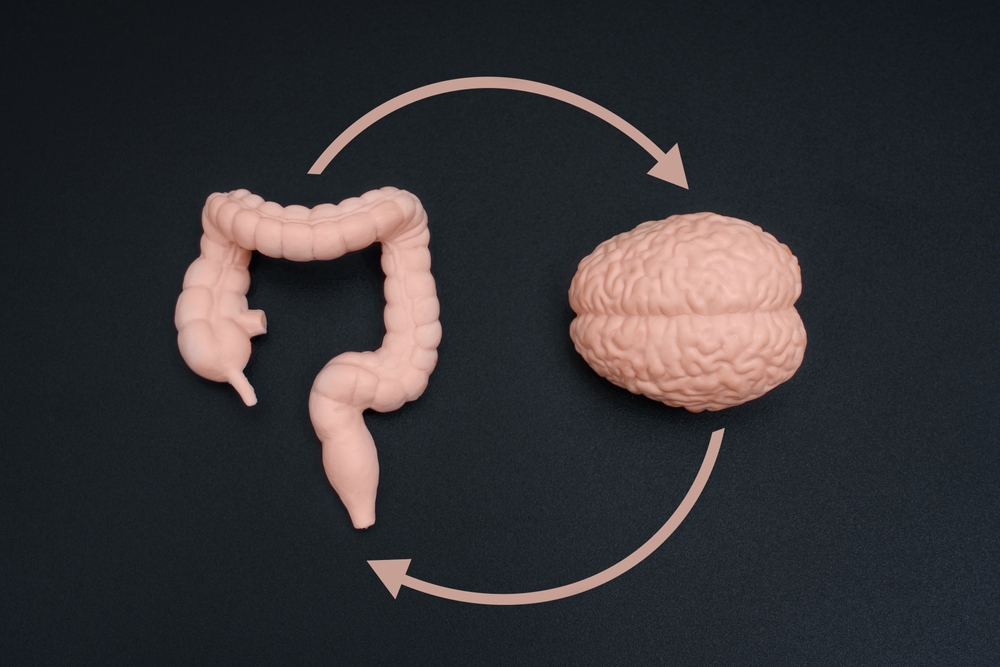
Gut-Friendly Psychobiotics Could Brighten Moods and Fight Depression
- April 8, 2024
New research takes a deep dive into the ability of psychobiotics to restore microbial balance and regulate the MGB axis.

Obesity and a High Fat Diet May Accelerate Brain Aging, Lead to Cognitive Decline
- April 6, 2024
New research discovers how obesity-related inflammation may impact cognitive processes.
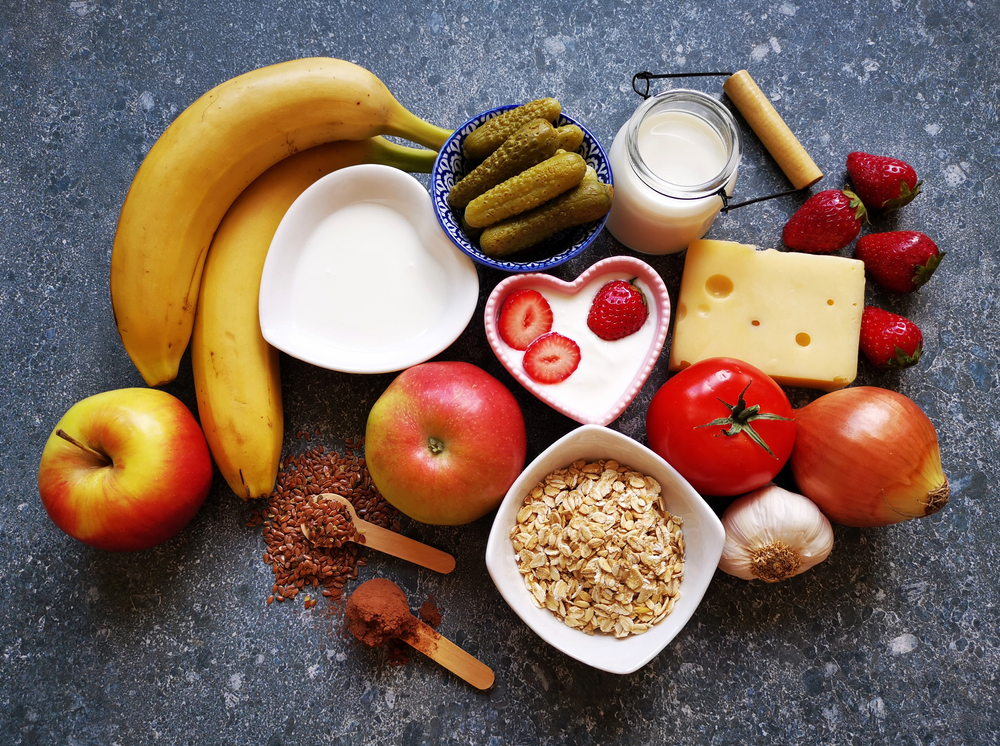
From Gut to Mind: Exploring Prebiotics and Probiotics as Dual Fighters Against Depression and Obesity
- April 4, 2024
New research takes a closer look at the relationships between depression, nutrition, exercise, and our gut microbiome.

Feeling Lonely? It May Affect How Your Brain Reacts to Food, New Research Suggests
- April 5, 2024
How does loneliness impact control and motivation?

Green Environments Linked to Lower Depression and Anxiety Risk, Study Finds
- March 31, 2024
Discover the pathways underlying how greener environments improve psychological well-being.
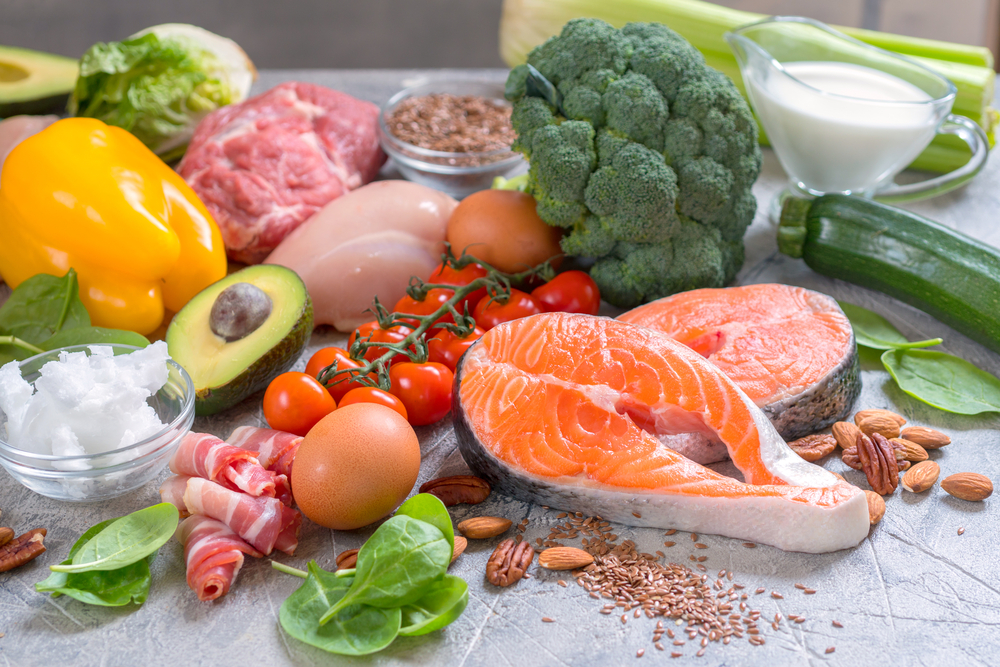
Pilot Study Shows Ketogenic Diet Improves Severe Mental Illness
- April 1, 2024
New research finds that the metabolic effects of a ketogenic diet may help stabilize the brain.

New Method Paves the Way for Clearer Dietary Guidelines on Brain Health
- March 25, 2024
Research increasingly links dietary patterns to cognitive health.

Addicted to Food
- March 24, 2024
https://www.psychologytoday.com/ie/blog/addiction-outlook/202403/addicted-to-food?amp
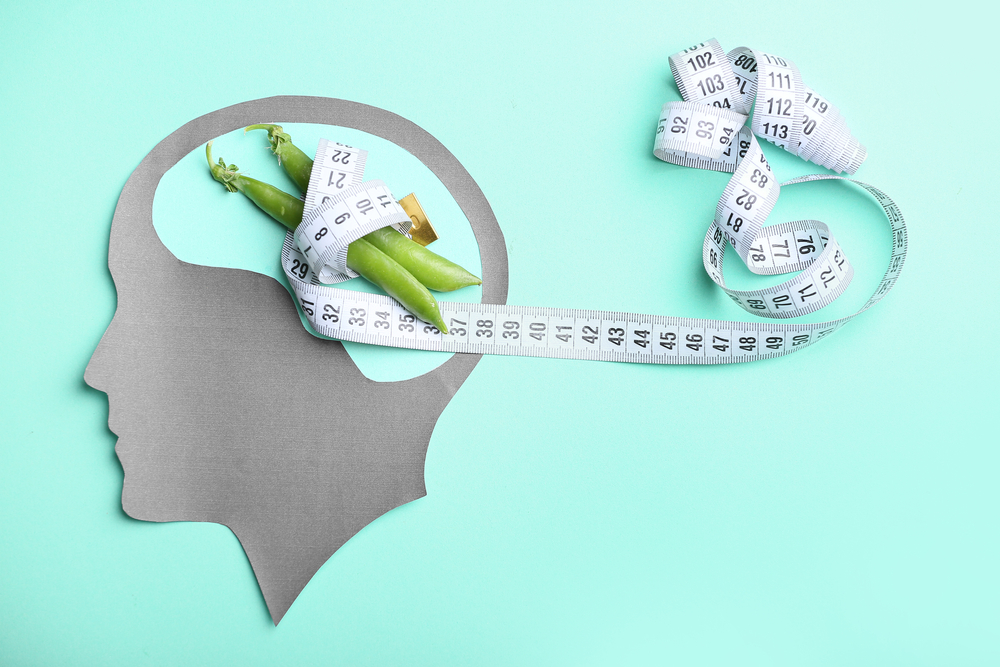
Scientists Pinpoint Anorexia’s Neurologic Origins
- March 22, 2024
Current research links anorexia to certain brain regions and paves the way for new therapies.

How the Standard American Diet Affects Your Brain
- March 20, 2024
Discover the pervasive impacts of a high-fat, high-sugar diet.
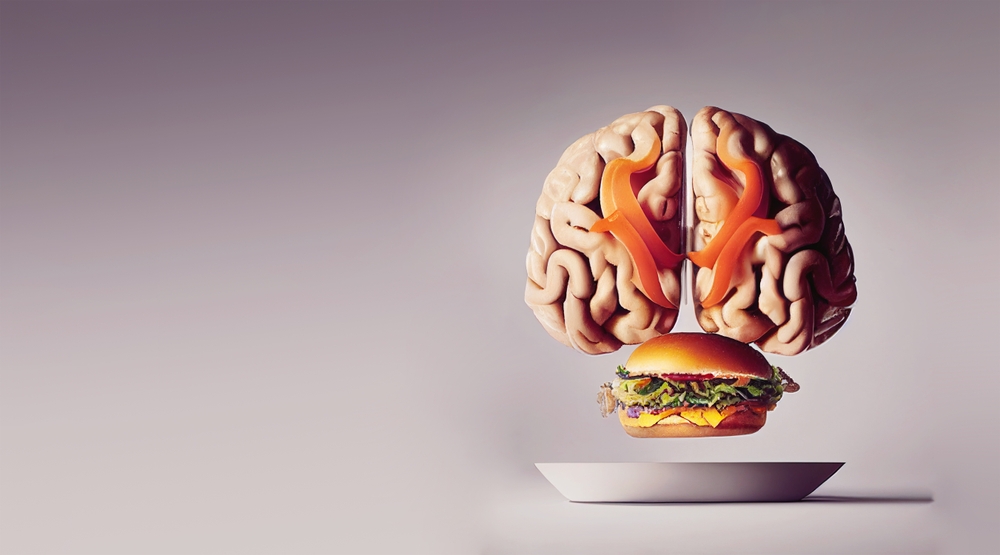
Brain’s Food-Seeking Circuit Overrides Hunger Signals
- March 19, 2024
New research sheds light on what cells may be responsible for food-seeking behaviors, regardless of hunger.
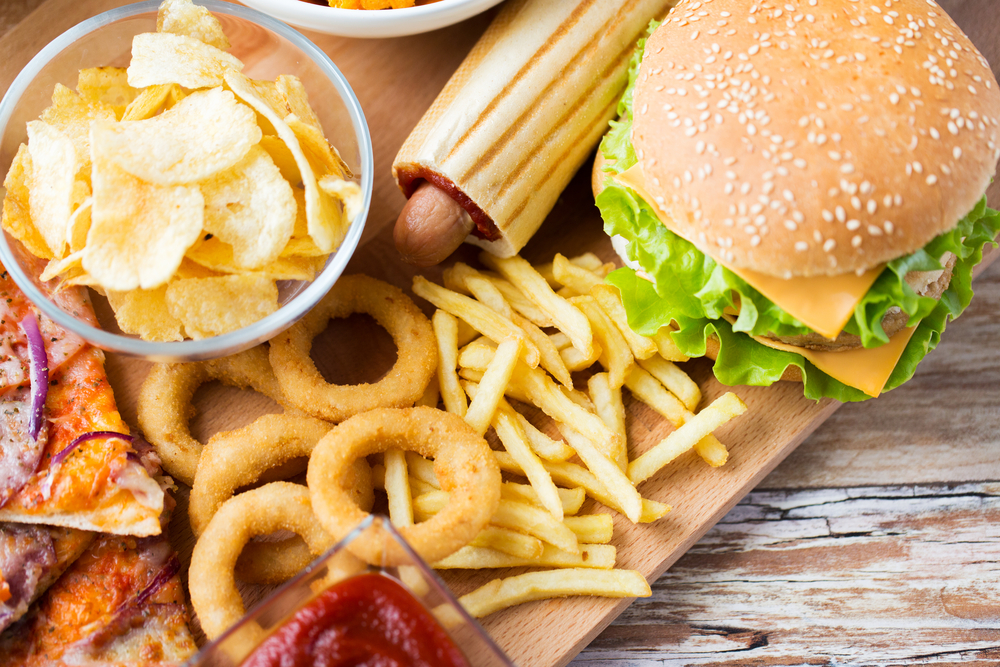
Fatty Foods Before Surgery May Hinder Memory and Cognitive Function
- March 17, 2024
Could high-fat foods before surgery lead to less effective outcomes, leading to cognitive and memory deficits?

Study Shows A Healthy Diet is Linked With a Slower Pace of Aging, Reduced Dementia Risk
- March 14, 2024
Discover the biological mechanism behind why diet can slow down the processes of aging and the development of dementia.

Nutrition’s Crucial Role in Alzheimer’s Progression Revealed
- March 10, 2024
New research reveals that nutrition-related variables are significantly associated with the onset and progression of Alzheimer's disease.

New Project Aims to Shed Light on Real-World Eating Behaviors Using AI-Enabled Wearable Technology
- March 6, 2024
Discover the new role of AI within the context of nutrition.
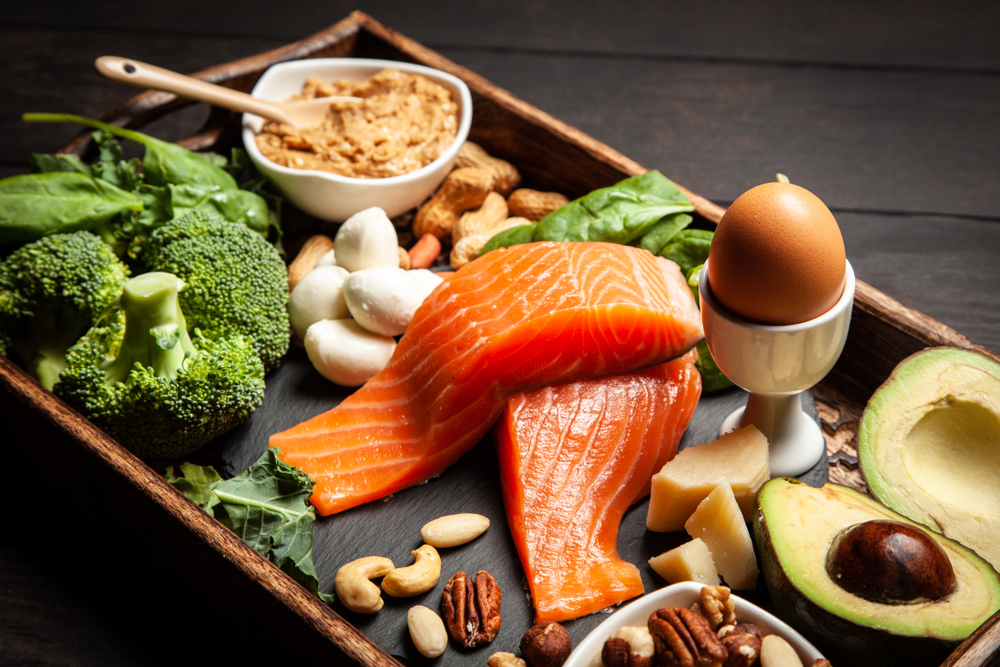
Patients Say Keto Helps With Their Mental Illness. Science is Racing to Understand Why
- January 27, 2024
Discover how a low carb, high fat diet could be the answer to your mental health concerns.

Consumption of High-Glycemic Foods Linked to Lower Facial Attractiveness
- March 6, 2024
New research finds that eating a high glycemic load breakfast could make you less attractive.

A New Dietary Approach for the Treatment of Irritable Bowel Syndrome
- March 4, 2024
Discover how shifting one's diet may alleviate not only symptoms of IBS, but also comorbid depression.

Doctor Warns About the Danger of Overlooking Eating Disorders for People of Color: ‘They’re Not Even Being Screened’
- February 26, 2024
Explore the profound effects that stereotypes surrounding eating disorders exert on individuals from diverse racial and ethnic backgrounds.

Mediterranean Diet Linked to Lower Depression Risk in Older Women
- February 25, 2024
Following the Mediterranean diet is linked to a lower occurrence of depressive symptoms, specifically noticeable in women.

Study Exposes Food Insecurity Among Graduate Students and Postdocs
- February 21, 2024
The prevalence of food insecurity on college campuses is an unforeseen yet escalating concern.

Research: Food, Eating Habits Tied to Emotional, Social Health
- February 14, 2024
Discover the multiple ways through which loneliness, food, eating behaviors, and health outcomes are interrelated.
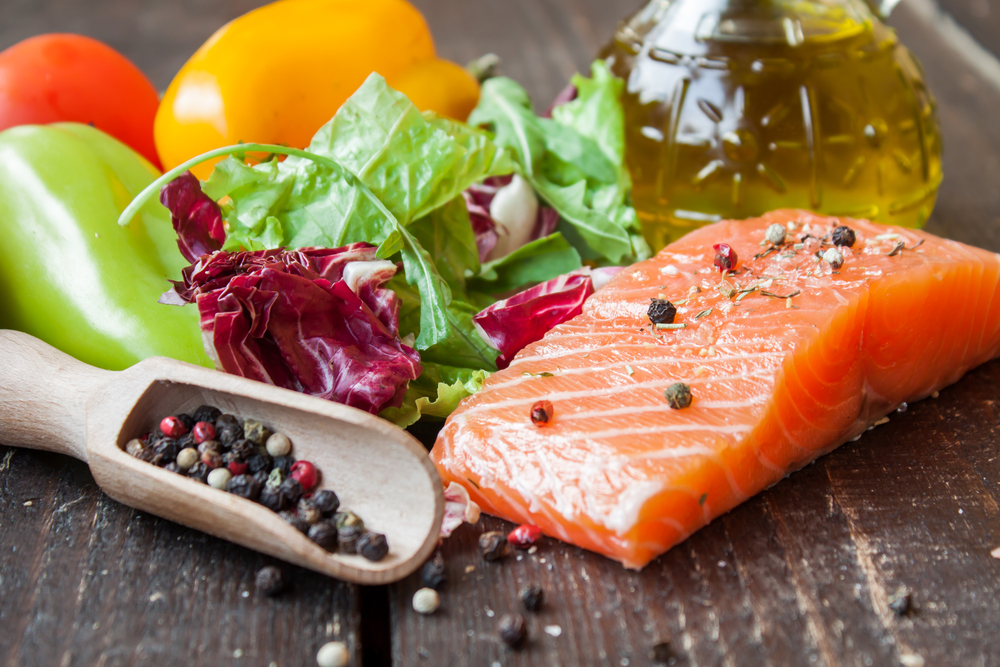
How Mediterranean and MIND Diets Could Improve Cognitive Health
- February 11, 2024
New research highlights how specific gut bacteria and short-chain fatty acids included in the Mediterranean and MIND diets improve cognition.

High-Fiber Diet Seen to Improve Memory in Huntington’s Mice
- February 6, 2024
New research finds that a high-fiber diet may lead to improvements in memory and reductions in depression-like behavior in animal models.

Restaurant Menus Are Designed To Trick You Into Spending More Money
- February 5, 2024
Restaurant menus are crafted to encourage higher spending through strategic design tactics.

Internal Body Sensations Could Reduce Some Of The Most Lethal Mental Health Conditions
- February 3, 2024
Discover the role of interoception in caring for your mind and body.
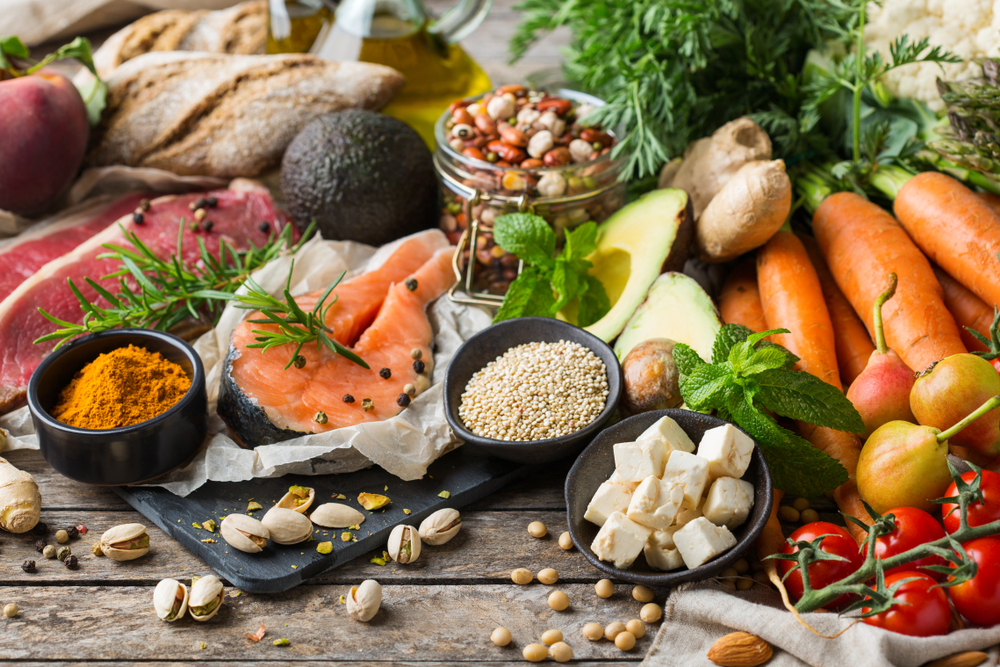
Why The Mediterranean Diet May Be Overhyped For Mental Health, From A Psychiatrist
- February 1, 2024
Is the Mediterranean Diet all it's cracked up to be? A psychiatrist weighs in.

Instagram Junk Food Content Can Negatively Impact Mood, Lead to Cravings
- February 1, 2024
What are the consequences of repeated exposure of junk food on social media?

Berry Consumption Shown to Lower Stress-Related Disease Risk in US Adults
- February 1, 2024
Discover why adding berries to your diet could make you more resilient to stress.

Study Finds Oral Health Indirectly Influences Subjective Psychological Well-Being in Older Adults
- January 30, 2024
Discover how oral health may predict well-being in older adults.

Avoiding Wheat Could Lessen Inflammation and Alleviate MS Symptoms
- January 30, 2024
New research finds that a protein in wheat and other grains may worsen symptoms of multiple sclerosis.
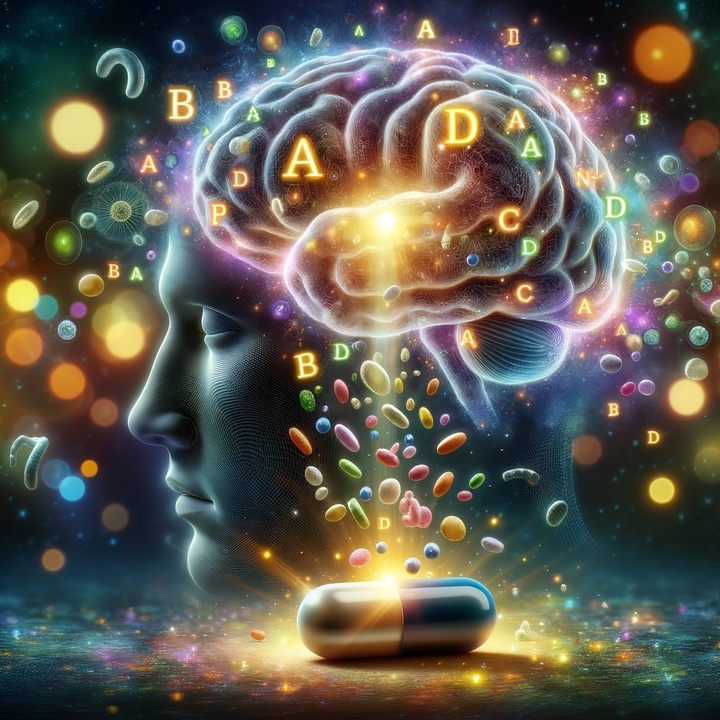
Third Major Study Finds Evidence That Daily Multivitamin Supplements Improve Memory and Slow Cognitive Aging in Older Adults
- January 28, 2024
New research adds to the evidence supporting a daily multivitamin for the prevention of cognitive decline.

Study Urges People to Think Twice Before Going on a Diet
- January 29, 2024
Delve into the dynamics of yo-yo dieting and uncover the intricacies behind weight loss struggles.

Mediterranean Diet Linked to Lower Anxiety and Stress Levels, But No Effect on Depression, Study Shows
- January 30, 2024
New research takes a closer look at the associations between consuming a Mediterranean diet and symptoms of mental illnesses.

Kiwifruit Improves Vitality and Mood in as Little as Four Days
- January 24, 2024
A new study shows just how fast eating kiwi can improve perceived health outcomes when compared to a vitamin C supplement.

Fasting Diets Show Promise in Enhancing Mood, Sleep, and Eating Behaviors
- January 28, 2024
Discover why the gut may be the mediating factor between fasting and its wide range of health outcomes.

New Study Reveals Why Fats and Sugars Are Irresistible
- February 26, 2024
New research divulges that we have two separate but consistent fat and sugar pathways that light up our dopamine reward centers.
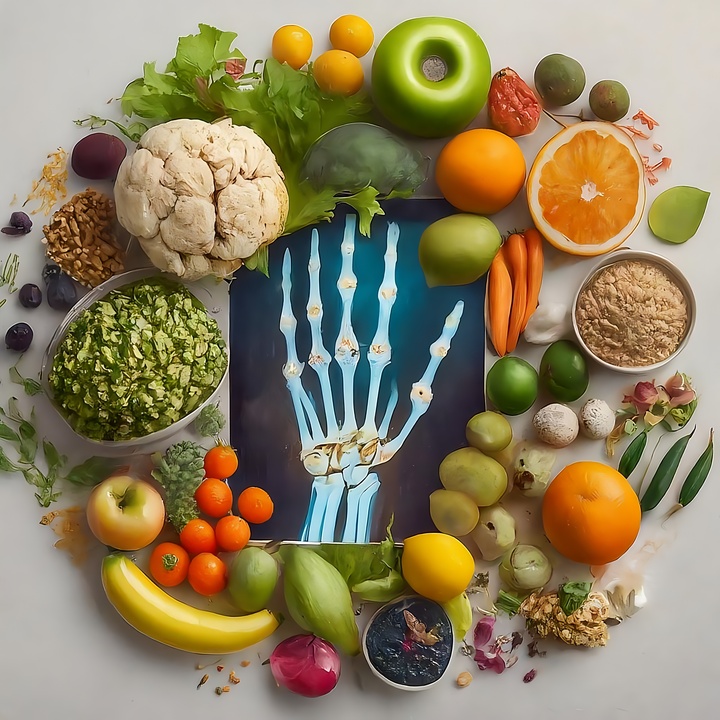
Prevalence, Risk, and Effects of Eating Disorders Among Patients With Rheumatic Diseases
- January 26, 2024
The prevalence, risks, and consequences of eating disorders among individuals with rheumatic diseases require thorough exploration.

Patients Say Keto Helps With Their Mental Illness. Science is Racing to Understand Why
- January 27, 2024
How does entering ketosis impact mental health outcomes?

For People With Obesity, Social Isolation Is the Greatest Risk Factor for Early Death
- January 25, 2024
A recent study proposes that addressing loneliness in individuals with obesity may contribute to extended and healthier lifespans.

Diets Promoting Inflammation May Slowly Lead to Depression, Anxiety
- January 25, 2024
Study suggests food choices can affect mental health over the long term.

What’s the Best Diet for Healthy Sleep? A Nutritional Epidemiologist Explains What Food Choices Will Help You Get More Restful Z’s
- January 17, 2024
Discover which foods help increase sleep quality.
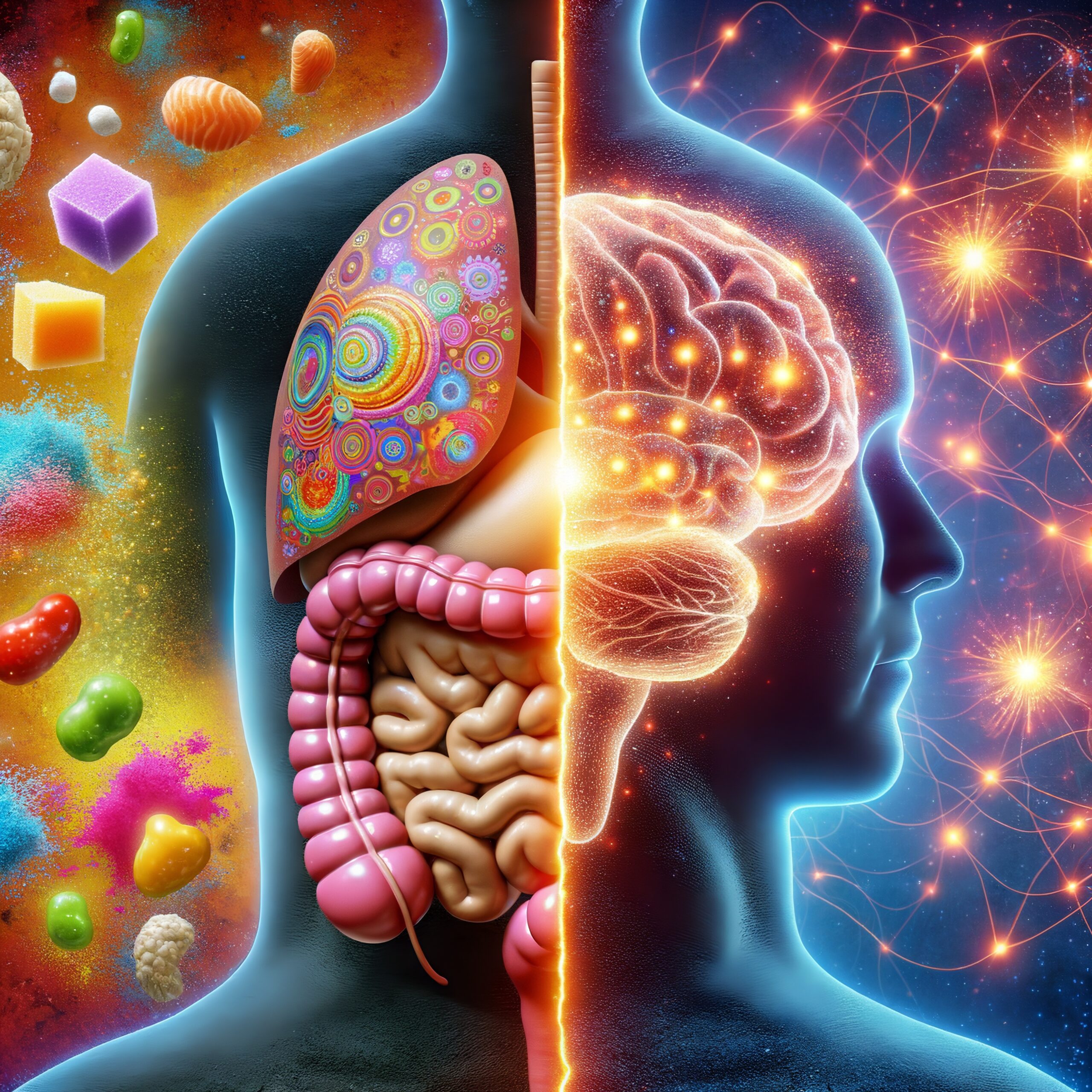
Gut-Brain Network for Sugar and Fat Cravings Discovered
- January 18, 2024
Researchers discover separate brain pathways for fat and sugar cravings, revealing one reason we can't resist indulgent treats.

Space Travel Taxes Astronauts’ Brains. But Microbes on the Menu Could Help in Unexpected Ways
- January 16, 2024
Discover the radical rethinking taking place when it comes to astronauts' diets.
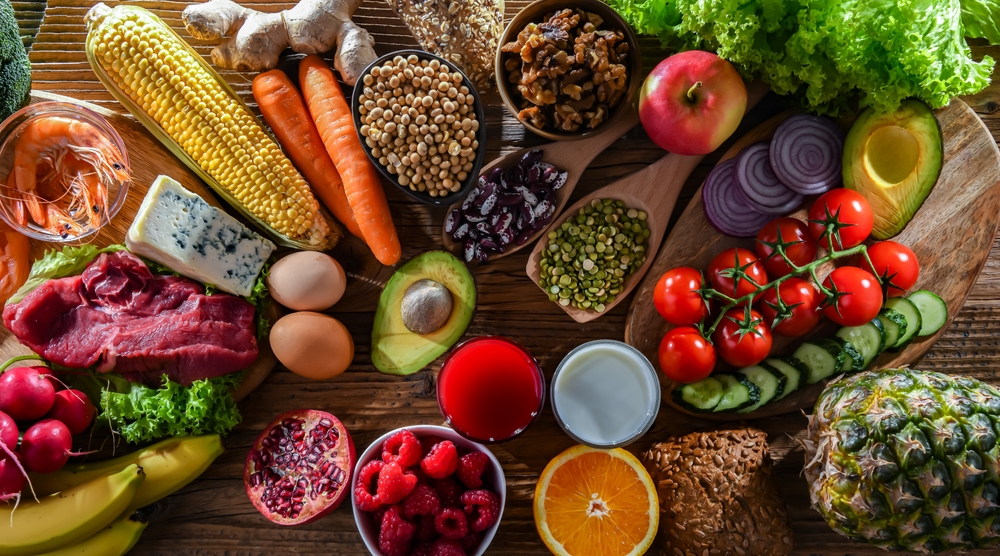
What We’re Getting Wrong About Nutrition and Mental Health
- January 16, 2024
Helping individuals discover the connection between their diet and mental well-being is paramount for the future.

The Broccoli Experiment: How Facial Expressions Impact Food Love
- January 11, 2024
Discover how negative expressions can influence desire of certain foods.

Antioxidant Flavonols Linked to Slower Memory Decline
- November 22, 2024
Flavonols, known for their antioxidant properties, have been linked to a slower decline in memory.
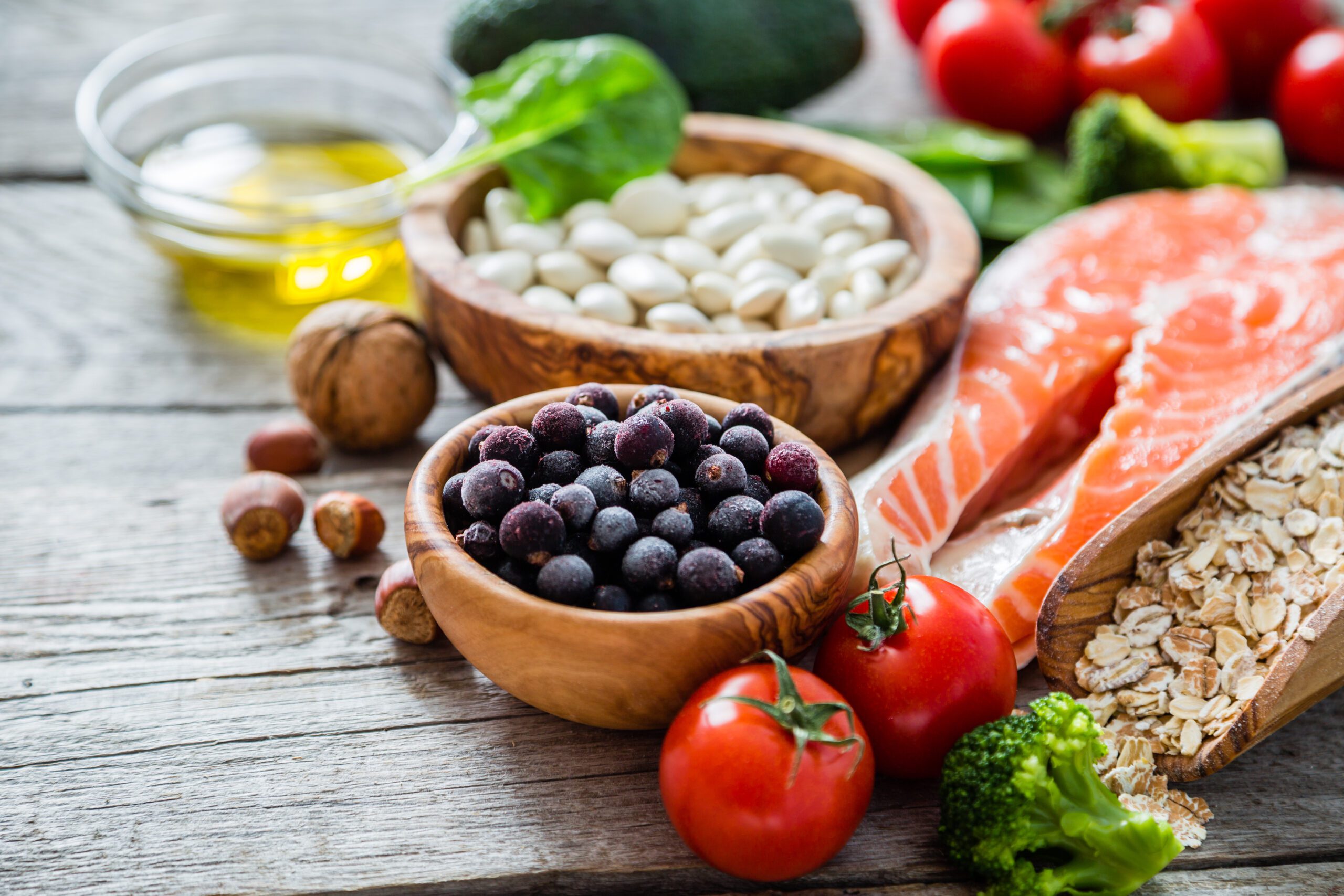
Food For Thought: Incorporating the COM-B Model for Behavior Change into Dental Patient Care
- January 11, 2024
Discover how behavioral change psychology can help dental professionals when giving nutrition counseling.

Addressing a Friend’s Suspected Eating Disorder
- January 9, 2024
Does someone you love have an eating disorder? Here's how to talk about it.

Study Finds Link Between Diet Diversity and Reduced Depression Risk in Knowledge Workers
- January 5, 2024
Research reveals correlation between varied diet and lower depression risk among knowledge-based professionals.

Patients Say Drugs Like Ozempic Help with ‘Food Noise.’ Here’s What That Means
- September 25, 2023
Do drugs such as Ozempic help with intrusive thoughts about food?

Gut Microbes May Play Role In Social Anxiety Disorder, Say Researchers
- December 27, 2023
Scientists suggest that a study utilizing the transplantation of human microbes into mice could pave the way for potential therapeutic approaches.

Your Mood Is Influenced by What You Feed Your Microbiome
- December 27, 2023
Discover new links between diet-sourced microbiome metabolites and depression.
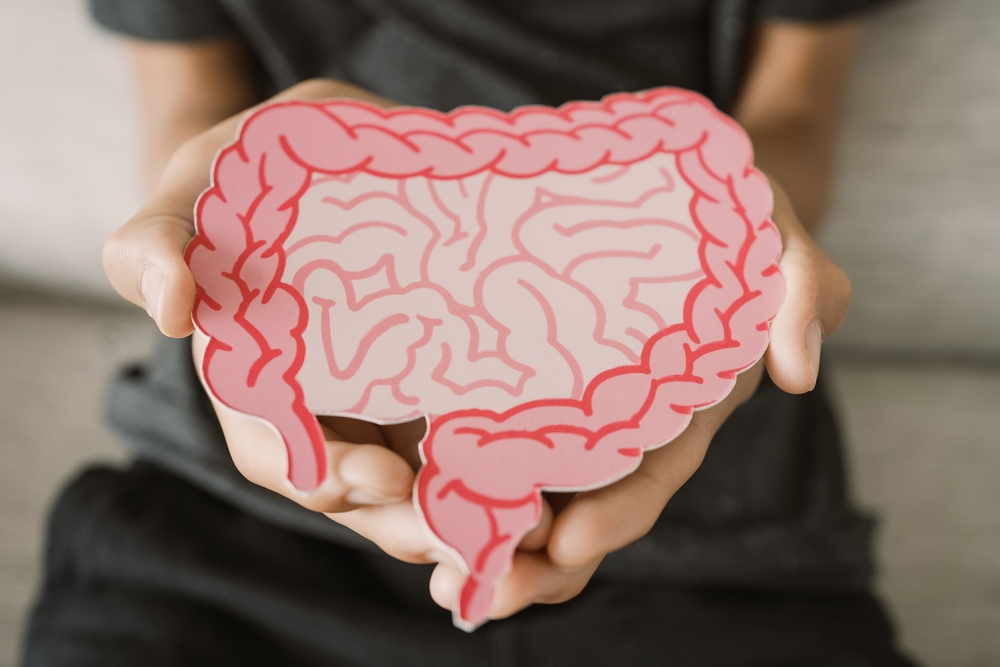
Leaky Gut Linked to Depressive Disorders: New Insights Into Microbiota-Induced Epigenetic Changes
- December 18, 2023
The gut microbiome plays a role in influencing stress-related reactions among individuals grappling with depression.

The Lockdown Effect: Americans’ Physical and Mental Health Has Deteriorated by Every Metric Since the Pandemic – and WFH Is Partly to Blame, Major Survey Says
- December 15, 2023
How has the pandemic impacted both mental and physical health?
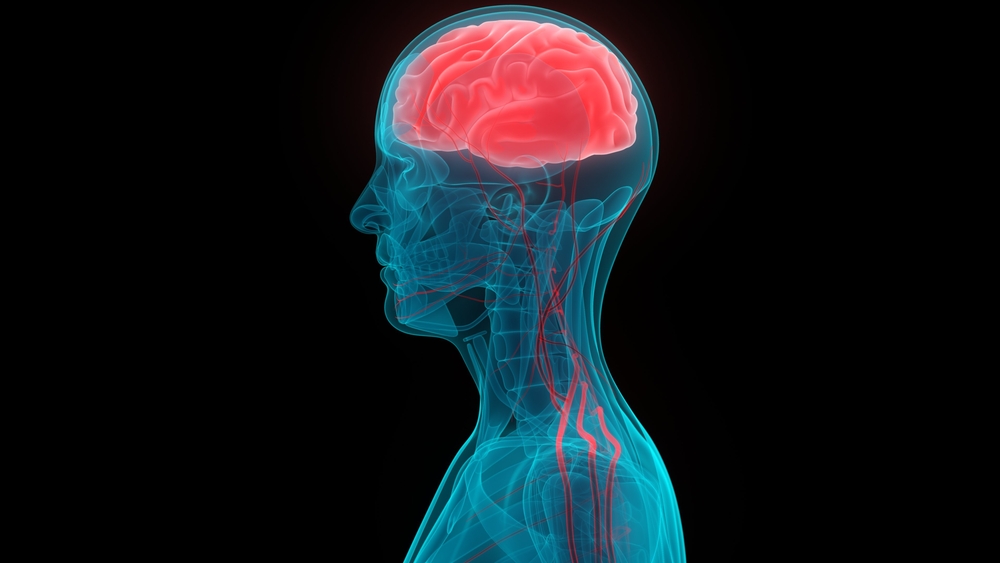
Fatty Foods Might Impair Blood Flow to the Brain During Stressful Situations, Study Finds
- December 16, 2023
Study suggests consuming fatty foods could impact brain blood flow in stressful situations.
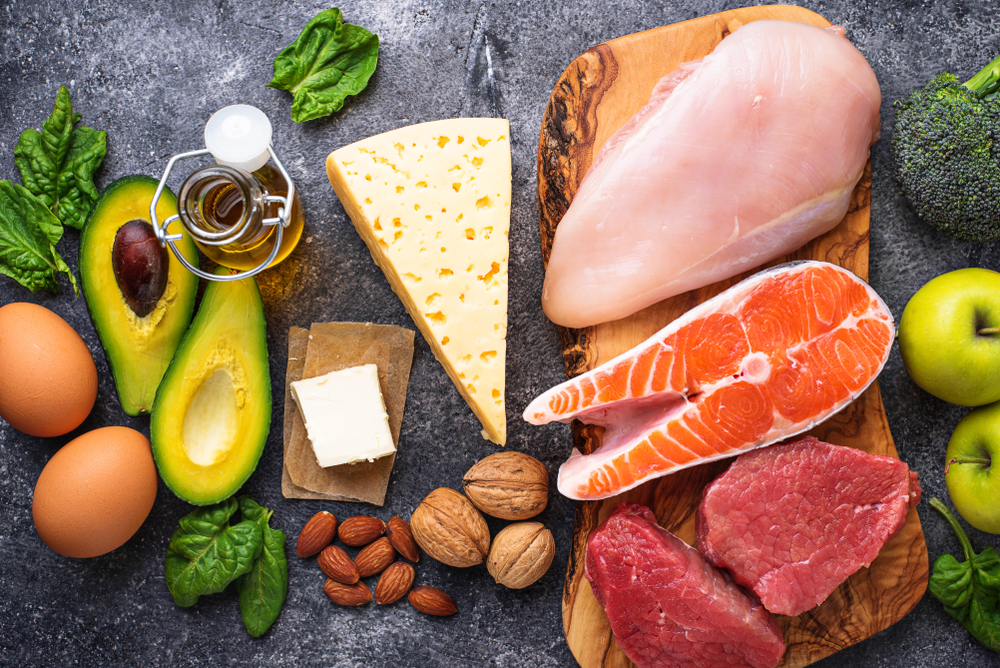
Exploring the Potential of Ketogenic Diet in Alzheimer’s Disease: A Comprehensive Review
- December 12, 2023
What role could the ketogenic diet play in cognitive decline?

Can Excessive Gas Indicate a Serious Health Condition?
- December 13, 2023
Excessive gas might signal a severe health issue.

Vegetarian Diet Linked to Lower Risk of Insomnia, Study Suggests
- December 12, 2023
Study findings suggest that following a vegetarian diet is associated with a reduced risk of experiencing insomnia.

Stress Eating Comfort Food Can Increase Mental Health and Heart Disease Risks
- December 11, 2023
Consuming comfort food due to stress can elevate the risks of both mental health issues and heart disease.

Can Wasabi Boost Cognitive Health As We Age?
- December 8, 2023
Could wasabi improve working and episodic memory?

Study: Mindfulness May Help People Stick to the DASH Diet Better
- December 8, 2023
Recent research finds that practicing mindfulness could help individuals better adhere to the DASH diet.
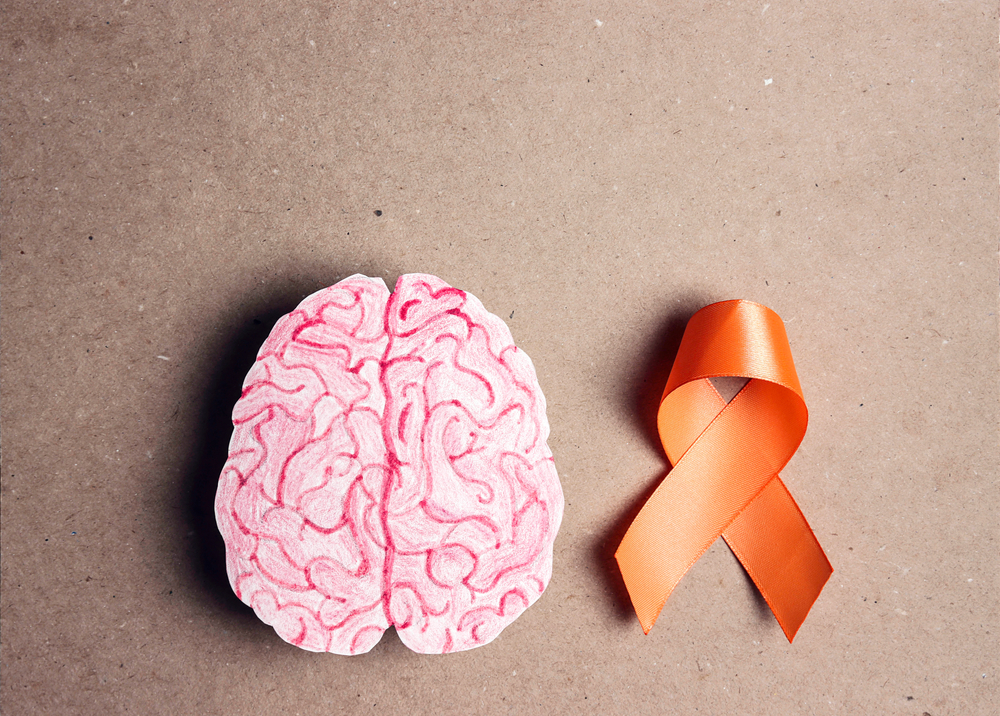
Mediterranean Diet Linked to Better Mental Health in Older MS Patients
- December 8, 2023
A new study finds that the Mediterranean diet leads to less severe disability for older adults with MS.

Eating Late Is Really Bad for You
- December 7, 2023
Late meals and snacks are linked to weight gain, acid reflux, and breast cancer.

Does the Microbiome Make Us Eat Special Foods?
- December 5, 2023
The microbiota influences a wide range of human behaviors which impact our appetite and food preferences.

Digital Nutrition: How Social Media Consumption Affects Our Mental Diet
- December 5, 2023
What are the pros and cons of social media in regards to our well-being?

Exploring ‘Food Noise’: Study Sheds Light on Eating Thoughts and Obesity Treatment Breakthroughs
- November 30, 2023
Can medicine help food-related intrusive thoughts?
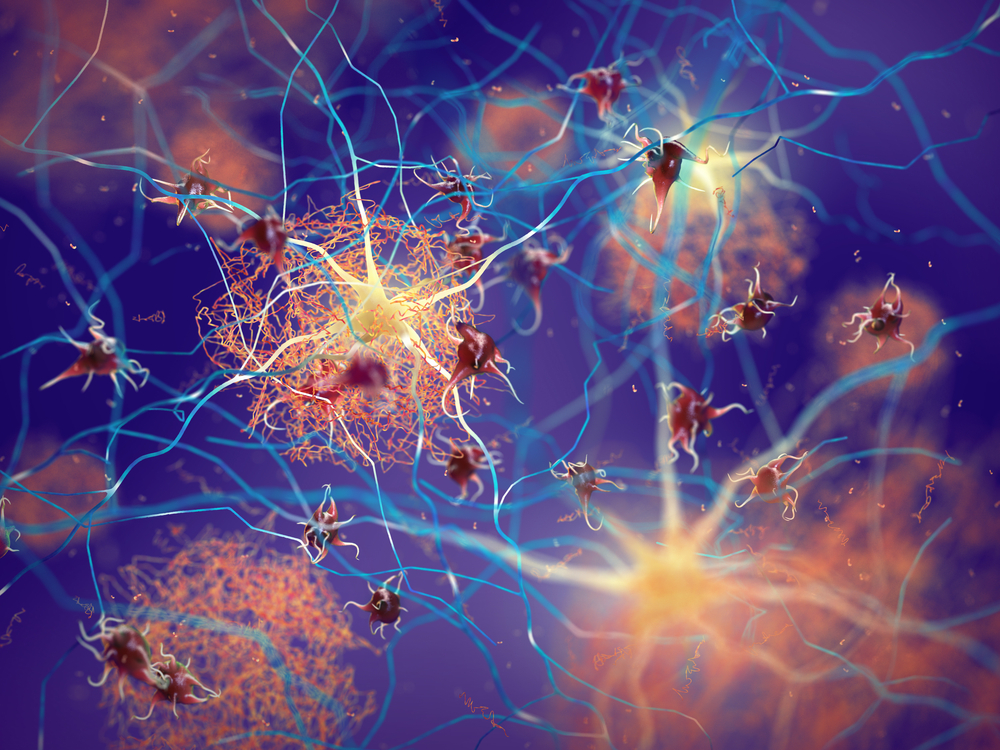
Obesity and Neurocognitive Decline
- December 1, 2023
New research suggests that obesity may increase one's risk of cognitive decline.

Virginia Tech Scientist Discovers Potential Brain Link Between Stress, Emotional Eating
- November 27, 2023
New research reveals a molecule in the hypothalamus that plays a role in stress-induced eating.

That Salad isn’t Just Good for Your Nutrition—It May Help Stave Off Depression
- June 1, 2023
Growing evidence suggests consuming healthy foods and micronutrients fosters better mental health.

Can Chronic Pain Be Linked To Your Diet?
- November 28, 2023
Three dieticians weigh in on how nutrition plays a role in chronic pain.

Linking Stress to Comfort Food Cravings: A Brain Chemical’s Role
- November 28, 2023
Discover how a certain brain molecule, Proenkephalin, plays an important role in overeating after a stressful event.

Beyond Processed Foods: New Insights into What Drives Our Food Choices
- November 27, 2023
New research discovers new insights around food preferences, particularly involving ultra-processed foods.
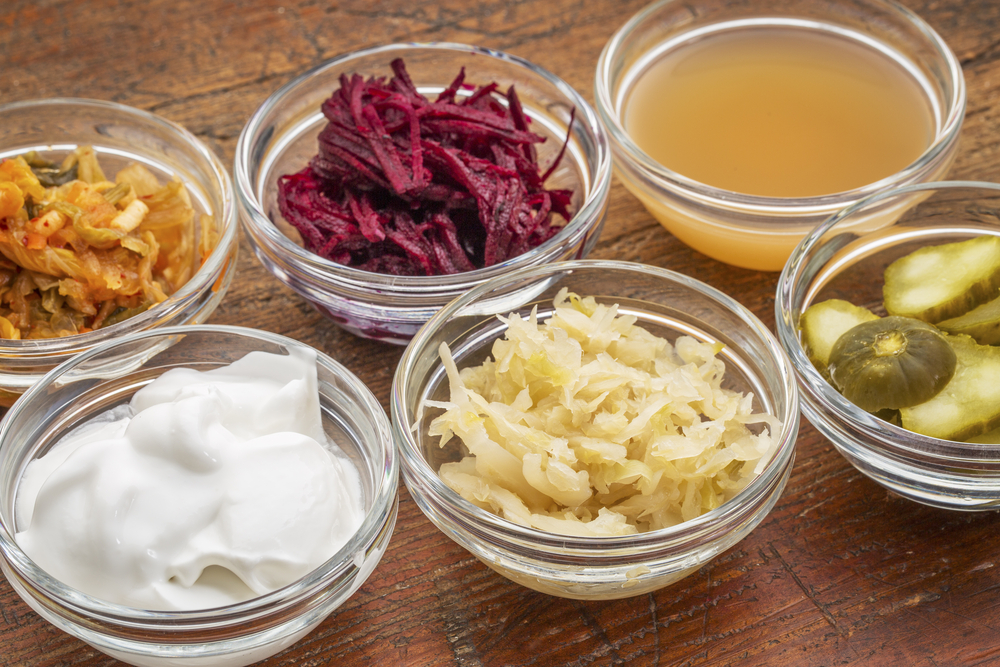
Scientists Uncover How Fermented-Food Bacteria Can Guard Against Depression, Anxiety
- November 28, 2023
Could Lactobacillus be the key to preventing stress and warding off depression and anxiety?

Frontier of Probiotics: Yakult Enters Age of Dietary Microbes and Microbiota Composition Data
- November 27, 2023
Discover the newest research on the gut microbiome, microorganisms, and their role in overall health.

Why Your Diet Could Be Messing With Your Sleep
- November 27, 2023
New research sheds light on the complex relationship between what we eat and the quality of our sleep.

Treatment of Obesity: The Upsides and Downsides
- November 26, 2023
Do the benefits outweigh the risks for those considering weight-loss drugs?

Researcher Explains Connection Between Ultra-Processed Foods and Depression
- November 25, 2023
Is there a link between ultra-processed food and depression?
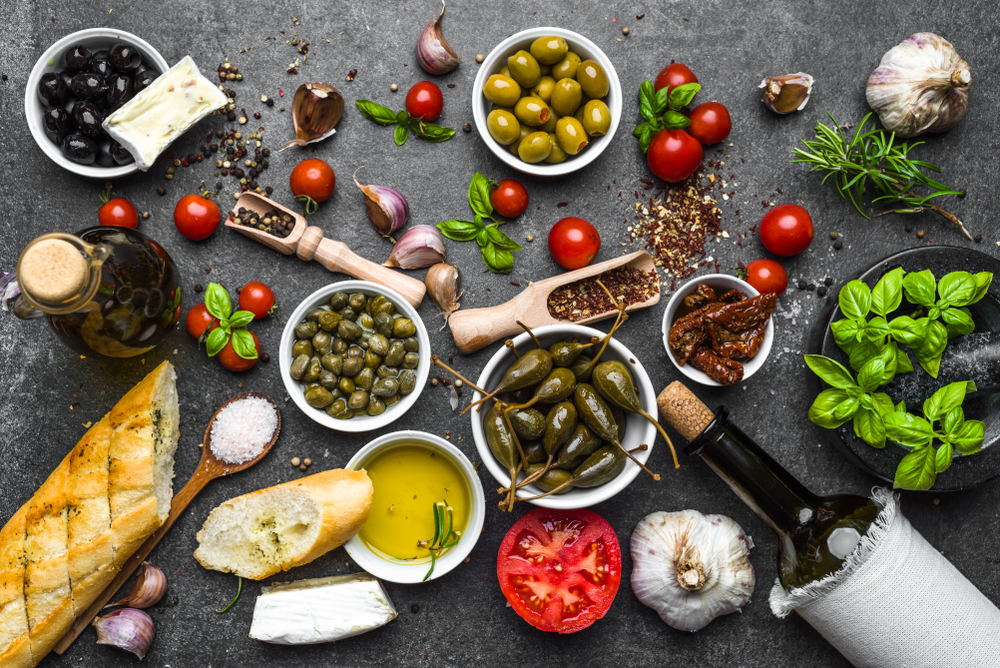
Mediterranean Diet May Slow Age-Related Cognitive Decline
- November 26, 2023
New research based on improved measures finds more substantial evidence that consuming a Mediterranean diet slows cognitive decline in older adults.

New Study Finds Intriguing Connections Between Personality and Dietary Lifestyles
- November 20, 2023
Discover which two personality traits are linked to vegetarian and vegan diets.
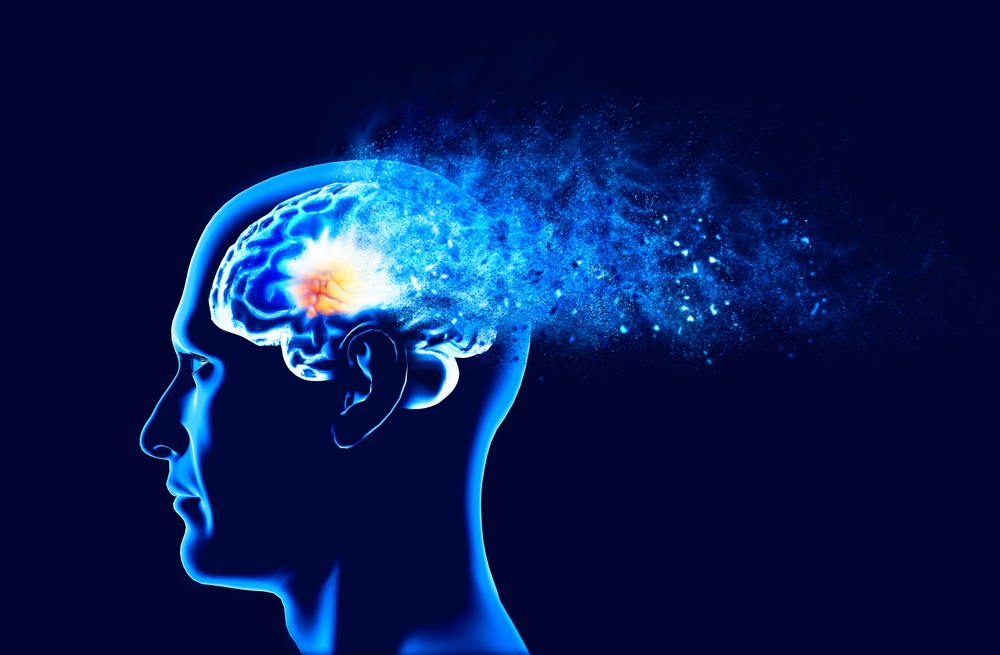
What to Eat to Prevent Dementia
- November 20, 2023
Discover what foods you can add to your diet to prevent or delay cognitive decline.
Candy Crush: Why You’re Craving Sweets and How To Stop
- November 20, 2023
Discover the reasons why you may be cravings sweets and what to do about it.

Eating Strawberries Linked to Improved Cognition and Mood in Adults with Overweight
- November 16, 2023
Could strawberries be the key to thwarting off cognitive decline?

How Hunger Influences Decision-Making
- November 16, 2023
New research finds that a hunger hormone produced in the gut can directly impact decision-making and drive behavior.
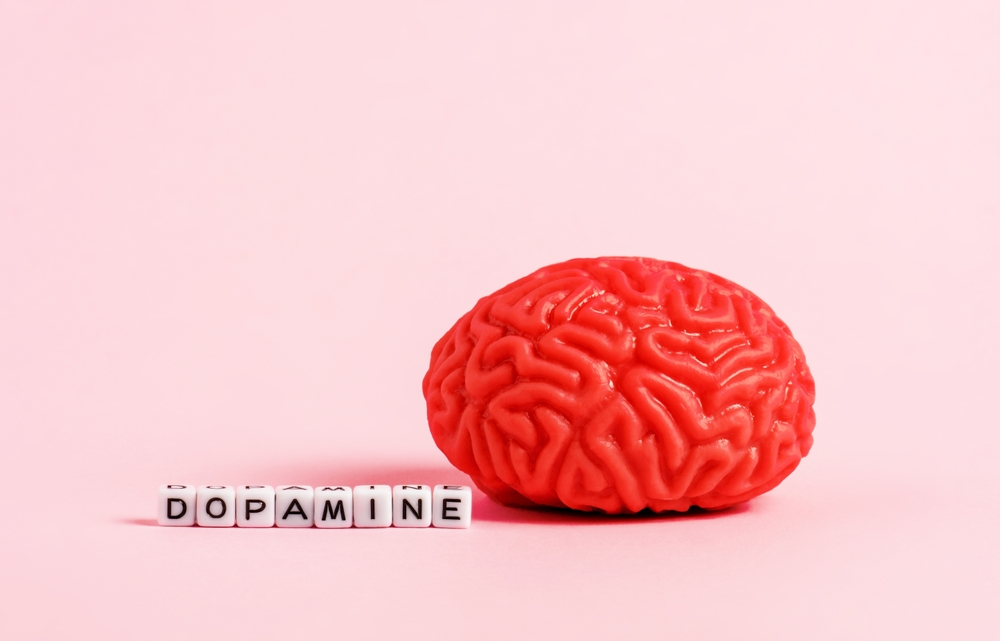
New Study Shows Brain Changes Could Be a Reason it’s Hard to Lose Weight
- June 16, 2023
New research finds that brain responses to nutrients differ in individuals who have obesity, even after they lose weight.
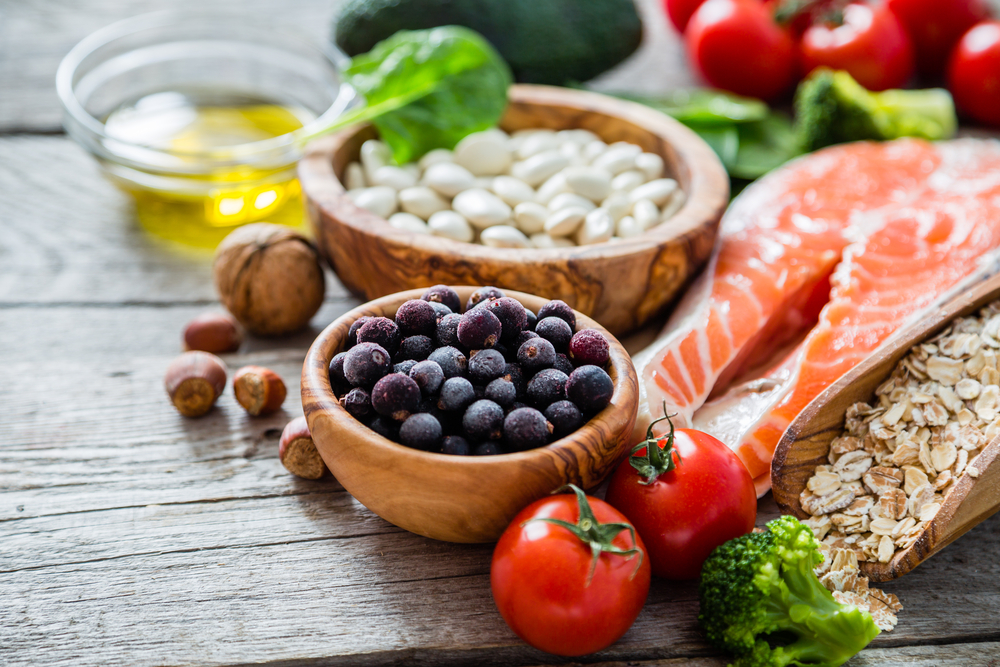
Fresh Produce Access Boosts Health Outcomes Among Diabetes Patients and Those on Medicaid in Recent Studies
- November 14, 2023
Discover how the Healthy Food Rx program helps those in a food desert manage their health conditions.
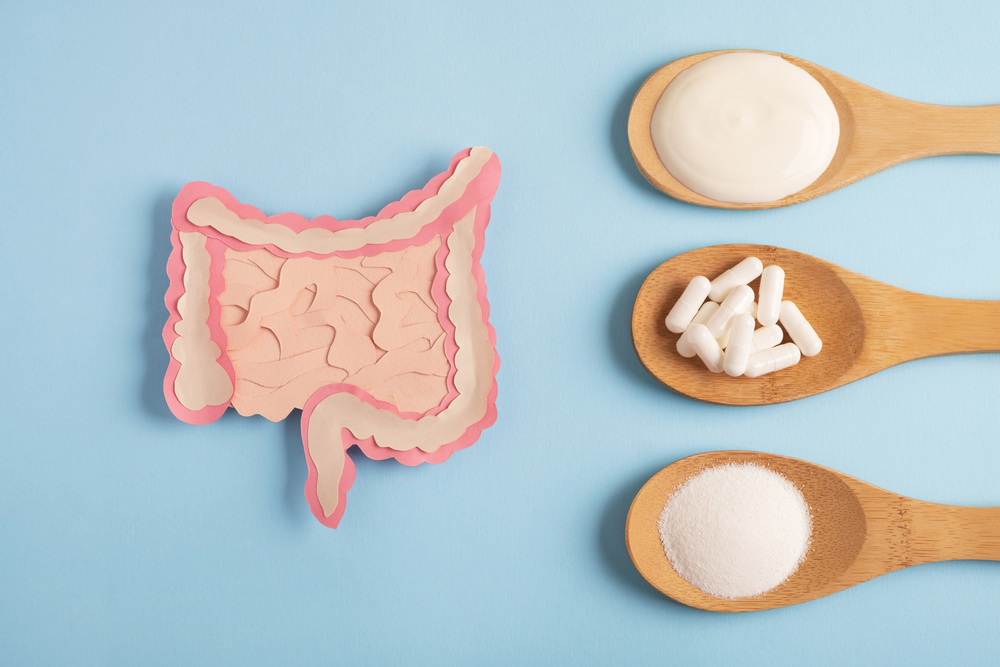
Taking a Probiotic Supplement Might Reduce Cognitive Decline and Could Help When You’re Stressed
- November 15, 2023
Discover how your brain and gut microbiome are intimately connected.

Cutting 1 Teaspoon of Salt Works as Well as Blood Pressure Meds, Study Finds
- November 11, 2023
New research suggests limiting salt intake to lower blood pressure, even for those already on medicine.

What Being A Vegetarian Says About Your Personality
- November 11, 2023
New research shows that vegetarians tend to be more agreeable and more open to new experiences than those who eat meat.
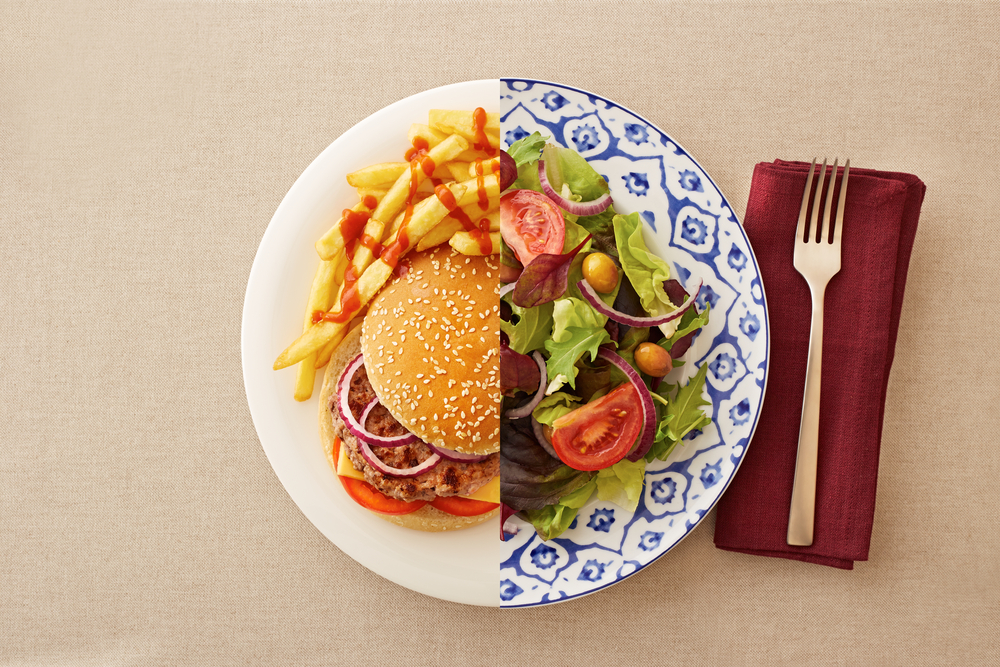
Low-Fat Diets May Reduce Fatigue Among Multiple Sclerosis Patients, Experts Flag
- November 13, 2023
Could a shift in dietary intake provide relief for those with multiple sclerosis?

The Effect of Vegetarian Diets on Sports Performance
- November 7, 2023
What are the pros and cons to being a vegetarian athlete?

High-Sugar Diets May Fuel Brain Decline
- November 7, 2023
Discover why insulin resistance in the brain could heighten the risk of neurodegenerative diseases.
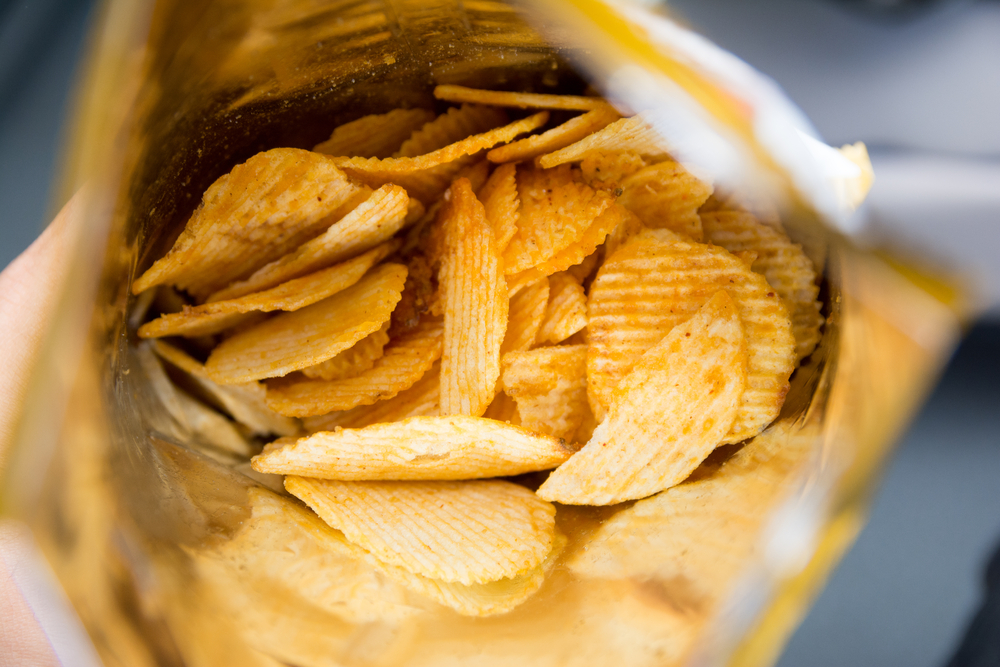
How Do Ultraprocessed Foods Affect Your Health?
- November 8, 2023
Discover the difference between processed foods and ultra-processed foods plus how these foods impact your health.
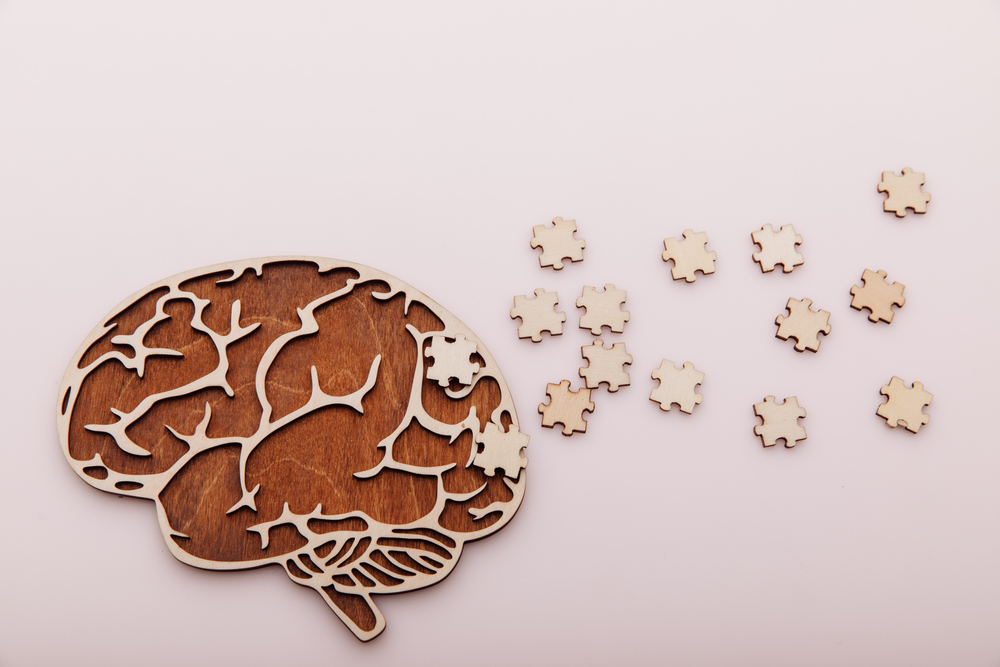
Gut Health Linked to Alzheimer’s Disease Progression, Experts Urge Dietary Shift
- November 7, 2023
Discover how gut health may provide critical insights into AD prevention and management.

Can an Adapted Mindfulness Training Program Improve Interoception and Adherence to the DASH Diet?
- November 6, 2023
Could a mindfulness program help improve interoceptive awareness and adherence to the DASH diet?

Study Finds Epigenetic Signature for Obesity Susceptibility in Human Twins
- November 1, 2023
New research looks at twins to discover how weight gain may be encoded in molecular processes of human cells.

Can Beta-Carotene Boost Cognitive Health? Study Reveals Promising Insights
- October 22, 2023
Scientists examine the role of β-carotene in maintaining cognitive performance and mental health.

How Culinary Knowledge Can Impact Physical, Mental and Environmental Health
- October 22, 2023
Check out this interview with Michelle Loy, MD, FAAP, as she explains her knowledge of culinary medicine.
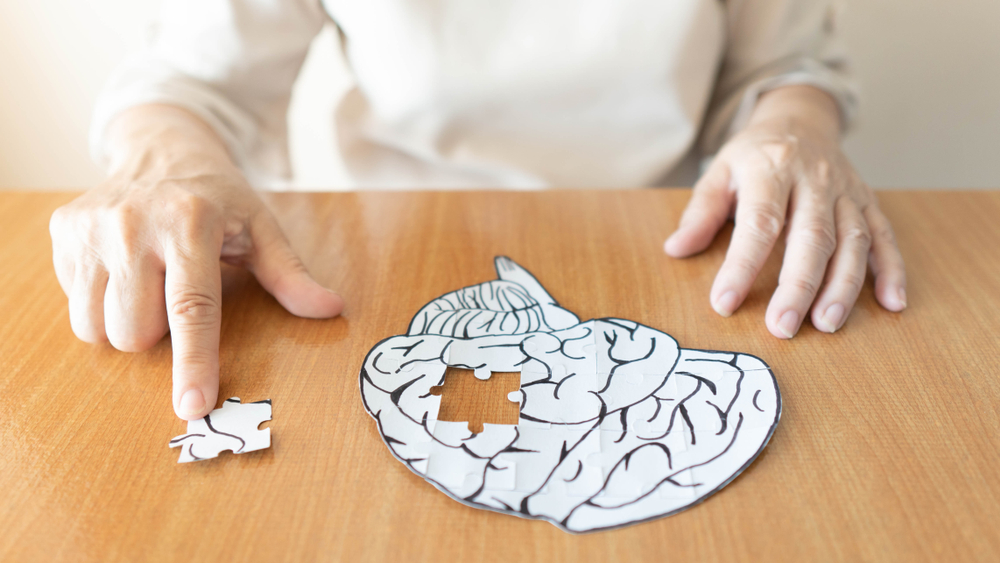
DASH Diet May Be A Shield Against Memory Loss in Women
- October 20, 2023
Researchers found that middle-aged women on the DASH diet were 17% less likely to experience cognitive decline in their later years.
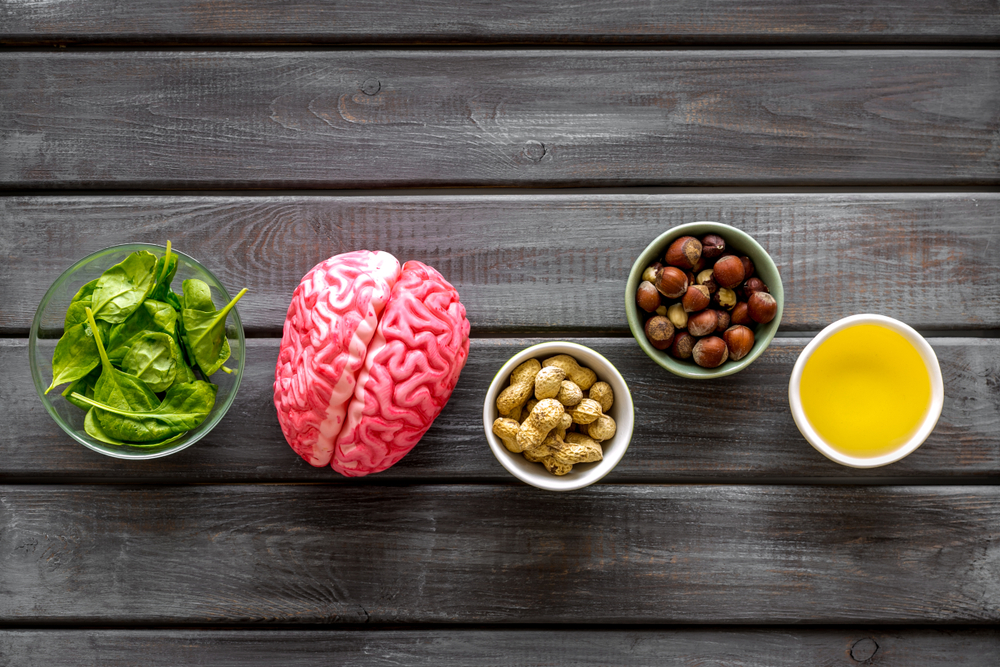
Nutritional Psychiatrist Felice Jacka: ‘The Global Food System is the Leading Cause of Early Death’
- October 21, 2023
Felice Jacka speaks about the links between ultra-processed foods and our mental health.
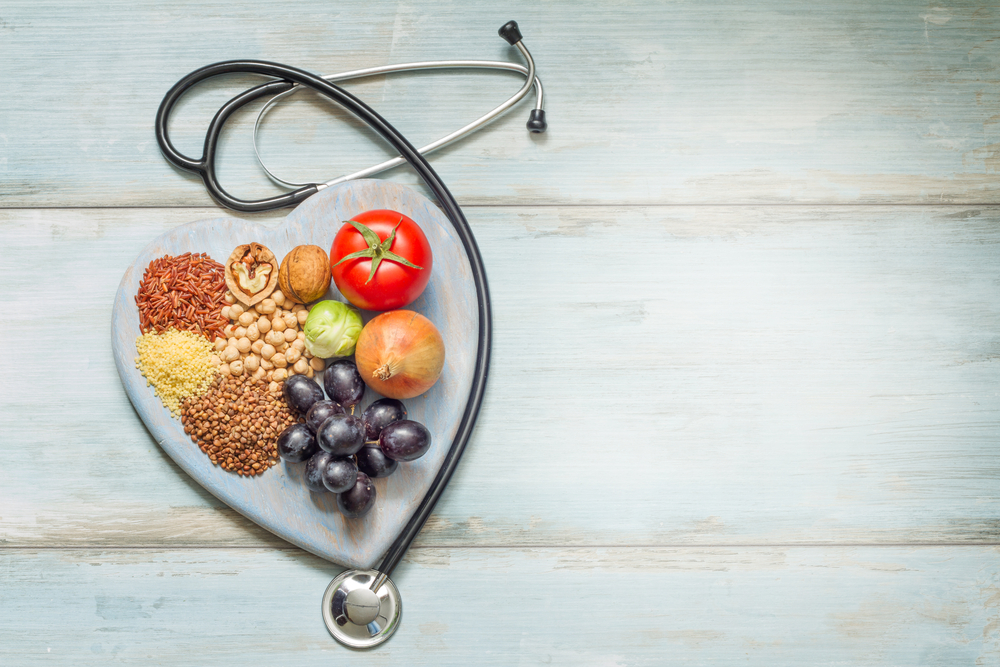
New Institute to Integrate Food-based Nutrition Interventions into Health Care
- October 18, 2023
The Food is Medicine Institute is ready to tackle the gap in the medical system between dietary intake and mental health.

Ultra-processed Foods May be as Addictive as Smoking, Study Says
- October 18, 2023
Recent research shows how foods high in fat and sugar could be as addictive as smoking cigarettes.
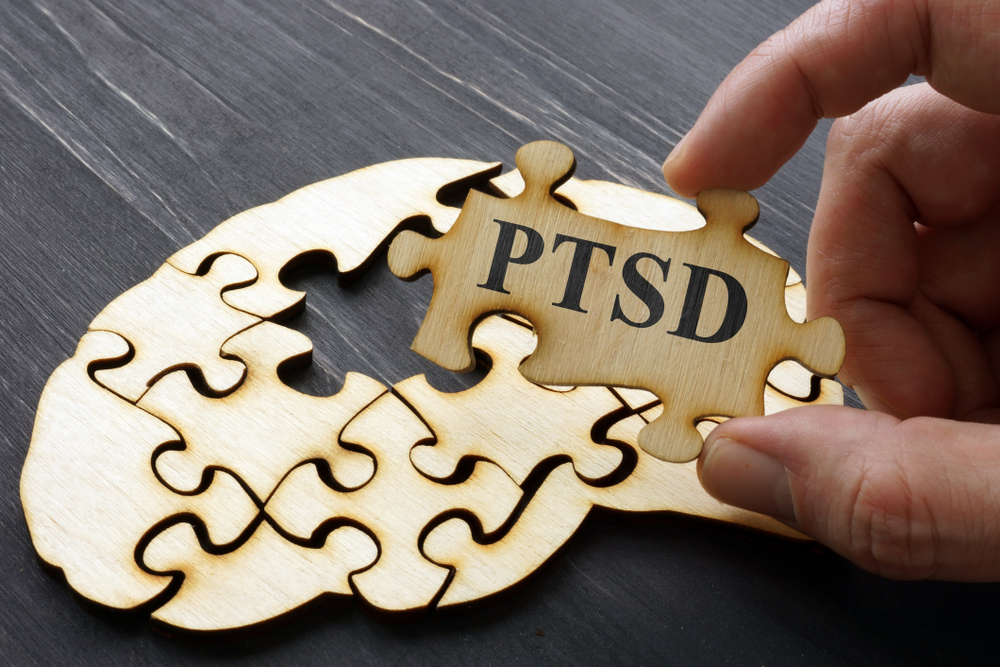
Researchers Discover Associations Among PTSD, Diet, and the Gut Microbiome
- October 19, 2023
Could the Mediterranean diet be the key to decreased PTSD symptoms?
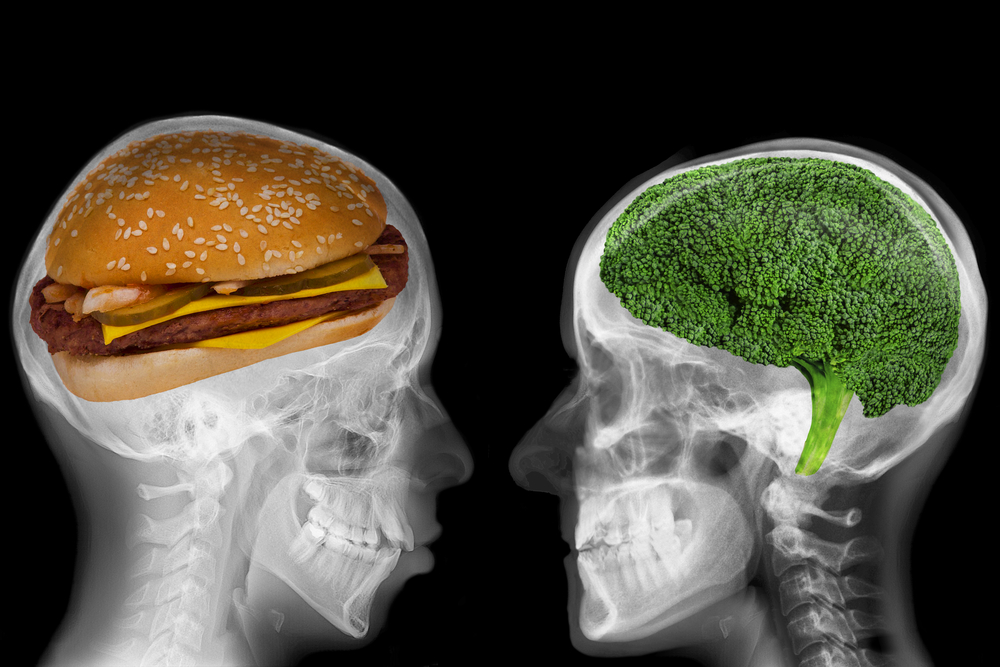
This Is Your Brain on Junk Food
- October 17, 2023
Discover how your cognition directly reflects your dietary choices.
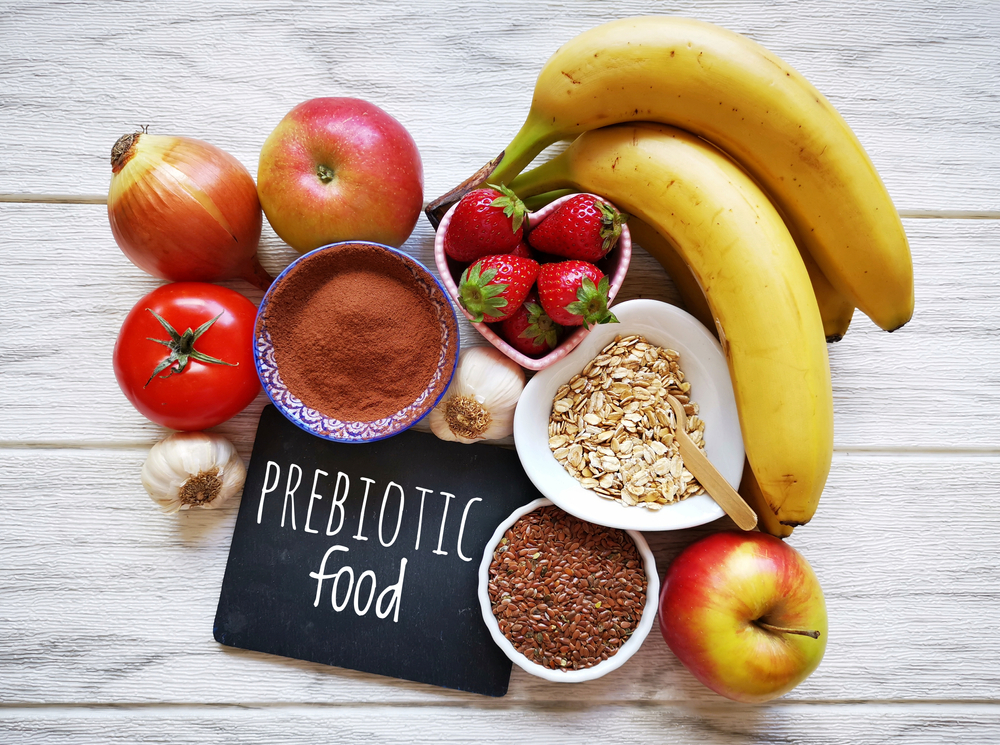
Gut-brain Axis: Prebiotics May Alter Food Decision-making in Overweight Adults
- October 16, 2023
Could prebiotics lead the way for less invasive tactics towards eliminating obesity?

California Becomes the First State to Ban Four Chemicals in Food, Including Red Dye No. 3
- October 10, 2023
California takes initiative in removing food and drink additives that have been linked to health issues.
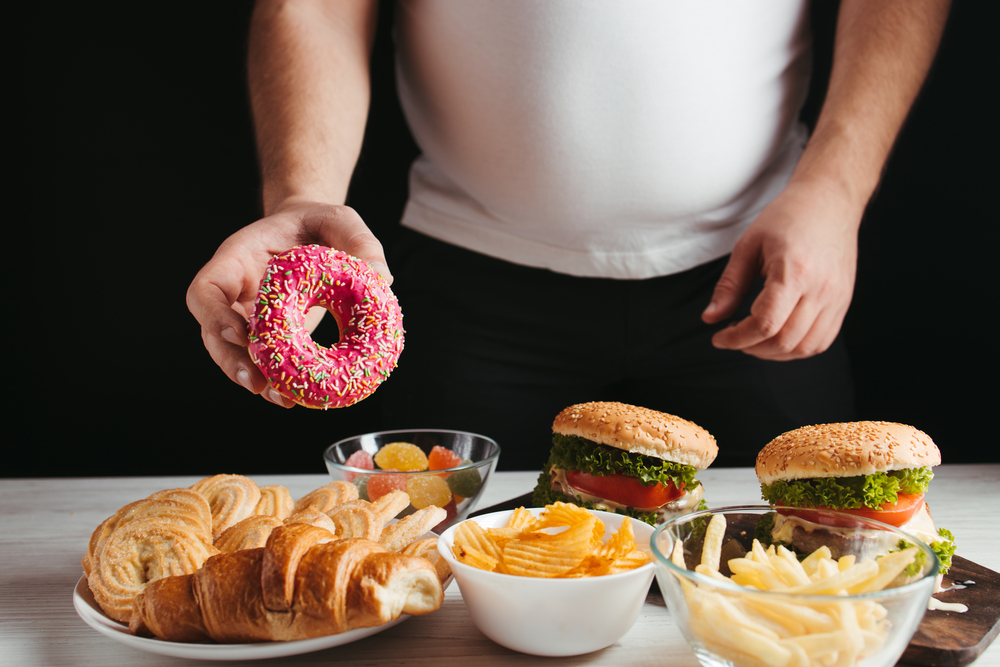
New Research Calls for Shift in Thinking About Ultra-Processed Food Addiction
- October 9, 2023
Could acknowledging food addiction lead to improved global health?

Why Your Diet Could Be Messing With Your Sleep
- October 7, 2023
Discover the bidirectional relationship between food and sleep.

The Vegetarian Code: Your Genes Might Dictate Your Diet
- October 4, 2023
New research identified genes significantly associated with vegetarianism, primarily influencing lipid metabolism and brain function.

Study Finds Link Between Food Insecurity and Severe Hypoglycemia
- October 3, 2023
Discover the link between blood sugar imbalance and food insecurity.

Mismatch Between Expected and Actual Nutritional Value is Key Driver Behind Negative Reviews of Online Grocery Sites
- October 2, 2023
Those who shop for groceries online are noticing more and more discrepancies between product's expected and actual nutritional value.

Discrimination Alters Brain-Gut ‘Crosstalk,’ Prompting Poor Food Choices and Increased Health Risks
- October 2, 2023
Discover the link between discrimination, food poor choices, and altered responses in the gut and brain.

Study Finds Link Between Drinking Some Diet Soda During Pregnancy and Autism in Boys
- September 29, 2023
What is the link between diet soda, specifically aspartame, and Autism?

Ramadan Fasting Reshapes Gut Microbiome
- September 27, 2023
What impact does Ramadan intermittent fasting have on the microbiome of the gut?

Living in a Disadvantaged Neighborhood Affects Food Choices, Weight Gain and the Microstructure of the Brain
- September 15, 2023
New research points to the critical need of making healthy food available to people in low income areas.

A Brief History of Psychobiotics
- September 29, 2023
What are psychobiotics and how can they improve your health?

The Gut Microbiome May Unlock New Treatment Paradigms For Neurological Diseases
- September 27, 2023
Does the microbiome shape the integrity of the brain-blood barrier?

Are You Undoing the Benefits of Your Healthy Diet with Snacks?
- September 21, 2023
Discover how the quality and quantity of your snacking habits impacts your overall health.

Ultra-Processed Food Linked to Higher Risk of Depression, Research Finds
- September 20, 2023
US study finds association between large amounts of ultra-processed food, especially artificial sweeteners, and depression.

Neighborhood Woes: How Living Conditions Impact Brain Structure and Diet
- September 15, 2023
Could the neighborhood you live in impact not only your food choices and weight gain but the structure of your brain as well?

The Science Behind Lifestyle’s Role in Preventing Depression
- September 13, 2023
What role does lifestyle play when it comes to depression?

How Food Insecurity Fuels Sugary Drink Consumption in Vulnerable Kids
- September 13, 2023
New research highlights how socioeconomic vulnerabilities are associated with kids consuming more sugar-sweetened beverages.

Diet Sodas Trick Your Saliva: Study Reveals How Sweetened Drinks Impact Oral Enzymes and Insulin Levels
- September 5, 2023
A recent study determines whether the intake of non-sugar sweetened beverages impacts insulin.

The Secrets of Nutritional Psychiatry
- September 5, 2023
Learn how a quality diet can impact the gut microbiota and therefore our brain health.

Big Effort Needed on UK Diet to Fight Ultra-Processed Food, Say Health Experts
- September 2, 2023
How does the food industry influence policymaking and how can we boost public health regardless?

Eating Your Way Out of Pain: How Your Gut Microbiota and Diet can Help Manage Chronic Discomfort
- August 28, 2023
New research highlights how microbes in the gut influence pain.
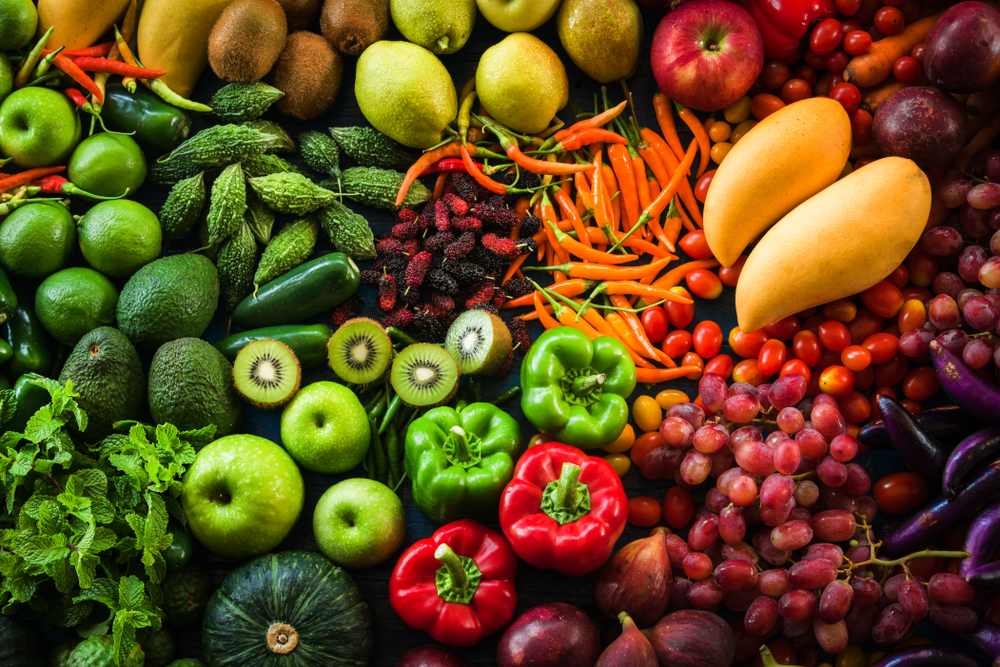
Heart Health: How A Produce Prescription for Fruits, Vegetables Can Help
- August 29, 2023
Could a prescription based-model help to decrease BMI, blood sugar, and blood pressure levels?

Diet of Ultra-Processed Foods Linked to Higher Depression Risk Long Term
- August 29, 2023
New research suggests that the more an individual's diet is composed of ultra-processed foods, the higher their risk of depression.

Is There a Link Between Ultra-Processed Foods and Depression?
- August 24, 2023
New research highlights how consuming ultra-processed foods may have long-lasting health impacts.

How Hunger Can Warp Our Minds
- August 22, 2023
Discover the many ways that being hungry impacts our mood and behavior.

What is the Effect of a Workplace-Based Nutritional and Behavioral Intervention on Adherence to Mediterranean Diet Principles at 12 months?
- August 22, 2023
A recent study highlights how eating a Mediterranean diet impacts firefighters.

Food Environments Push Consumers Away From Healthy and Sustainable Options, Report Shows
- August 17, 2023
What influence does food environment have over consumer's choices?

The Association Between Diet Pattern and Depressive and Anxiety Symptoms
- August 18, 2023
A recent study investigates the associations between dietary patterns and mental health.
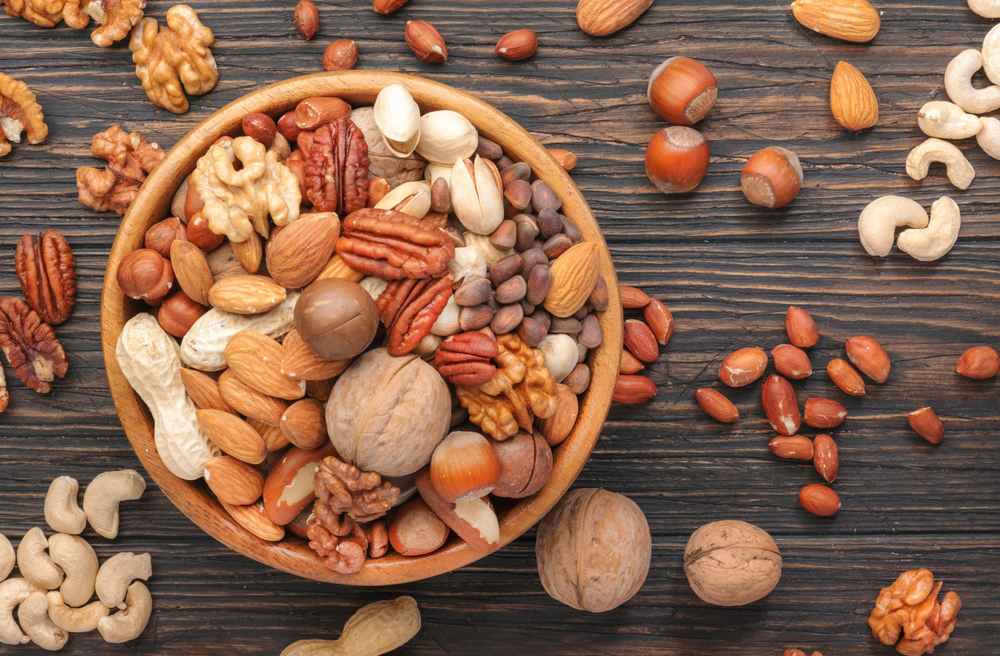
Eating a Small Amount of Nuts Daily May Help Lower Your Depression Risk
- August 18, 2023
Can eating nuts support your mental health?

Fermented Foods Are Suddenly All the Rage, but What Are They, and What Are Their Benefits?
- August 15, 2023
Discover why fermented foods are critical for supporting gut health.

That Salad Isn’t Just Good For Your Nutrition–It May Help Stave Off Depression
- June 1, 2023
Growing evidence suggests consuming healthy foods and micronutrients fosters better mental health, while poor-quality diets diminish it.
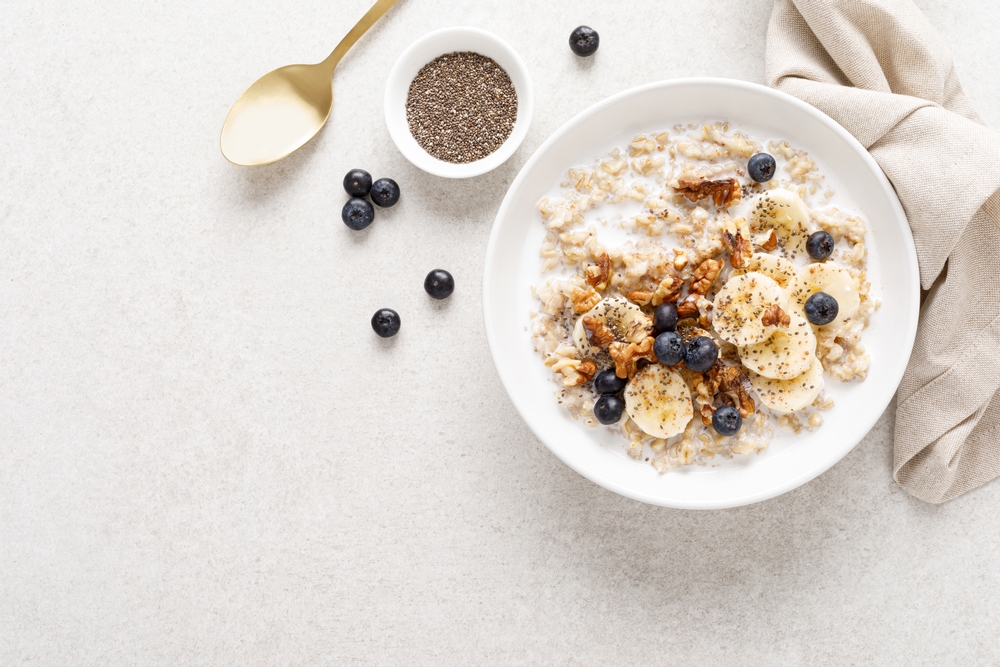
The Impact of Oat Consumption on the Gut Microbiota
- August 15, 2023
A recent review highlights the beneficial effects of oat consumption on gut microbiome function.

Do Sugar-Sweetened Carbonated Beverages Increase Depression Risks?
- August 14, 2023
In a recent study, researchers share the results of a longitudinal analysis that highlights the link between sugar-sweetened carbonated beverages and depression.

Can Certain Foods Help To Reduce Stress?
- August 14, 2023
Can you mitigate the impacts of stress with diet?

Prebiotic sodas promise to boost your gut health. Here’s what to eat instead.
- August 8, 2023
Nix the prebiotic sodas and focus on this nutrient instead.

Is a Western Diet a Risk Factor for Major Depressive Disorder?
- August 8, 2023
New research questions whether the Western diet is linked to major depressive disorder.

Individuals Experiencing Food Insecurity Likely to Binge Eat When Food Is Available
- October 19, 2022
SPH researchers found support for the “feast or famine” cycle hypothesis in food-insecure households.

Brain’s ‘Appetite Control Center’ Different In People Who Are Overweight Or Living With Obesity
- August 9, 2023
Does inflammation in the brain shape how we respond to appetite and hunger?

Pleasures of Food: Exploring Food As A Source Of Pleasure, Nourishment, And Connection
- August 5, 2023
Gain insight into the value of food and how it reaches beyond just nourishment.

Why It’s Easier To Make Healthy Food Choices In Japan
- August 3, 2023
Discover how Japan's culture leads to lower obesity rates.

How Does the Mediterranean Diet Impact the Gut Microbiome and Cognitive Performance of African American obese adults?
- August 2, 2023
Does the Mediterranean Diet prove beneficial for a population at greater risk of developing Alzheimer's?

Why You Should Go to Sleep at the Same Time All Week
- August 1, 2023
New research highlights how a consistent sleep schedule is beneficial for our gut microbiome and overall health.

Berry Good News: Daily Strawberries Boost Cognitive & Cardio Health
- July 24, 2023
New research finds that consuming two servings of strawberries daily is linked to several benefits.

Female Distance Runners Improve Health — and Speed — With Better Diet
- July 25, 2023
Discover how a more nutrient-dense diet benefits female athletes.
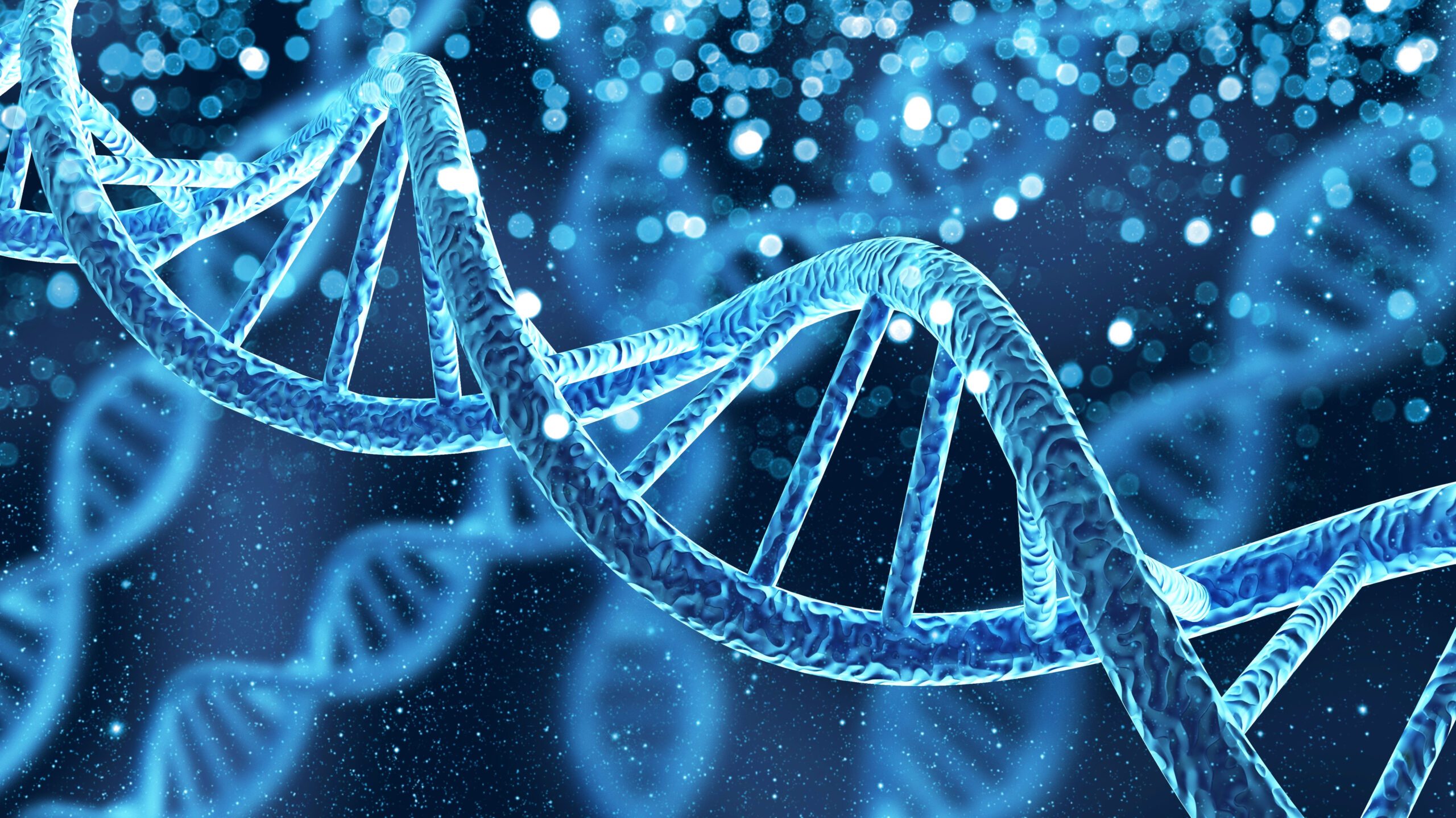
Gene Patterns Shaping Our Food Choices Revealed
- July 22, 2023
Are our dietary preferences a result of our genes? These researchers wanted to find out.

New Research Clarifies Connection Between Autism and the Microbiome
- July 26, 2023
A study published in Nature Neuroscience sheds light on how the microbiome and autism interact.
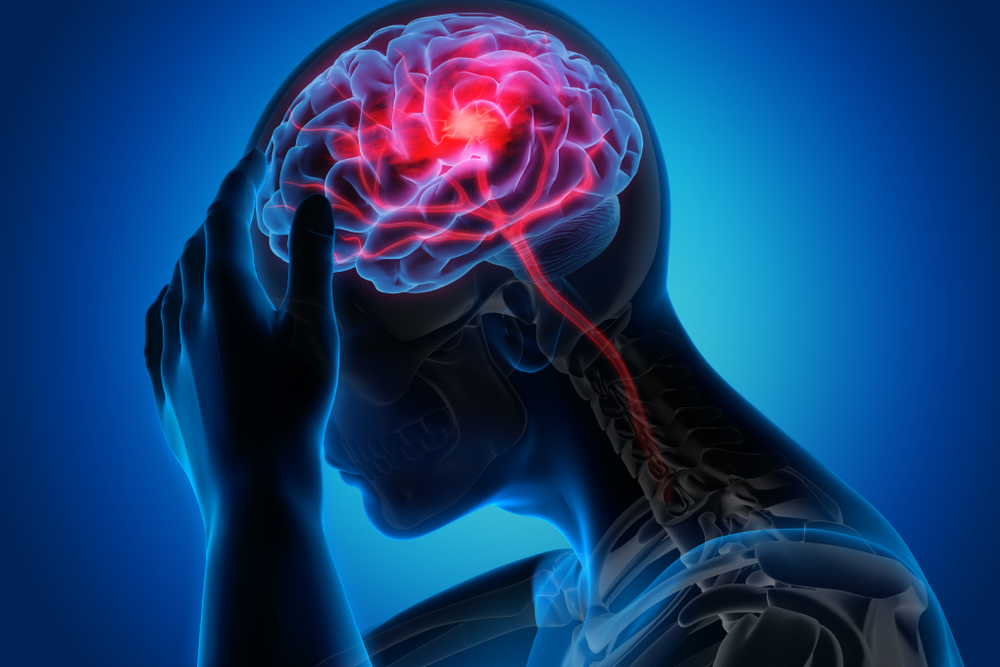
Researchers Uncover Signal Needed for Blood-Brain Barrier
- July 12, 2023
New research finds the gene that produces a signal needed for the development and maintenance of the blood-brain barrier.

New Research Highlights the Importance of Nutrition and Sleep for Esports Athletes’ Cognitive Performance
- July 12, 2023
Esport athletes stand to improve their performance by improving their dietary intake and sleep habits.
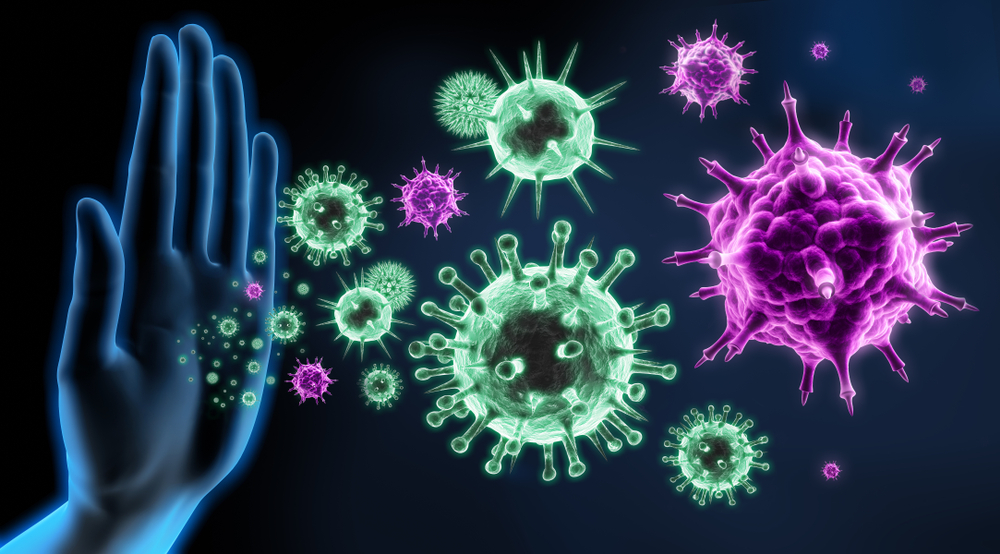
Immune System Plays a Crucial Role in Changing our Behaviors, Research Shows
- July 12, 2023
New research highlights how the immune system communicates with the brain to warn about potential dangers in the environment.

Obesity and Mental Health: A Surprisingly Strong Connection
- July 9, 2023
Discover obesity's relationship to an array of mental health problems.

Studying the Link Between the Gut and Mental Health Is Personal for This Scientist
- July 8, 2023
Discover what lead one scientist to study the connection between the gut and mental health.

Pressure Grows On Supermarkets As Soaring Food Prices ‘Harm Mental Health’
- June 27, 2023
Are soaring food prices taking a toll on people's mental health?
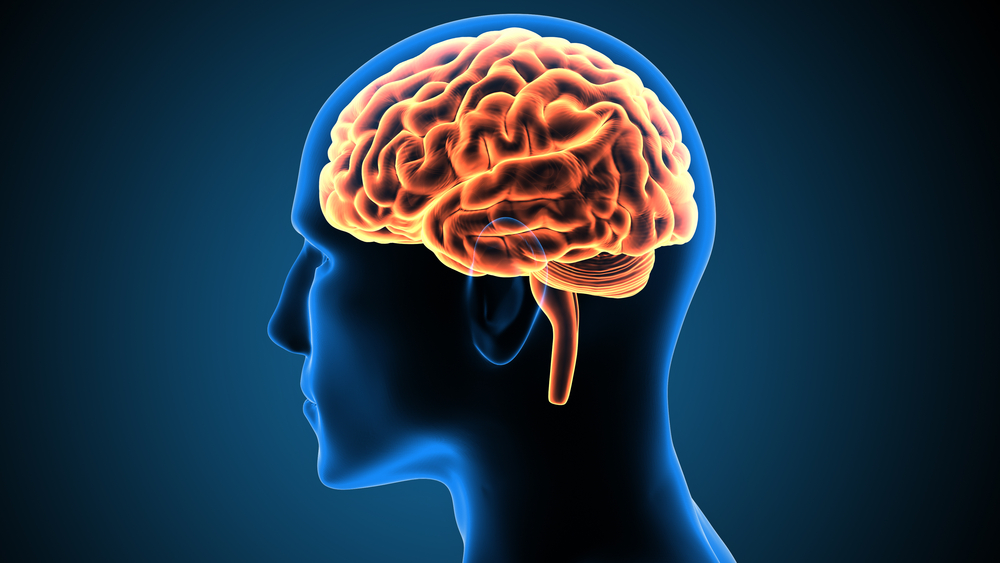
New Study Shows Brain Changes Could be a Reason it’s Hard to Lose Weight
- June 16, 2023
New research shows that a lack of reward response could lead to overeating and make it more difficult to change eating habits.

Probiotics Enhance Antidepressant Efficacy for Major Depressive Disorder
- June 14, 2023
New research finds that a 14-strain probiotic blend could help support individuals with depression when used alongside antidepressants.
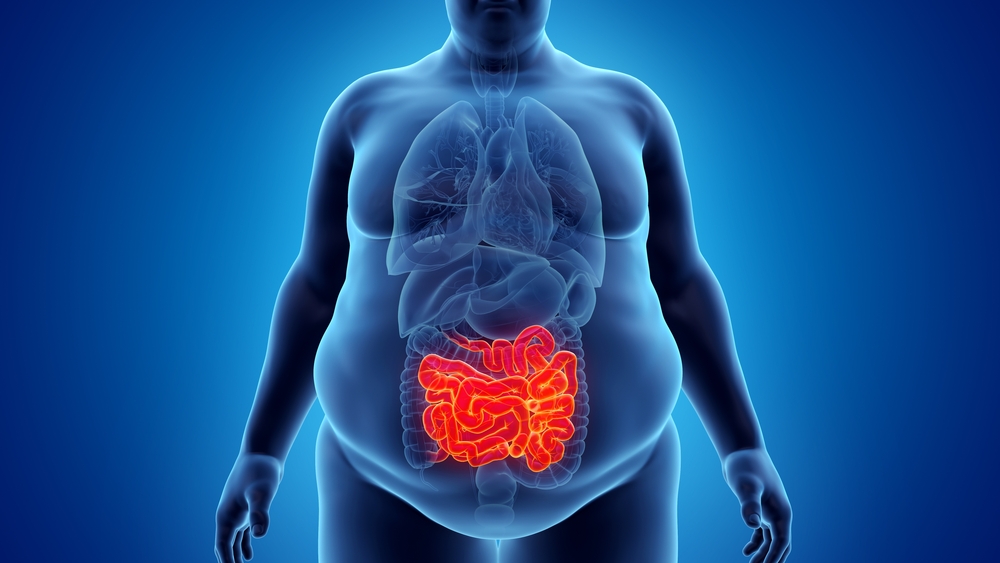
Dopamine Depletion: Obesity Reduces Brains Responses to Nutrients, Study Flags
- June 14, 2023
Recent research points to a reduced sensing of nutrients in the stomach and gut of those with obesity.
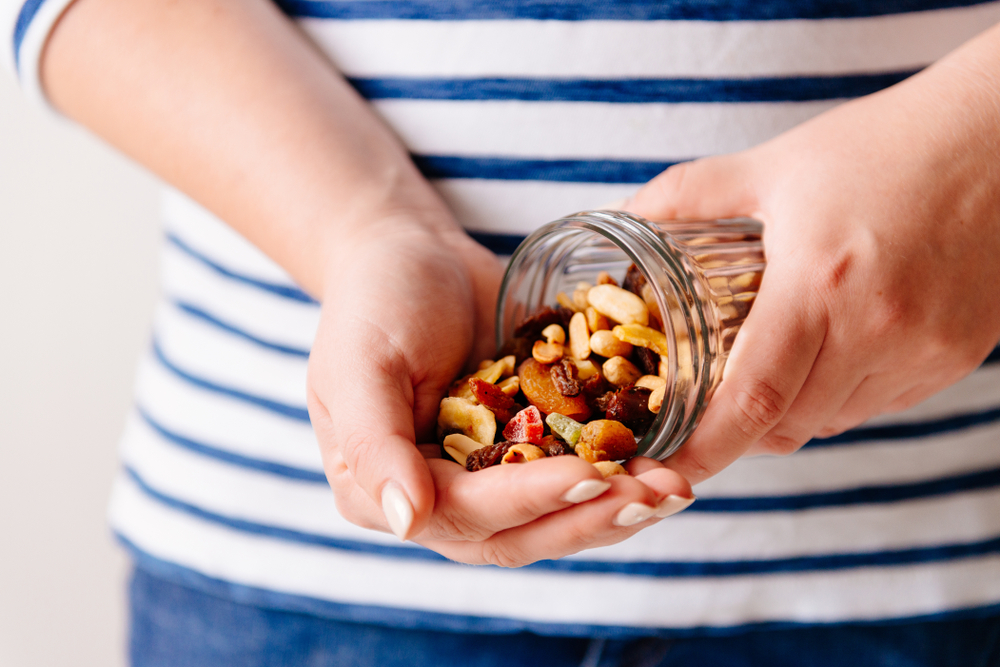
Could Eating More Nuts Help Boost Memory Later in Life?
- June 12, 2023
New research finds that consuming 60 grams of mixed nuts a day improves verbal memory and blood flow to the brain.

Stressed Brains Amplify Comfort Food Cravings
- June 8, 2023
New research highlights the critical importance of a healthy diet, particularly during stressful periods.
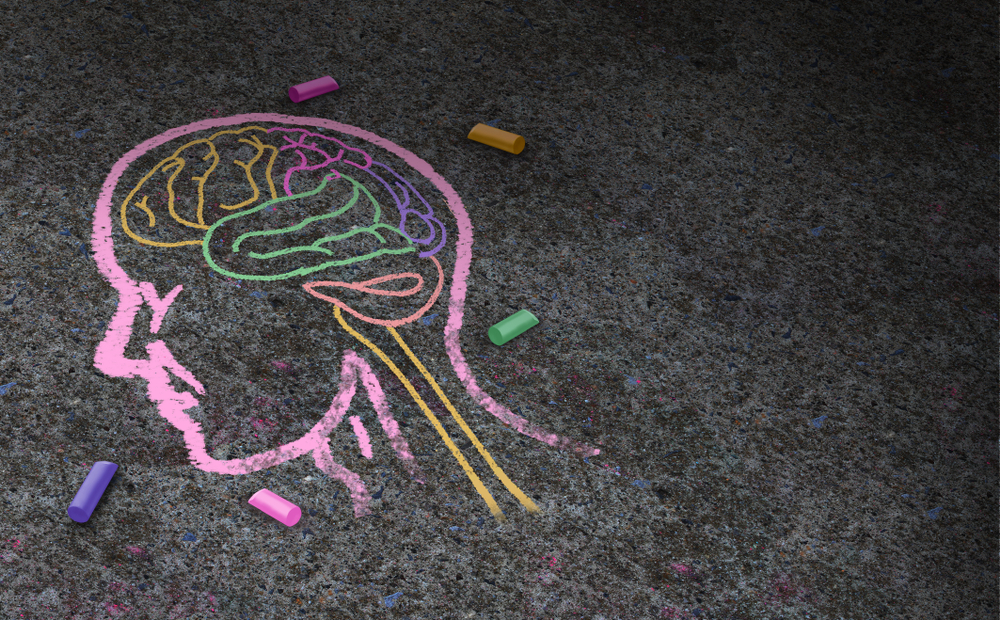
Experts Call for Food Industry Change to Address Mental Health
- June 10, 2023
Could shifting the focus of food-related policies and recommendations result in better mental health?

This Ingredient Can Cause Gut Inflammation, According to a New Study
- June 5, 2023
A new study shows that eating too much sugar can lead to inflammation in the gut.
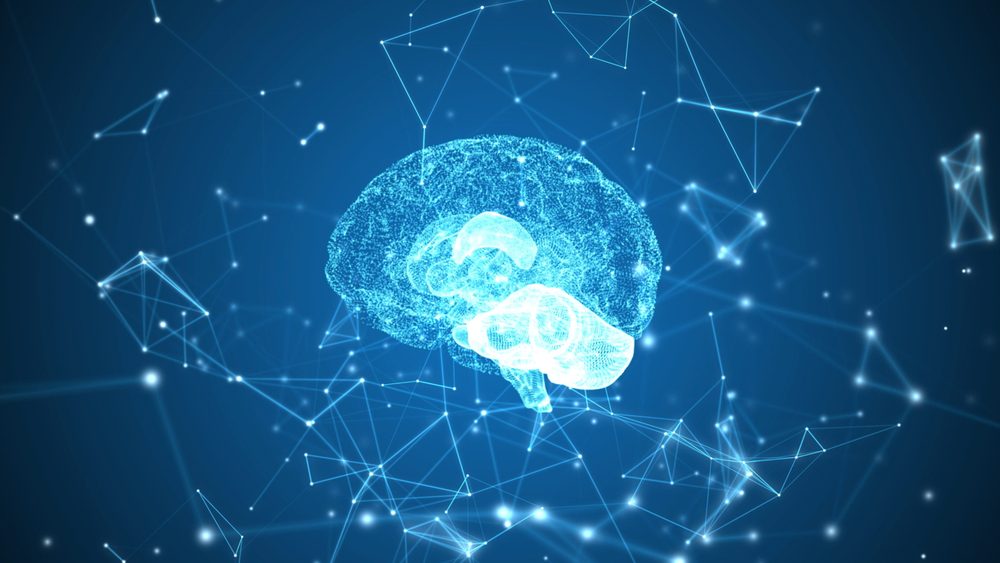
Low-Flavanol Diets May Contribute to Age-Related Memory Loss
- May 31, 2023
New research demonstrates how flavanol consumption may impact memory function.

Why Do Ultra-Processed Foods Make Us So Sad?
- May 29, 2023
Research finds that a diet high in ultra-processed foods (UPFs) can increase the risk of depression by as much as 23 percent.

How Food Psychology Can Help With Mindful Eating
- May 25, 2023
Discover the factors that shape our eating habits.

Poor Eating Habits of University Students Can Contribute to Future Health Issues
- May 25, 2023
Can unhealthy eating habits established in college lead to future health issues?

Large Study Shows Daily Multivitamin May Slow Memory Loss
- May 25, 2023
New research finds that a daily nutritional supplement could enhance memory by the equivalent of three years.
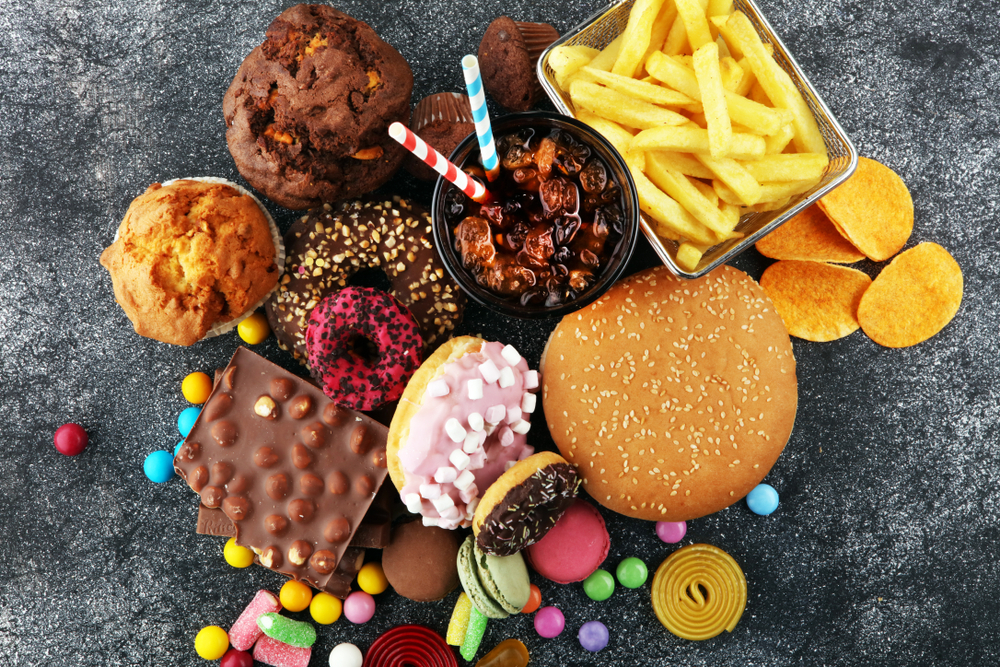
Ultra-Processed Foods Linked to Increased Depression Risk
- May 16, 2023
New research reveals the increased risk of depression among individuals consuming over 30% of their daily diet from ultra-processed food.
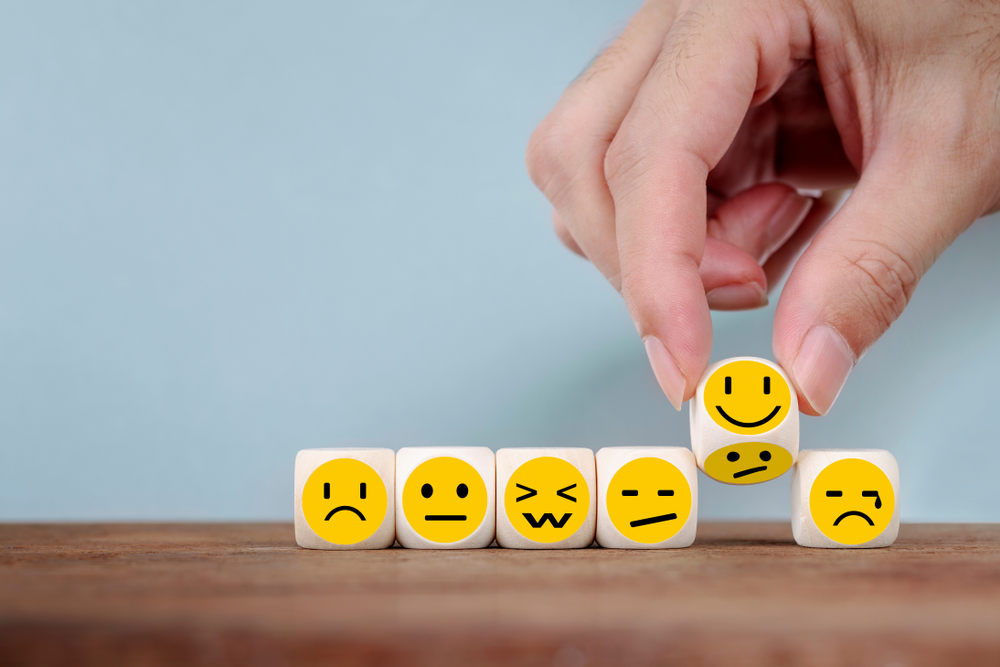
Is Your Diet Related to Your Personality?
- May 14, 2023
New research explores food choices as they relate to the Big Five personality traits.

Diet and Dementia: Study Uncovers Gut-Brain Link to Alzheimer’s
- May 12, 2023
A new study sheds light on the potential role of diet in preventing dementia.
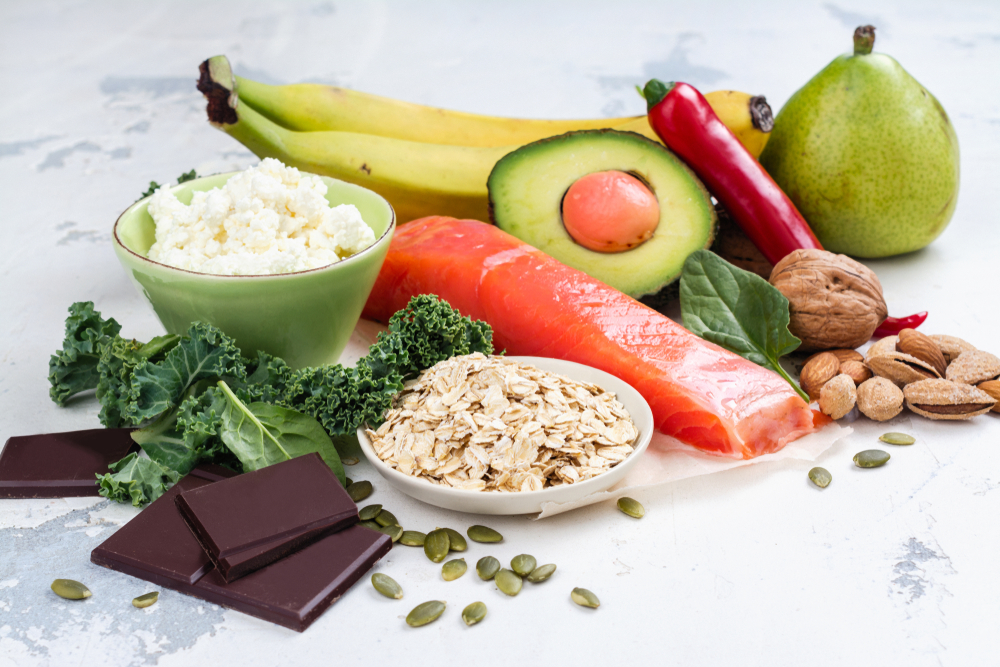
Insights From Experts on the Neurobiological Processes Involved in Appetite Regulation
- May 8, 2023
In a new study, researchers explore the hormonal, genetic, and neural pathways that regulate appetite and body weight.

Nourishing the Mind: Nutritional Interventions to Slow Alzheimer’s Disease
- May 5, 2023
Discover which diets and supplements may slow the progression of Alzheimer's Disease and improve cognitive function.

Study Explores the Role of Diet in Supporting a Healthy Gastrointestinal Microbiota
- May 5, 2023
Science supports that the Dietary Guidelines for Americans (DGA) promotes a gut microbiota composition that may support overall health.

Study Suggests DASH Diet May Improve Mental Well-being in Addition to Lowering Blood Pressure
- May 3, 2023
A recent study explores the effect of the DASH diet on mental well-being.
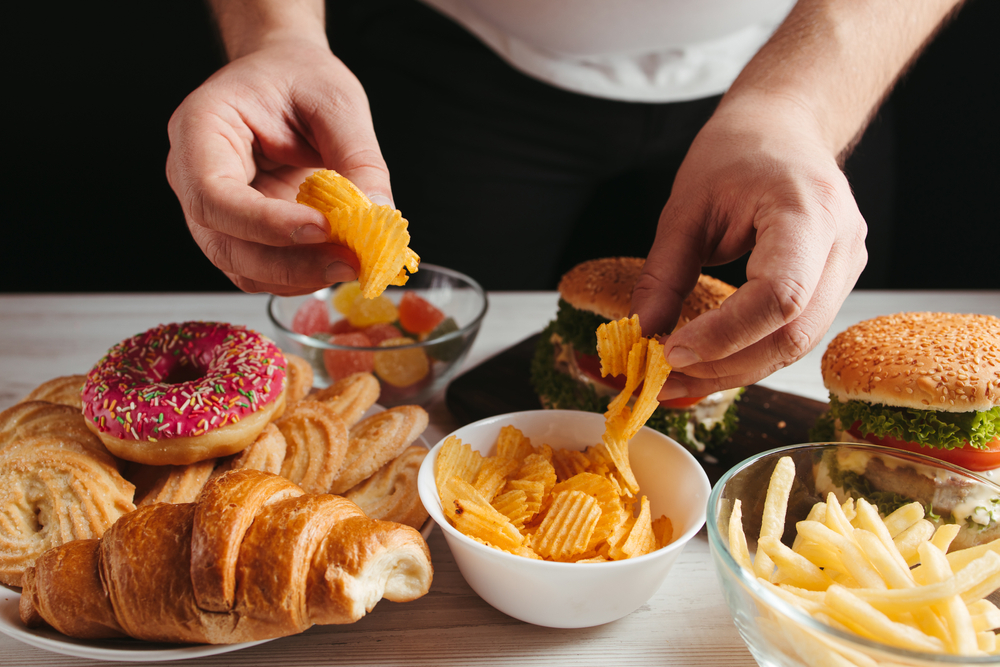
Watching Others Indulge in Junk Food Can Curb Your Appetite and Aid in Weight Loss
- April 30, 2023
Does mental imagery activate similar neural networks to those linked with actual experience?

Major Depressive Disorder Linked to Interplay of Gut Microbiome and Blood Metabolome
- April 26, 2023
New research sheds light on the link between major depressive disorder, the gut microbiome, and the blood metabolome.
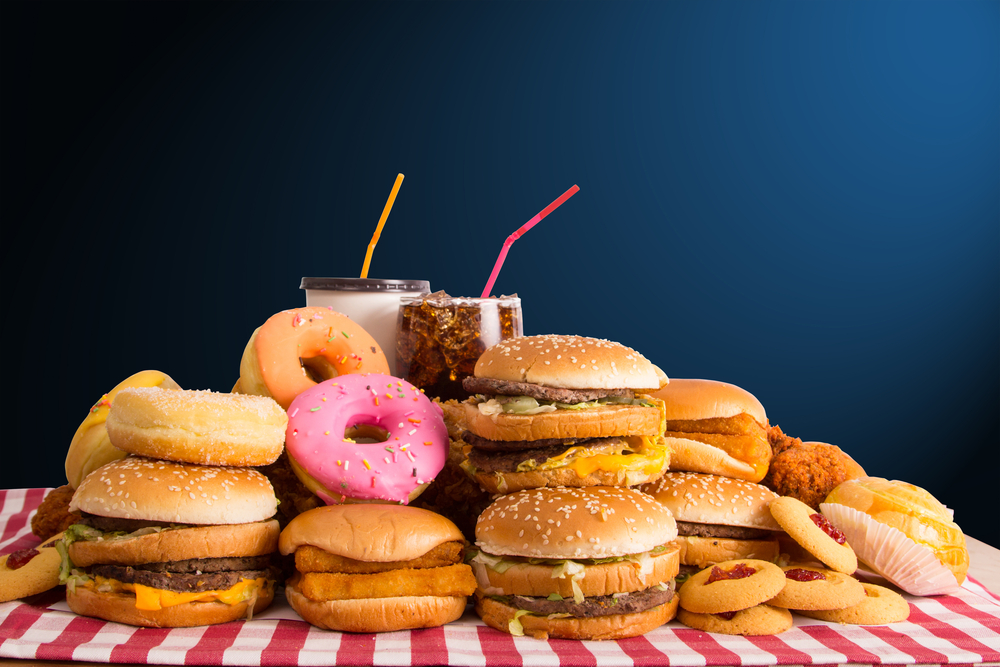
How Junk Food Ads Play on Your Emotions
- April 27, 2023
Could regulating fast-food advertisements have a beneficial health impact?

New Research Suggests That French Fries May Be Linked To Depression
- April 24, 2023
https://www.cnn.com/2023/04/24/health/fried-food-anxiety-depression-risk-wellness/index.html

High-Fat Diets During Early Life Lead to Cravings for Salty Foods Later On
- April 24, 2023
Researchers utilized an animal model to investigate the impact on taste preference that generational exposure to a high-fat diet has.

Feel Uncomfortable if You Eat More Than Your Partner? Here Are 5 Tips From an RD and Therapist
- April 22, 2023
Read these tips if you struggle with comparing your food intake to your partners.
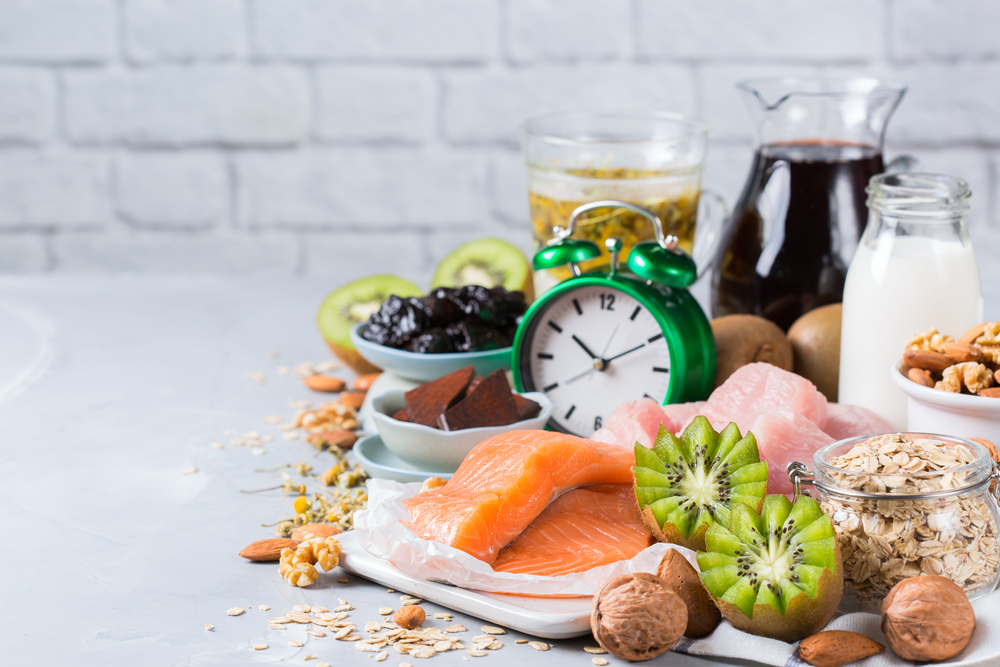
Analysis Reveals Relationship Between Nutrient Consumption and Sleep Timing
- April 21, 2023
New research shows how certain nutrients may increase synthesis of vital hormones that regulate sleep.

Those Identifying As More Masculine Are More Likely to be Committed to Meat Eating
- April 22, 2023
New research finds that men who identify as more masculine are less likely to reduce meat consumption or consider a plant-based diet.

How Do Sound and Music Affect the Way We Eat?
- March 29, 2023
Discover how sound and music impact our dietary intake among other eating related factors.

Maternal Psychosocial Stress May Impact the Developing Infant Gut Microbiome
- April 15, 2023
Researchers examined the impact that psychosocial stress experienced by the mother has on the gut microbiome of the infant.

Study Identifies Link Between Oral and Gut Microbiomes and Depression
- March 14, 2023
Researchers use germ-free mice models to investigate the role of the oral-gut-brain axis in anxiety and depression.

Addressing Sugar Addiction – What the Industry Can Do
- April 14, 2023
What role does the food industry play in sugar addiction?

Kombucha to Kimchi: Which Fermented Foods Are Best for Your Brain?
- April 13, 2023
Consuming fermented foods can have a beneficial impact on both your gut and brain health.

Consuming Over 6 Teaspoons of Added Sugar A Day Linked to Stroke, Depression, Asthma
- April 12, 2023
Consuming excess sugar could led to poor health outcomes.

Sex Matters: Uncovering the Brain’s Role in Obesity for Men and Women
- April 8, 2023
New research from UCLA may help tailor obesity interventions based on an individual's sex.

Four in Five Americans Would Change Their Diets to Improve Mental Health, But They Rate Other Life Factors as More Impactful
- April 11, 2023
Many Americans believe that work, family stress, exercise, and social habits impact their mental health more than their dietary intake does.

9 Tips for Improving the Gut–Brain Connection
- April 11, 2023
These nine action-oriented tips may help your digestion, mood, and even disordered eating.

The Association Between Dietary Behaviors and Video Gaming
- April 10, 2023
A recent study explores the dietary intake behavior and health of those who play video games.
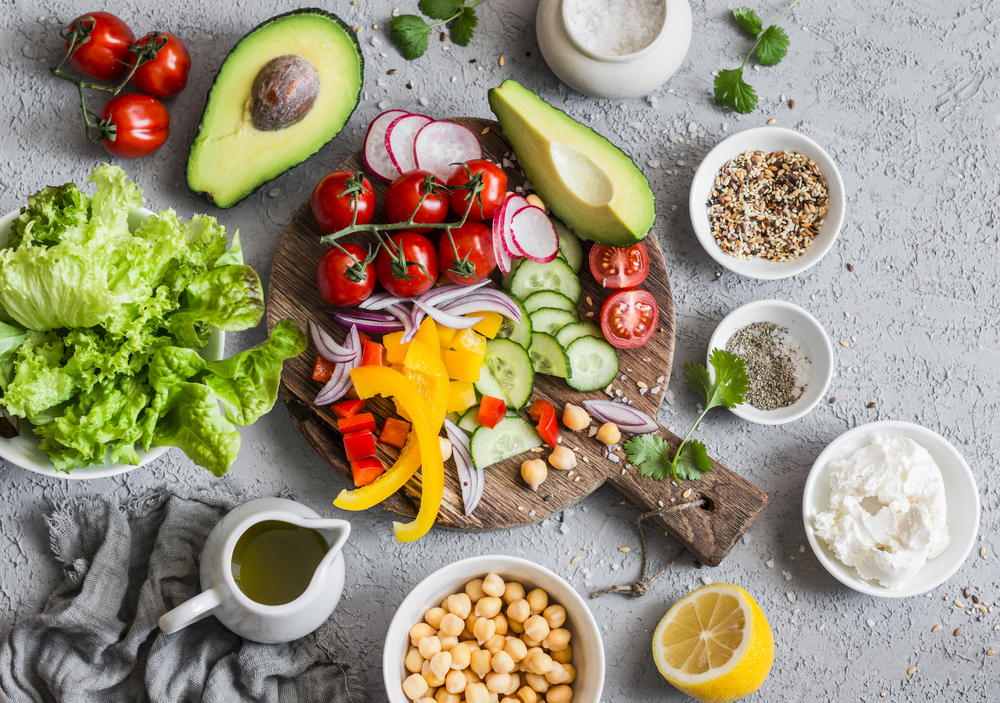
Mediterranean Diet and the Modulation of Mitochondrial Function
- April 7, 2023
Explore the links between the Mediterranean diet and mitochondria function.

How Diet Affects the Sex Lives of Women
- April 5, 2023
A diet low in nutrients can negatively impact women's sexual health.

Higher Magnesium Intake Linked to Lower Dementia Risk
- March 30, 2023
One study shows that higher levels of magnesium are associated with a 37% lower risk of developing dementia.
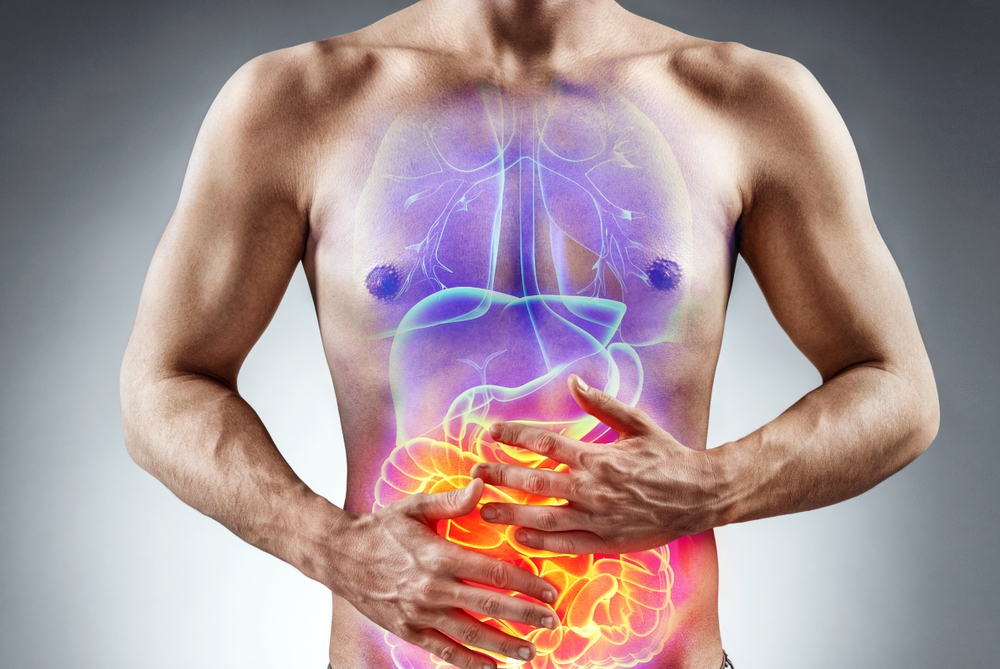
Understanding How to Better Prescribe Probiotics Based on Our Individual Microbiome Profiles
- March 28, 2023
Researchers are working hard to pinpoint the beneficial nature of probiotics for cognitive decline and other health conditions.
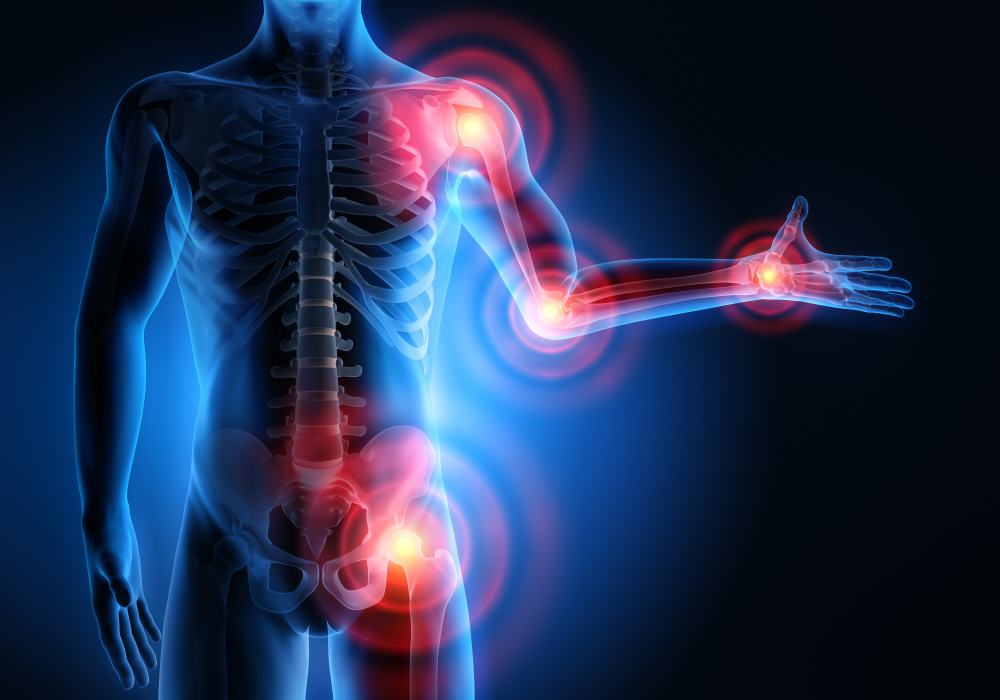
How Does Diet Affect Inflammation?
- March 26, 2023
Recent research points to evidence that dietary factors may directly affect the immune system, impacting inflammation.

Gut Feelings: Why Drugs That Nurture Your Microbes Could Be the Future of Mental Health
- March 21, 2023
Could psychobiotics be the answer to treating disorders such as anxiety and depression?
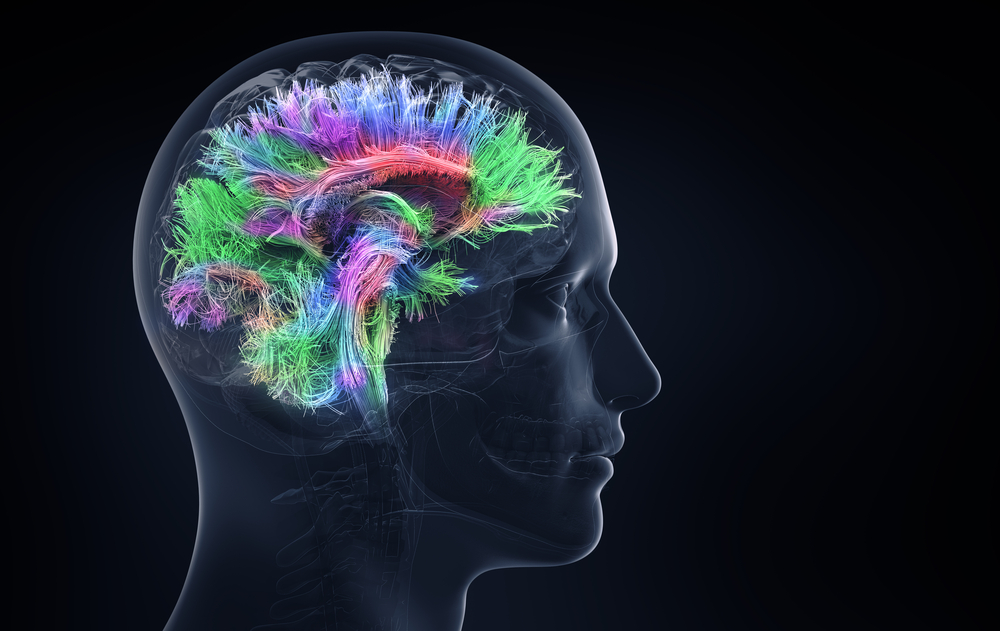
How Sugary or Fatty Snacks Change Your Brain Activity to Make You Like Them More
- March 22, 2023
A new study shows how eating processed food may alter our brain activity and make us crave less nutrient-dense options.
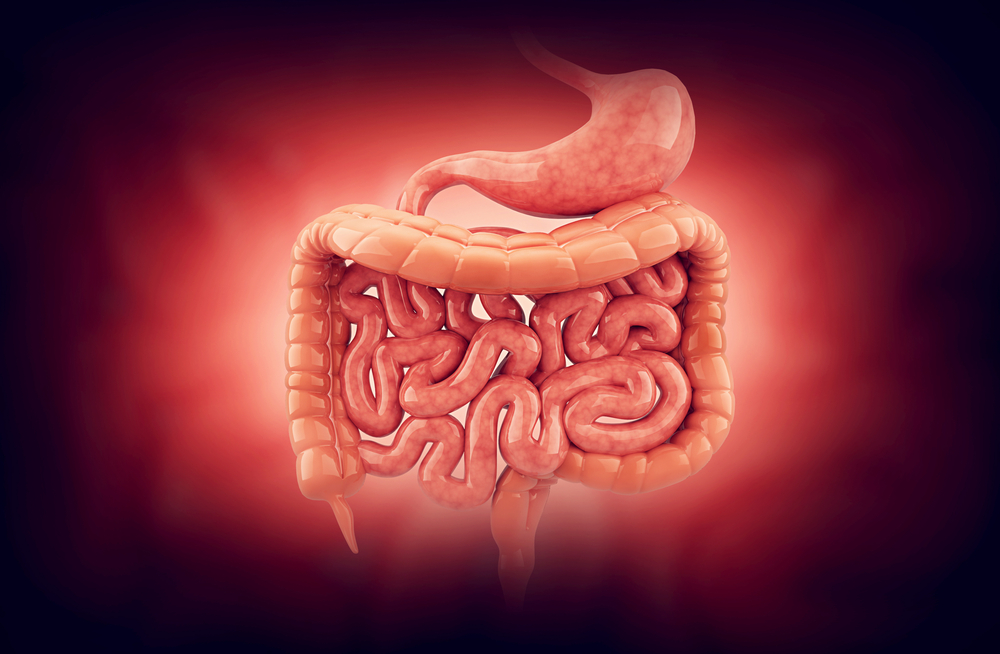
New Evidence: Immune System Cells in the Gut Linked to Stress-Induced Depression
- March 20, 2023
New research identifies how a specific immune cell in the gut may impact stress-induced depression.

Using Probiotics to Treat Depression
- March 15, 2023
Could using probiotics to treat major depressive disorder be the personalized care individuals need?

High Protein Diet Reduces Depression Symptoms
- March 10, 2023
The critical role of nutrition is gaining attention as a way to alleviate mood disorders.

Growing My Own Food Helped Me Heal After Loss, and Now Science Says It Can Help You Too
- March 10, 2023
Could gardening be your ticket to increased fiber and decreased anxiety?

Researchers Confirm the Link Between Diet, Microbiota and Mental Health
- March 10, 2023
Discover how what you digest impacts your mental well-being.

MIND and Mediterranean Diets Associated With Fewer Alzheimer’s Plaques and Tangles
- March 8, 2023
Those who follow the MIND or Mediterranean diet have fewer amyloid plaques.

Ultra Processed Foods Linked to Depression Risk
- February 28, 2023
New research shows link between eating ultra-processed food and depressive symptoms.

Out of this World Salad Created for Astronauts
- February 28, 2023
Scientists work on optimizing nutrition for astronauts headed deep into space.

How Mental Illness Affects Your Oral Health
- February 23, 2023
Mental health and oral health impact each other in many ways.
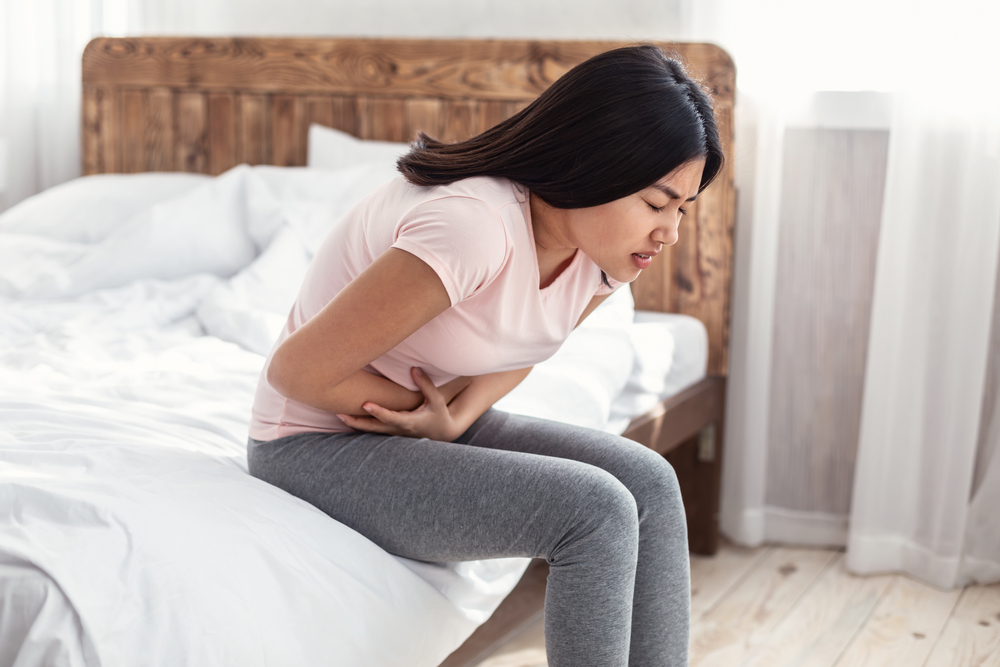
Research Highlights a Link Between Irritable Bowel Syndrome and Mental Health Problems
- February 22, 2023
New research sheds light on the link between irritable bowel syndrome and mental health.

How Diet Affects Your Personality
- February 23, 2023
Eating a healthy diet throughout early childhood leads to better mental health at eight years old.
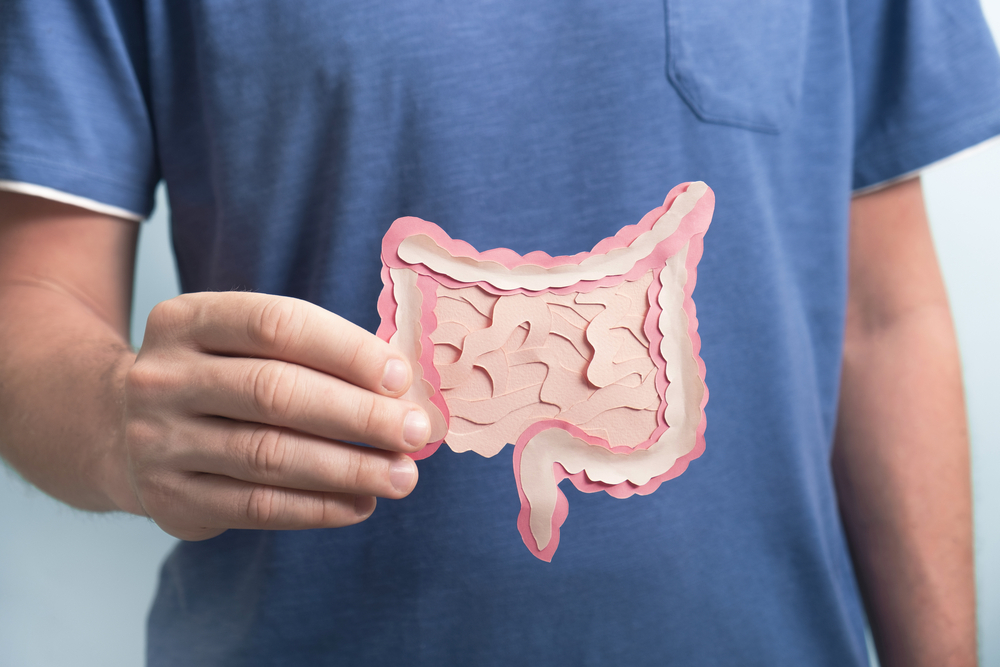
How the Human Gut Microbiota is Shaped by Diet
- February 20, 2023
A nutrient-dense diet can have a critical impact on the gut microbiota leading to improved overall health.

The Effect of Nut Exposure on Cognitive Performance
- February 20, 2023
A new study highlights the benefits of nuts on cognition.

People with Food Addiction Need Help Just as They Would to Quit Smoking or Drinking
- February 18, 2023
Researchers find that one in eight Americans aged 50 and older show signs of food cravings and addiction.
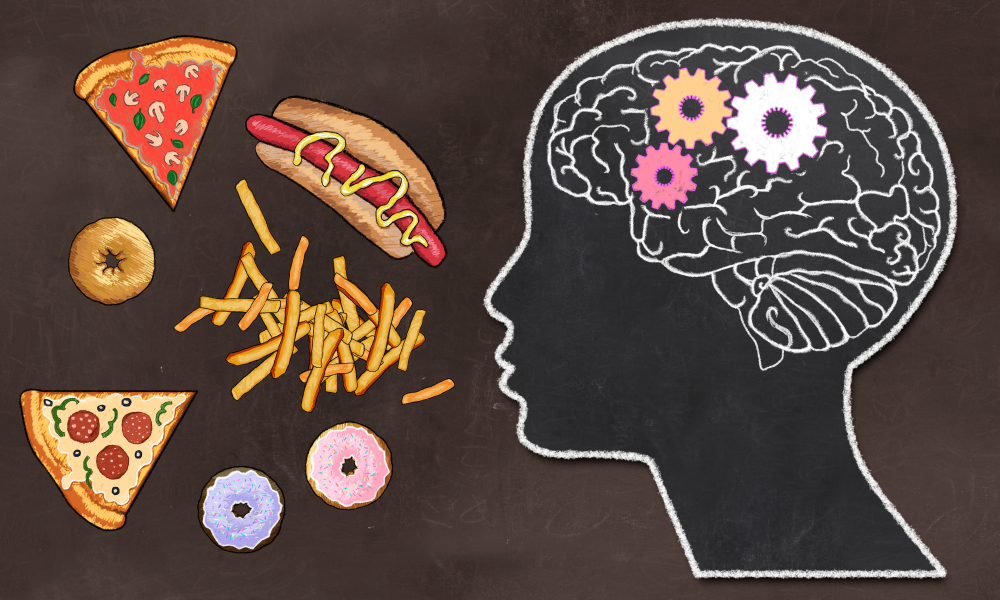
Sugar is Processed Differently in the Brains of Obesity-prone vs. Obesity-resistant Rats
- February 2, 2023
Researchers followed the course of glucose, leading to valuable insights regarding obesity and the brain.

How to Grow Plants in a Spacecraft
- February 6, 2023
Growing plants in space could support not only nutritional needs, but medical needs and crew psychology as well.

Diet, Microbial Metabolites, and Cytokine Levels Correlate With Depression and Anxiety Symptoms in Obese Individuals
- February 6, 2023
New research investigates whether changes in SCFAs and cytokine levels impact mental illness.
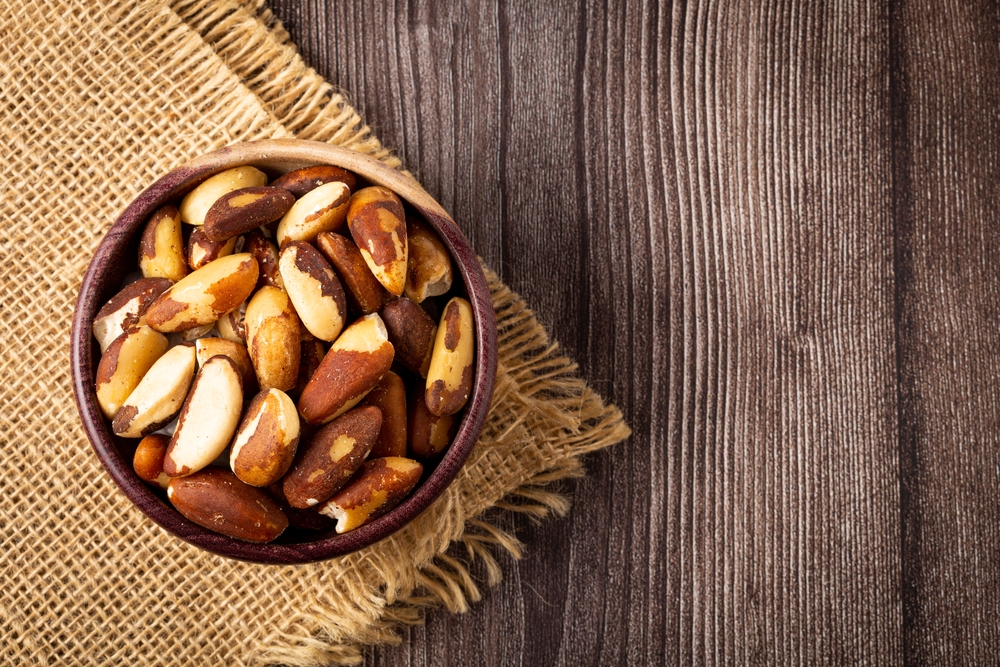
Snacking On Tree Nuts May Boost Serotonin, Have Cardiovascular Benefits
- February 4, 2023
New research suggests that tree nuts may target serotonin and therefore reduce risk factors for cardiovascular disease.

1 in 8 Americans Show Signs of Food Addiction
- January 31, 2023
A new poll points out that many older Americans have an unhealthy relationship with highly processed foods.

Shockingly, Most Therapists And Doctors Don’t Address This Critical Area Of Your Mental Health. Here’s What You Need To Know.
- January 31, 2023
Should therapists rule out physiological imbalances before turning to psychotropic drugs?
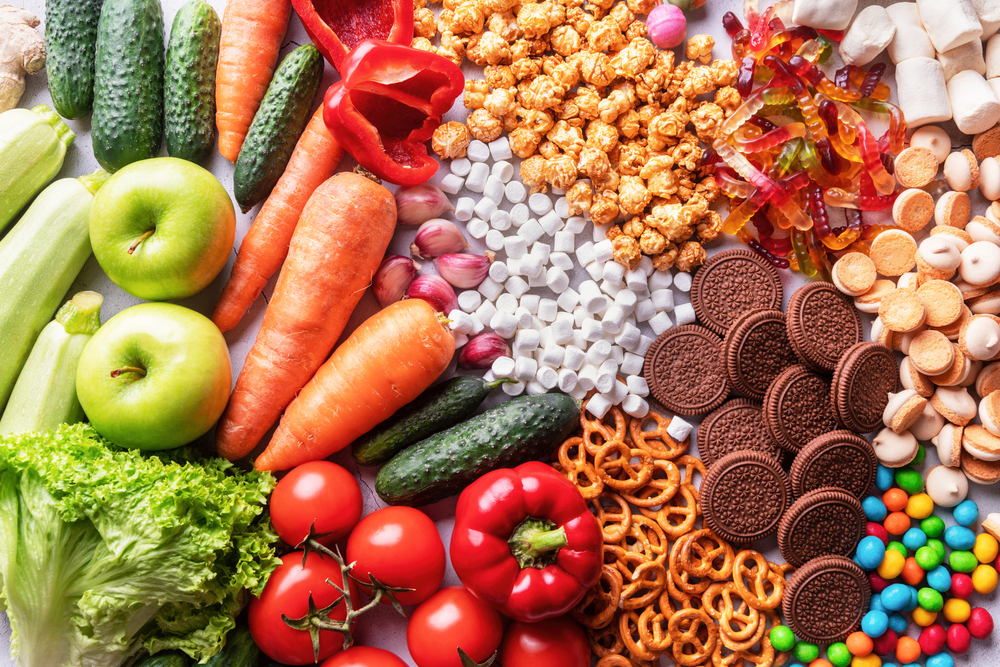
The Link Between our Food, Gut Microbiome and Depression
- January 31, 2023
A new study discovers that several types of bacteria are notably different in people with symptoms of depression.
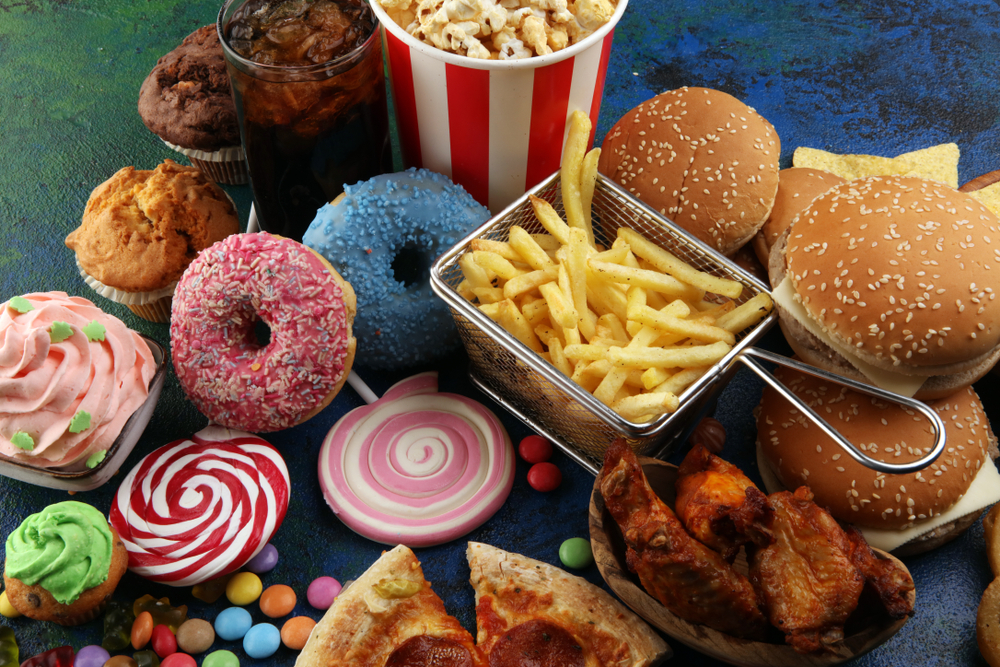
Eating a High Calorie Diet Disrupts Food Intake Regulation
- January 27, 2023
New research shows how eating a high-calorie diet that is also high in fats could reduce the brain's ability to regulate caloric intake.

High Inflammatory Diet Found to Increase Likelihood of Depression, New Study Finds
- January 24, 2023
New research sheds light on the correlation between a highly inflammatory diet and an increased risk for depression.
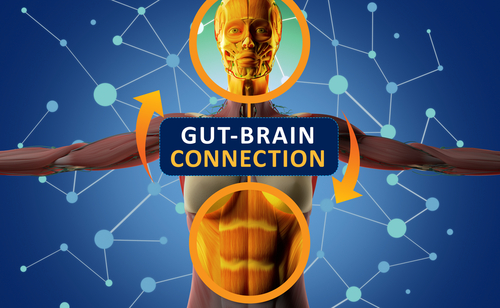
Gut-brain Connection: 3 Fatty Acids May be Linked to Tau-mediated Damage
- January 18, 2023
Researchers argue the gut microbiome's importance when it comes to treating neurodegenerative diseases.

Mother’s Healthy, Comprehensive Diet Supports the Child’s Neurodevelopment, Study Reveals
- January 19, 2023
A new study reveals that a well-rounded dietary intake throughout pregnancy supports the child's neurodevelopment.

Loneliness Among College Students Related to Altered Diet Quality and Physical Inactivity
- January 20, 2023
New research emerges on the relationships between loneliness, weight gain, and physical inactivity.

Research Suggests Plant-Based Diets Can Help Us Win The Battle Against Substance Dependence
- January 17, 2023
Recent research highlights just how connected our diets and psyches truly are.

How Does Early Life Diet Affect a Child’s Mental Health and Personality?
- January 10, 2023
Optimal nutrition is crucial during the first years of a child's life.

How Better Planning, Behavior Regulation May Lead To Eating Less Fat
- January 11, 2023
Improving executive functions could lead to better behavior management and health outcomes.

Is Food Linked to Mood? Emotional Eating Isn’t a Failure, It’s a Part of Our Humanity
- January 6, 2023
In this interview, Mary Beth Albright looks to nutritional psychology to examine the link between food and mood.

Reducing Negative Self-Talk With Dietary Folate
- January 5, 2023
Could a lack of folate be responsible for rumination and worry?
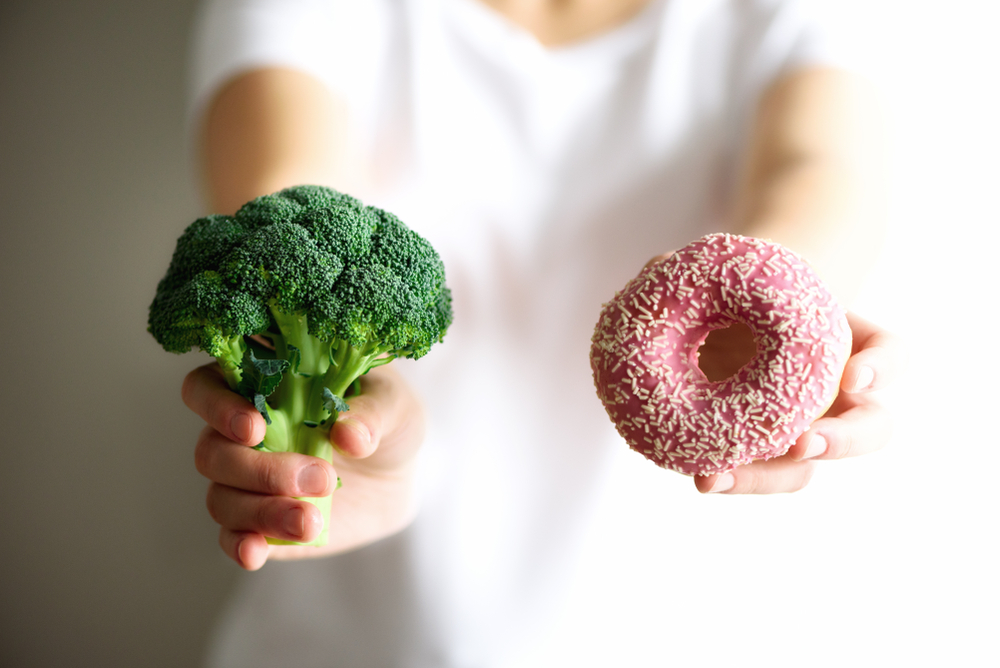
Restriction Diets ‘Always Backfire’. Nutritional Specialist Suggests Finding Nutritious Foods You Enjoy
- January 7, 2023
Dr. Fiona Willer sheds light on why you should build a good relationship with food if you want to reach long-term goals.

The Interrelationship Between Diet, Physical Health, and Depression
- January 4, 2023
Discover the links between what you eat, your physical health, and your well-being.

Are Vegetarians More Likely To Be Depressed Than Meat Consumers?
- December 29, 2022
A new study suggests that those who do not consume meat experience more cases of depression.
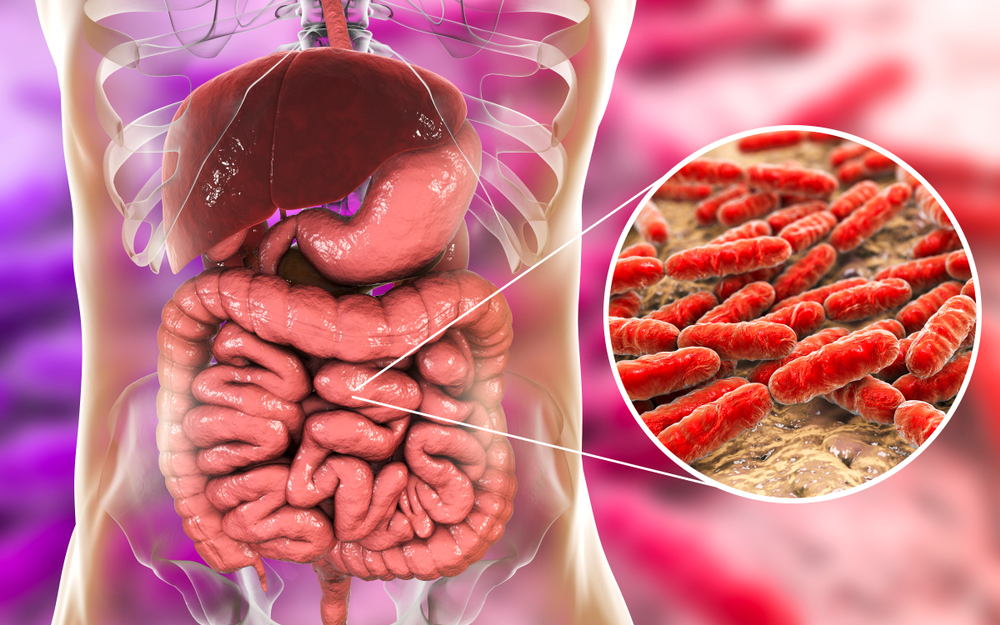
When It Comes to Harvesting Energy, Some Guts do It Better Than Others
- December 24, 2022
New research sheds light on why some people may gain more weight than others, even when they eat the same.

Research Highlights the Health and Well-Being Benefits of Celebrations
- December 21, 2022
Research finds that celebration increases health and well-being outcomes through perceived social support.
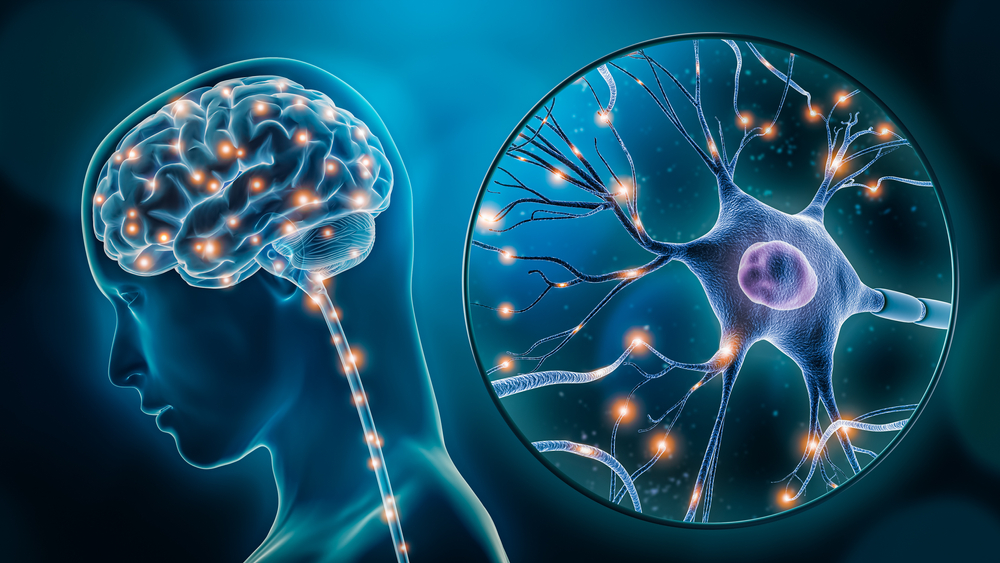
Study Identifies a Neuromarker for Drug and Food Craving
- December 19, 2022
New research identifies a neuromarker for drug and food craving.

Poor Gut Health May Drive Multiple Sclerosis, but a Better Diet May Ease It
- December 15, 2022
A new study sheds light on the reduced bacterial diversity found in patients with multiple sclerosis.

Walnuts the New Super Food for Stressed University Students
- December 15, 2022
New research shows that students may want to up their walnut intake in the weeks leading up to an exam.

Enhanced Diet Could Improve Astronauts’ Health and Performance Compared to Standard Spaceflight Food
- December 16, 2022
New research explores the benefits of a nutrient-dense diet for astronauts in response to negative health changes.

Tea, Fruit & Vegetables Can Keep Your Brain Sharp, Study Says
- December 6, 2022
New research suggests that flavonols are associated with slower cognitive decline.
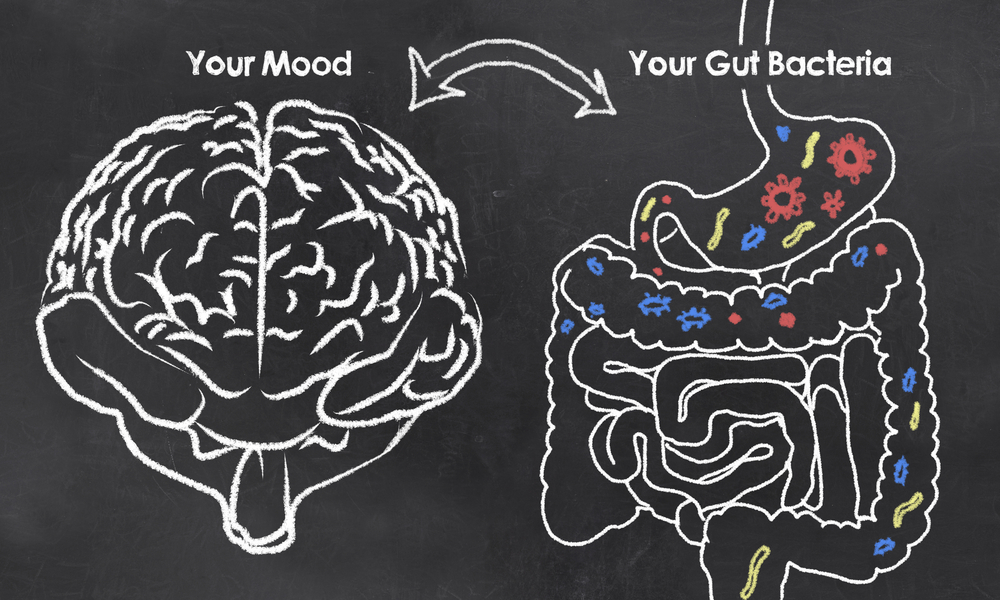
Your Gut Bacteria May Play a Role in Your Risk for Depression—a New Study Explains Why
- December 14, 2022
Support your gut health for better mental health.

Long-Term Consumption of Food Allergens May Lead To Behavior and Mood Changes
- December 11, 2022
Those who are hypersensitive to food allergens may experience changes in both their brain and behavior.

How Does the Mediterranean Diet Associate with Cognitive Risk and Functional Ability in Adults?
- December 9, 2022
New research evaluates the Mediterranean Diet's link to healthy cognitive functioning.

Adding Peanuts, Spices to Diet May Improve Gut Health in 4–6 Weeks
- December 7, 2022
Research finds that herbs and spices may impact the composition of the gut microbiome.

Certain Gut Bacteria May Influence Overeating of Sweet Treats
- December 6, 2022
Could a lack of certain gut bacteria cause you to overconsume sweet or fatty foods?

Dementia Risk May Increase if You’re Eating These Foods, Study Says
- December 5, 2022
A new study points to cognitive decline when consuming more than 20% of your daily caloric intake from ultra-processed foods.

Research for Mental Health: Huge Scope for New Studies on Synergistic Impact of Ingredients
- December 6, 2022
Should dietary interventions be included in mental health treatment?

Time to Get Some Culture! Why Fermented Food is Good for Your Gut
- November 14, 2022
Fermented foods can improve the immune system and metabolism, aiding weight loss and even raising mood.

Food for (Better) Thought: Mary Beth Albright on How Diet Impacts Your Mental Health
- December 2, 2022
Discover how your dietary intake impacts your mental well-being.

Doctors Normally Prescribe Medicine and Now Some are Prescribing Meals
- November 28, 2022
New research finds nutritious meal delivery reduces time spent in the hospital.

Berry Good for You: Some Foods Can Strengthen Your Brain
- December 28, 2022
In a study of more than 900 adults, researchers found that foods containing antioxidant flavonols delivered brain benefits to older adults.

Picky Eaters Are Put Off by Food Depending on Plateware Color
- November 23, 2022
Does the color of your plate determine taste perception? New research says yes.
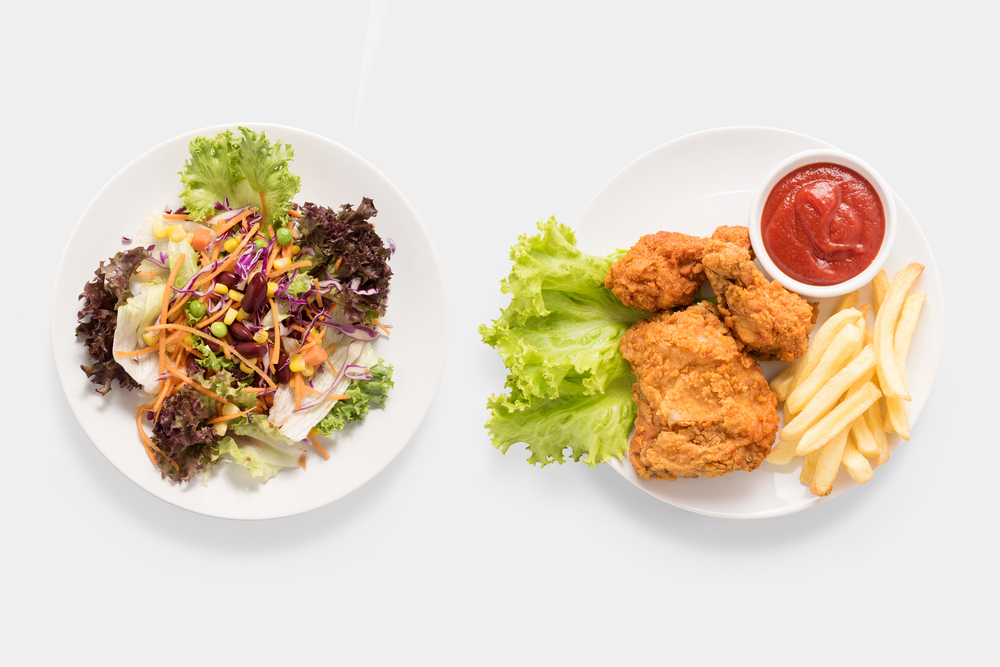
Study Finds ‘Disconnect’ Between Dieters’ and Experts’ Idea of a Healthy Diet
- November 20, 2022
New research finds that people overestimate how healthy their dietary intake is.

High Fat Diets Increase Sensitivity to Non-Painful Stimuli, May Lead to Chronic Pain
- November 18, 2022
New research sheds light on how a high-fat diet may lead to pain, even in non-painful situations.

Therapists Say They Can’t Meet High Demand as Anxiety, Depression Linger
- November 16, 2022
The coronavirus spurred an ongoing mental health crisis, and therapists just can't seem to keep up.
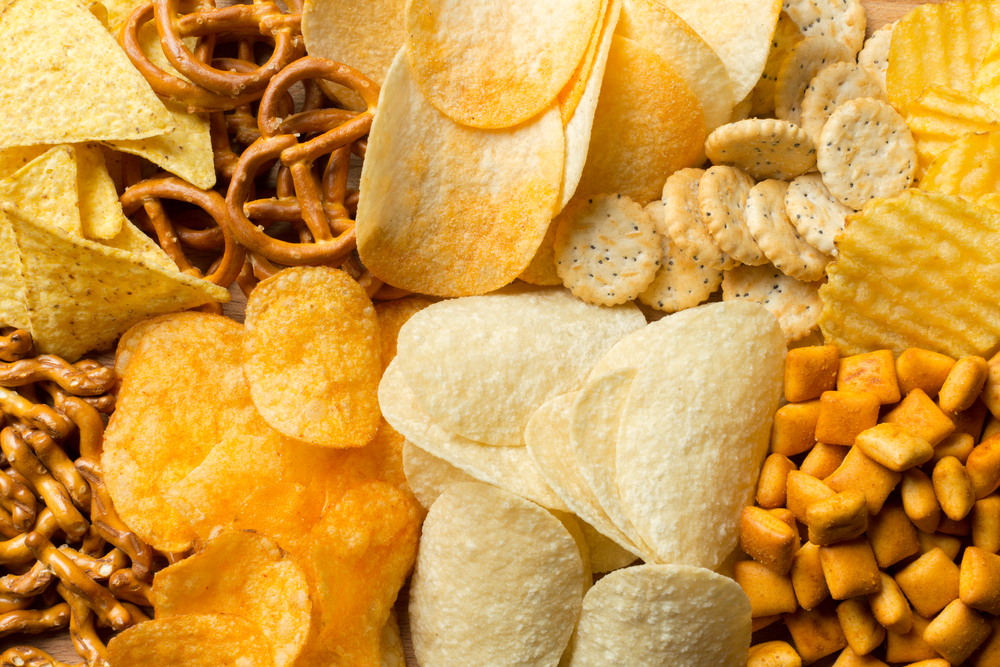
Diet Containing Excess Salt Can Contribute to Increased Levels of Stress, Study Shows
- November 16, 2022
A new study shows that consuming an excessive amount of salt can contribute to elevated stress levels.

Delayed Reactions and Industry In-jokes: The Psychology of Functional Foods
- April 22, 2015
Functional foods and beverages surge in popularity, but what do these marketing terms really mean?

Chef’s kiss: Research shows healthy home cooking equals a healthy mind
- March 22, 2022
It turns out that knowing your way around a kitchen is good for your mental well-being.

Sleep, Mind, and Microbes
- September 23, 2022
Discover the link between sleep, the gut microbiome, and mood.

Sociability in Monkeys Associated with Higher Abundance of Beneficial Gut Bacteria
- November 11, 2022
Monkeys that are more social tend to have higher levels of good bacteria in their gut. What could this mean for humans?

How Your Diet Can Lead to Depression
- November 11, 2022
Could your dietary intake lead to depression? Researchers say yes.

Can a Diet Reduce Your Stress?
- November 9, 2022
A Mediterranean-style diet can improve your perception of stress by altering your gut microbiome.

Low-Protein Highly Processed Foods Lead to Higher Energy Intake
- November 8, 2022
Discover what the 'Protein Leverage Hypothesis' is and how it could help curb rising rates of obesity.

This Diet Can Help Reduce Feelings of Stress
- November 7, 2022
Researchers find that a "psychobiotic" diet rich in prebiotic and fermented foods may decrease stress.

Study Finds Potential Link Between Daily Multivitamin and Improved Cognition in Older Adults
- September 14, 2022
Could taking a multivitamin correlate with improved brain function in older adults?

Study Finds Dieters May Overestimate the Healthiness of their Eating Habits
- November 1, 2022
New study finds that individuals on a diet tend to overestimate the nutritional quality of their dietary intake.
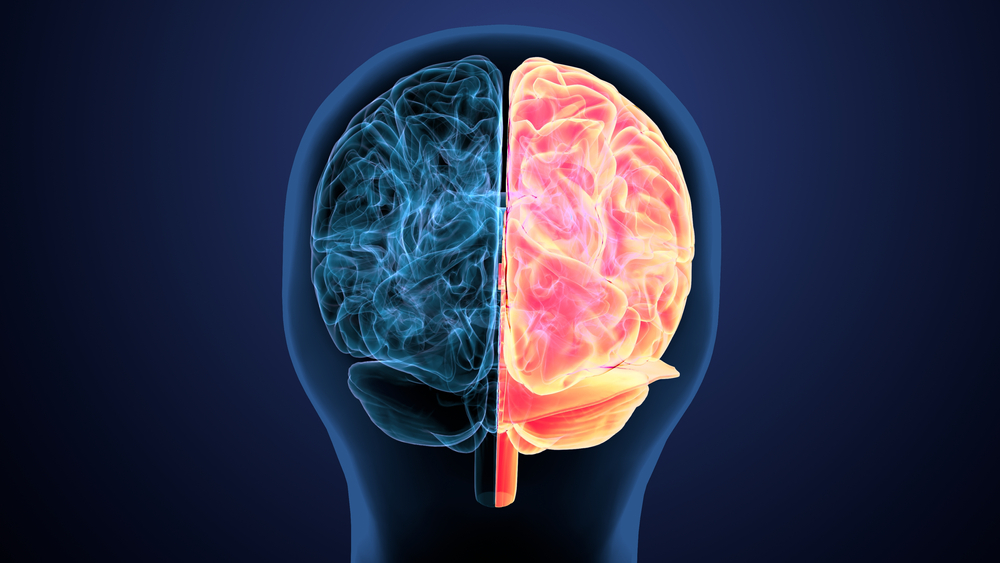
Scientists Find the Brain Cells that Drive Us to Eat Fat, Sugar
- October 25, 2022
New research emerges that may help to decrease obesity rates.

How Ultra-Processed Foods Can Affect Your Mental Health
- October 24, 2022
Think twice about ultra-processed foods — they impact both your physical and mental health.

Snacking on Almonds Boosts Gut Health
- October 23, 2022
New research sheds light on how almonds impact an individual's gut microbiome.

Certain Foods Reduce Weight and Hot Flashes in Menopausal Women by 88%
- October 21, 2022
Could diet play a pivotal role in certain aspects of menopause? New research says yes.

The FDA’s Proposed Food Guidelines Would Majorly Impact ‘Healthy’ Cereal
- October 17, 2022
Some cereal brands may have to abandon their 'healthy' status as the FDA proposes new guidelines.

The Link Between Depression and Weight Changes and How to Manage
- October 16, 2022
Researchers describe two types of depression, both of which are associated with weight changes.

Study says Mediterranean Diet may not Reduce Dementia Risk
- October 12, 2022
A new study reveals that the Mediterranean diet may not have the cognitive benefits long associated with it.

High-Sugar Diet Decreases Ability to Sense Sweetness in Rats
- October 13, 2022
This animal study shows that rats can become desensitized to sweetness when consuming a high-sugar diet.

Helping Our Heroes: Time-Restricted Eating Improves Health of Firefighters
- October 4, 2022
New study finds that eating during a 10-hour window and not skipping meals improves firefighter's health and well-being.

Anxious Eaters: Why We Fall for Fad Diets
- October 4, 2022
Discover five insights into why individuals with anxiety tend to fall for the latest diet trend.
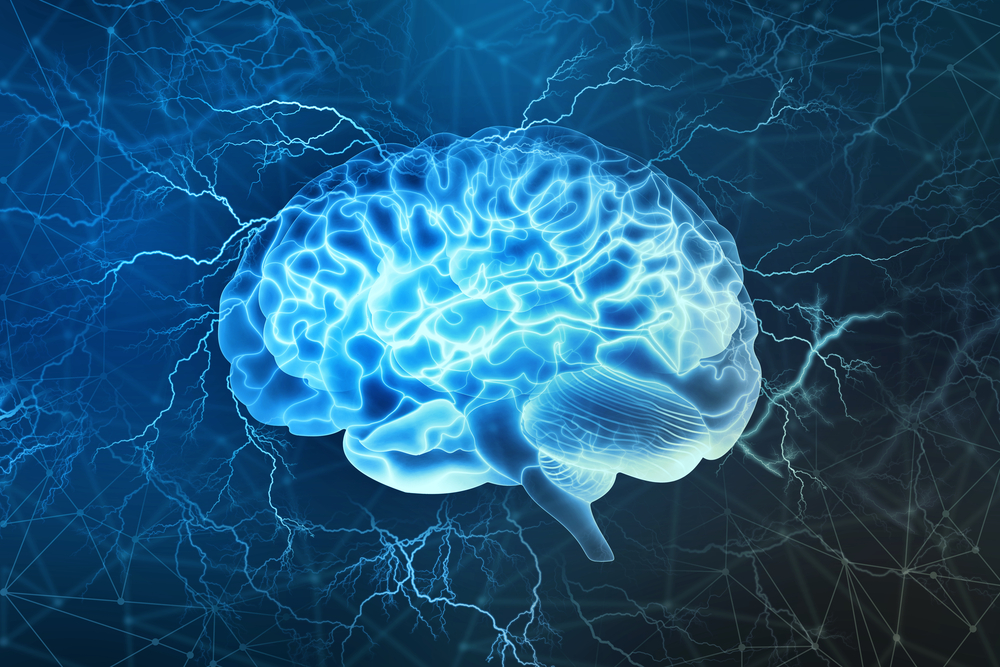
Does Obesity Have More to do with the Brain than we Initially Thought?
- October 3, 2022
New research sheds light on obesity and the impact environmental and nutritional impacts may have.

Hunger Really Can Make Us Feel ‘Hangry’ – Study
- July 6, 2022
New research finds hunger is associated with increased anger and irritability

Soaring Food Costs Worsen Food Insecurity, SDOH for Older Adults
- September 29, 2022
Older adults are at an increased risk of experiencing food insecurity as food prices continue to surge.

The Biopsychology of Healthy Eating
- September 26, 2022
Take a look at how the past shaped our current eating habits, and how we can change our food environments to align with our appetite systems.

Food Insecurity and Food Deserts in the US: A Research Roundup and Explainer
- September 27, 2022
Discover how food insecurity affects millions of Americans and the national strategy aimed at improving the role of nutrition in overall health.

Diets Worldwide Only Slightly Healthier Than 30 Years Ago
- September 23, 2022
Investigating different countries' dietary habits could improve guidelines, leading to localized nutrition data.

Mediterranean Diet Could Play a Key Role in Preventing Cognitive Decline
- September 21, 2022
Dietary habits may influence specific metabolites, impacting rates of cognitive decline.
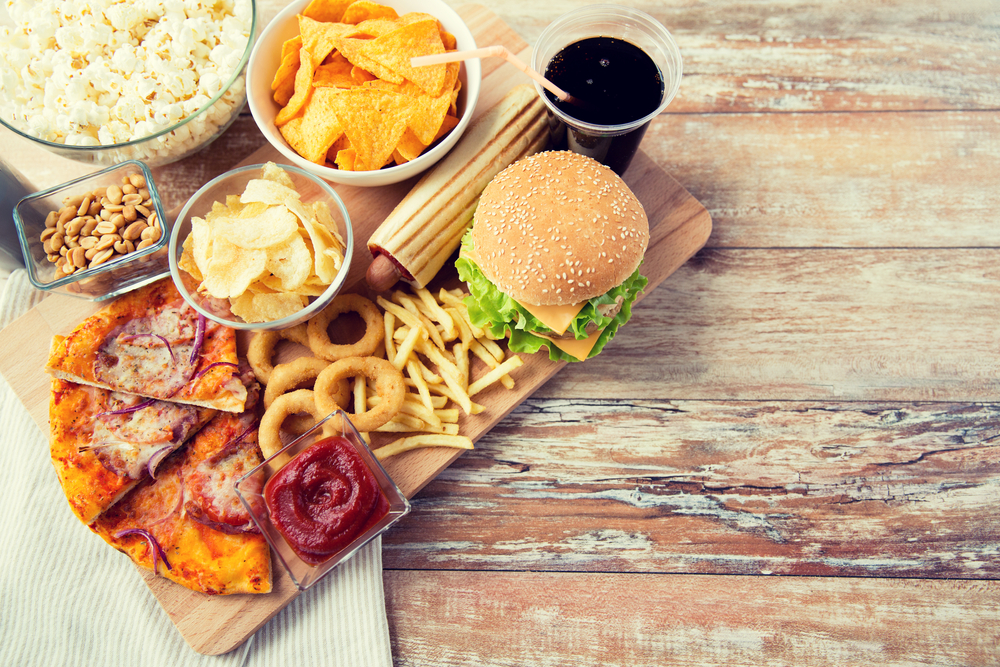
Women Experiencing Food Insecurity May be at Greater Risk for Highly Processed Food Addiction
- September 20, 2022
A new study takes a closer look at the relationship between food insecurity and symptoms of food addiction in women.

Exploring Hunger and Fullness Hormones in ARFID
- September 18, 2022
Hormones may play a substantial role in anorexia nervosa and ARFID.

Food As Medicine: Could Prescribing Fruit and Vegetables Become Part of Healthcare?
- September 18, 2022
Could prescribing a healthier diet and addressing systemic barriers help the rising rates of obesity and type 2 diabetes?

Diet Could Play a Role in Cognitive Function Across Diverse Races and Ethnicities
- September 16, 2022
Looking specifically at minorities may give rise to insights that are beneficial to everyone.
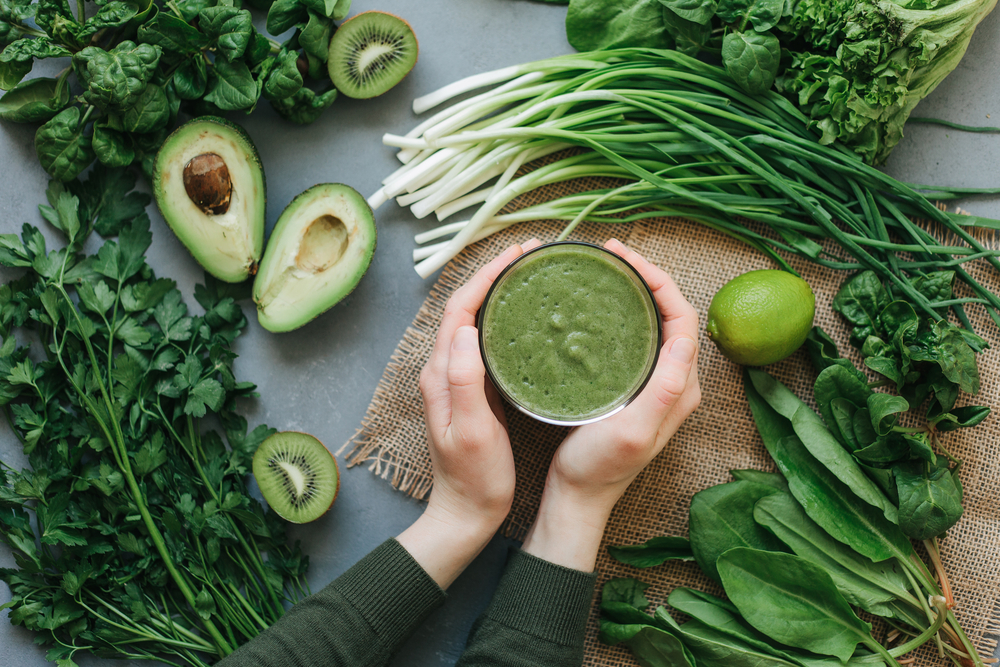
How Eating Vegetables Can Improve Your Mood, According To Science
- September 17, 2022
Increasing your intake of greens each day can make an impact on your mental health.
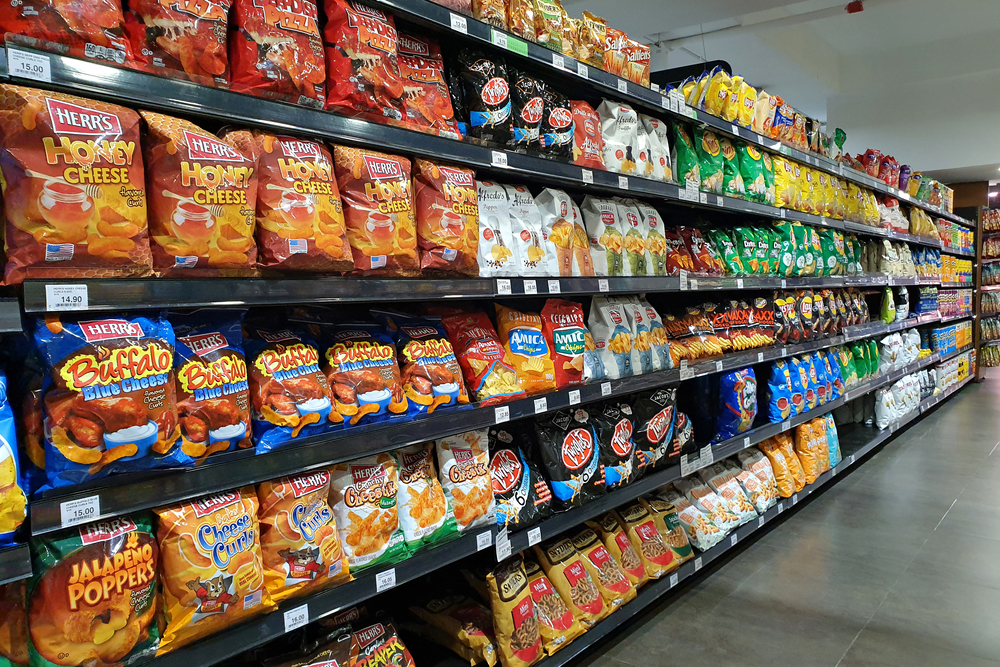
Adverse Effects of Ultra-Processed Foods on Mental Health
- September 12, 2022
Highly processed foods promote depression, anxiety, and cognitive decline.

How Daytime Eating Benefits the Mental Health of Shift Workers
- September 12, 2022
New research suggests that shift workers should eat exclusively during the day to prevent depression and anxiety.

Exploring the Role of Appetite Change in Depression
- August 24, 2022
New research points to how depression can lead to changes in appetite depending on the structure of an individual's reward system in the brain.
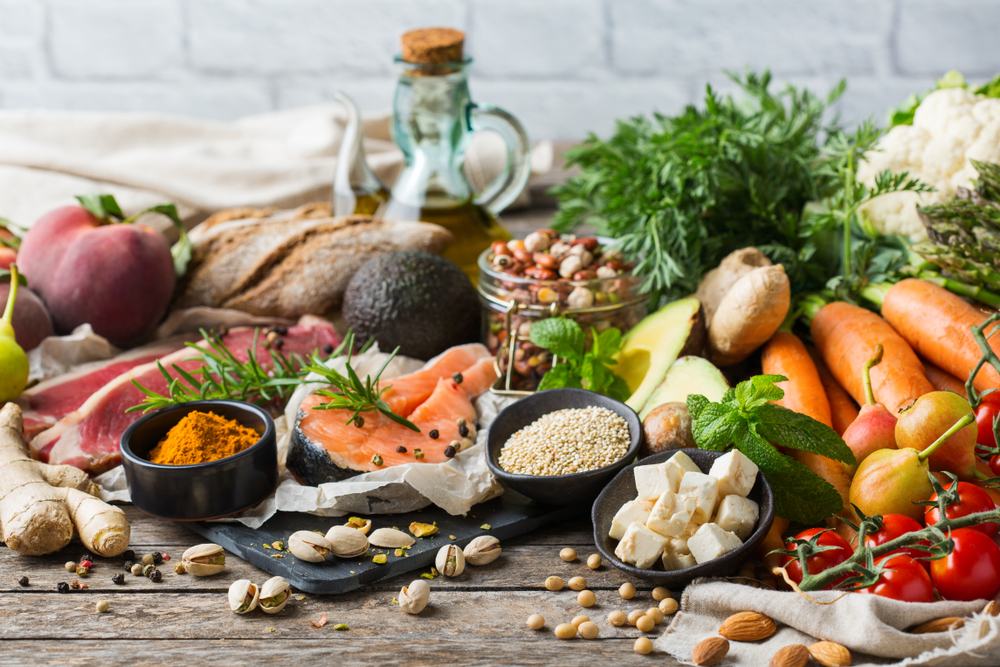
MIND Diet Linked to Better Cognitive Performance
- September 21, 2021
Studies suggest that the MIND diet is related to better cognitive functioning, regardless of whether an individual has amyloid buildup in the brain.

You Are What You Eat: Nutrition and Depression
- September 4, 2022
Discover how what you eat impacts both your physical and mental health.

Consuming Cranberries Could Improve Memory and Prevent Dementia
- September 1, 2022
Consuming just a cup of cranberries a day could have health benefits that include improving memory and preventing dementia.

Is Home Cooking Really Good for the Soul? Science Says Yes
- August 26, 2022
Some experts believe that cooking can have a therapeutic role, beyond just the benefits of a healthier dietary intake.

Diet Can Influence Mood, Behavior, and More
- August 27, 2022
Discover how your dietary intake can impact your affect and behavior, including how certain diets can help regulate neurological conditions.

Feeling Anxious or Blue? Ultra-Processed Foods May Be to Blame
- August 25, 2022
Constantly consuming highly processed foods can impact mental health, causing anxiety and depression to rise.

Health Benefits of Cucumber
- December 3, 2019
From bone health to inflammation, cucumbers offer an array of benefits.

Study Sheds Light on the Food Buying Habits of Low-Income Parents
- August 24, 2022
New research takes a deeper look at why parents with a low income choose to purchase unhealthy foods for their families.

Effects of Nutrition on Mood Variability in Bipolar Disorder
- August 22, 2022
Individuals with bipolar disorder saw noticeable reductions in symptoms with this diet.

What are the Effects of Non-Nutritive Sweeteners on the Human Gut Microbiome?
- August 24, 2022
While sugar alternatives may seem harmless, zero-calorie sweeteners may have a negative impact on gut health.

Consumption of Ultra-Processed Foods Increases Risk of COVID-19
- August 21, 2022
A healthy diet majorly determines human health by helping to regulate the immune system.
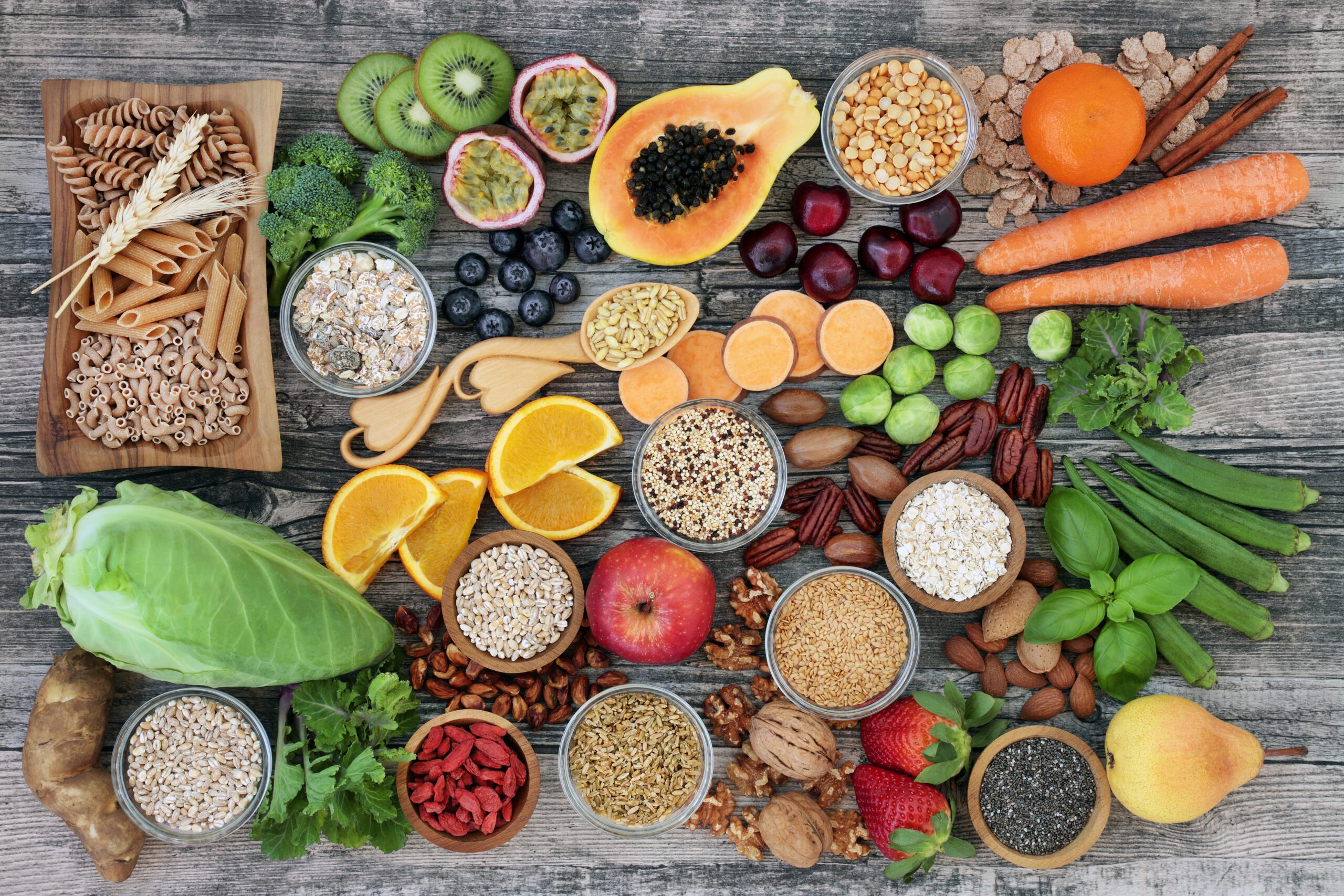
How Can Food and Beverage Brands Make Fibre Sexy?
- August 17, 2022
Can consumer perceptions be swayed in fibre's favor?
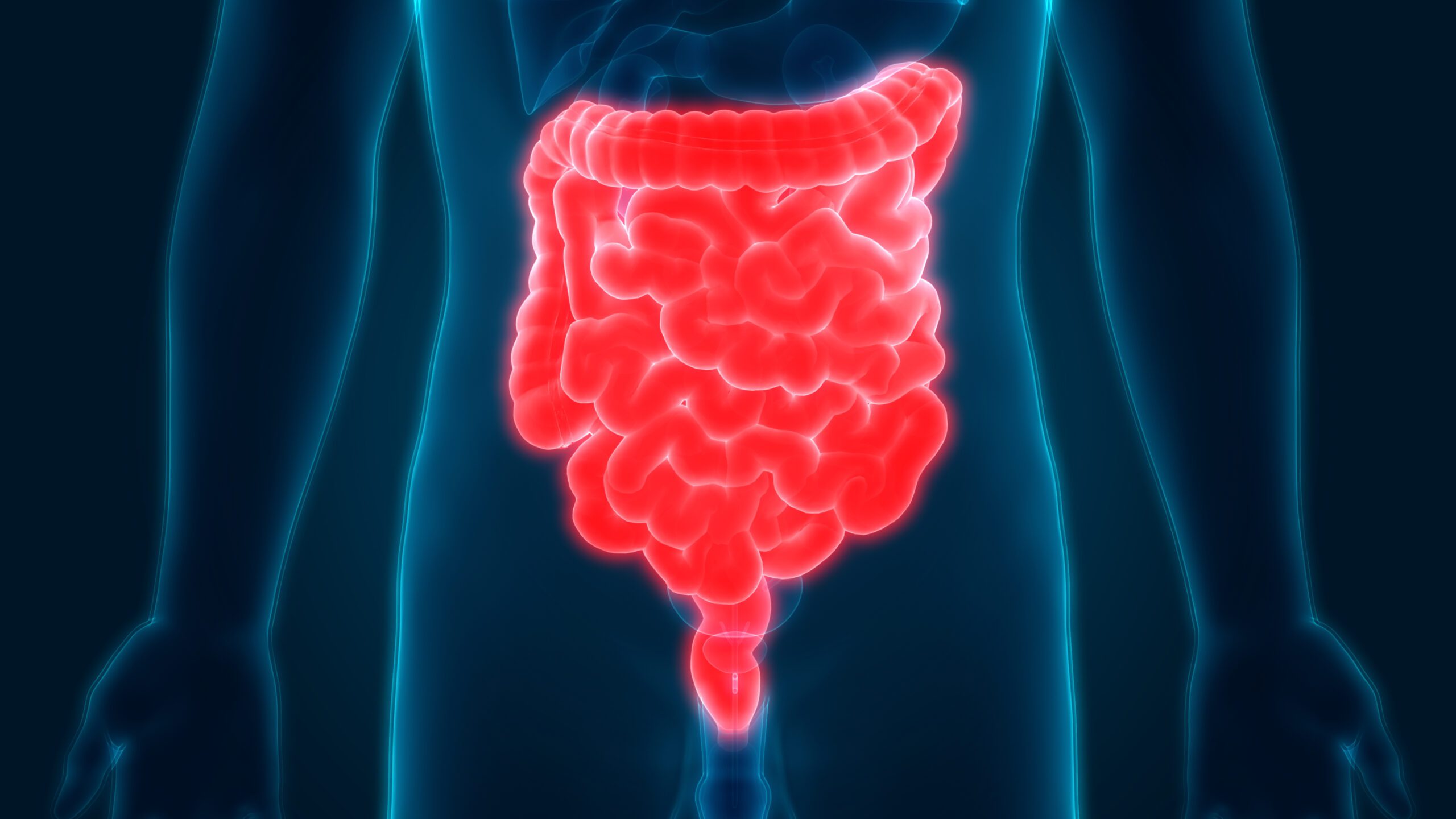
Eating Disorders Could be Treated by Modulating Gut Microbiota
- August 17, 2022
New research sparks discussion of what the gut-brain axis could mean for those with eating disorders.

2 Cups Of Grapes Per Day Could Help You Live Longer, Study Shows
- August 12, 2022
Making grapes a part of your daily dietary intake may have a noticeable impact on health and longevity.

Best Foods that Help Lower and Control Blood Sugar
- November 30, 2021
Consuming low glycemic index (GI) foods is a helpful strategy for managing insulin resistance.

Does Vitamin B6 Boost Mental Health?
- August 2, 2022
How this essential "forgotten vitamin" may be a key factor in mood and well-being.
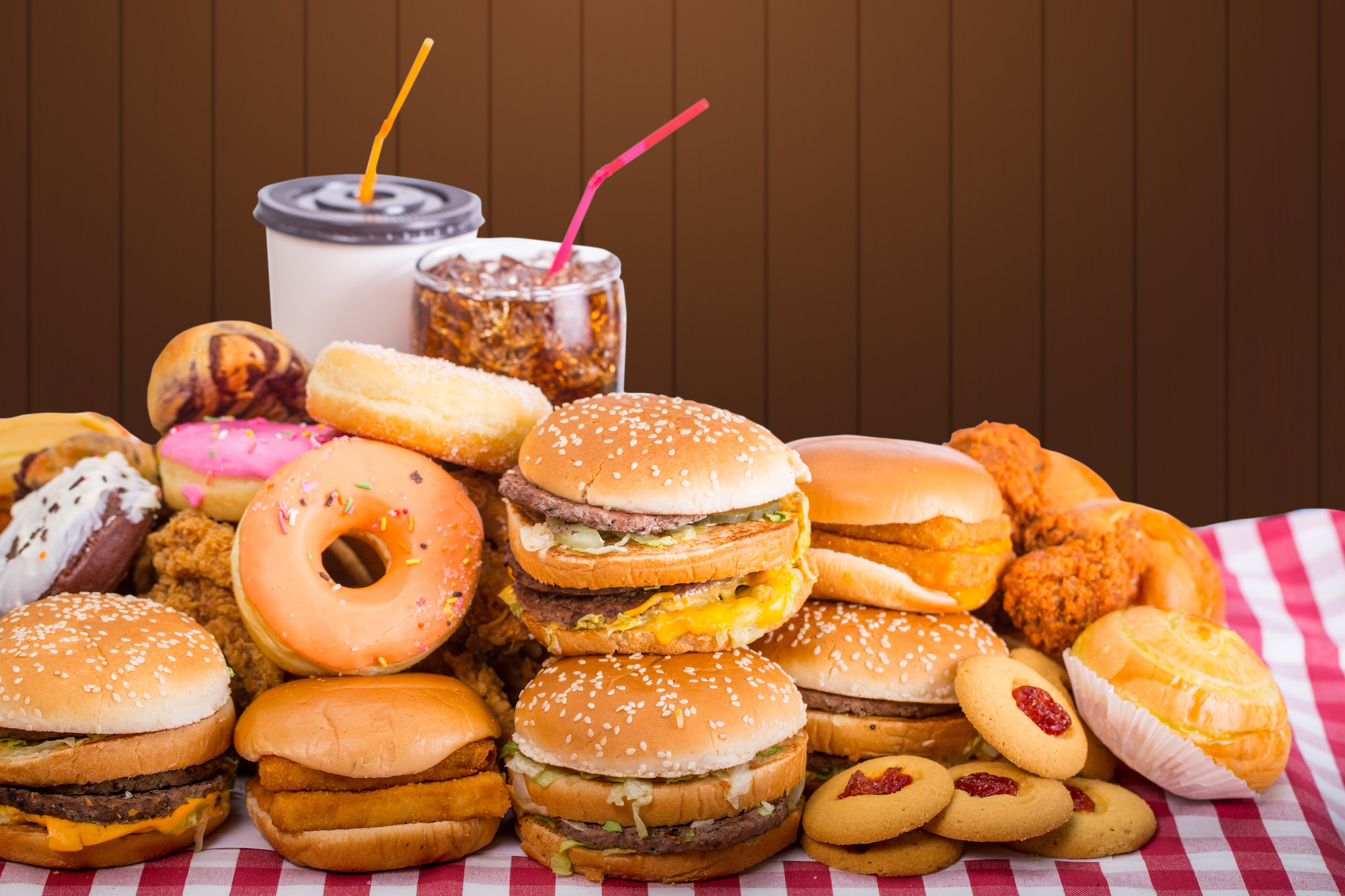
People Who Eat More Ultra-Processed Foods May Have Higher Risk of Dementia
- July 27, 2022
Ultra-processed foods high in fat and processed sugar are associated with an increased risk for dementia.

High Blood Sugar: Causes, Symptoms and Treatments
- July 29, 2022
Elevated blood sugar levels can impact everything from your heart to your mental health and more.

These 6 Documentaries and Docuseries Will Help You Learn About Food Justice
- July 29, 2022
Those who advocate for food justice see a healthy dietary intake as a human right.

People Eating More Fiber-Rich Food Have Very Healthy Microbiomes, Study Shows
- July 29, 2022
Research shows that fiber is a paramount source of nutrients that your gut microbiome needs for optimal health.

Feeling Addicted to Food? Your Parents’ Drinking Habits May Impact Your Risk
- July 26, 2022
New study finds that a parent's drinking history could put an individual at risk for developing food addiction.
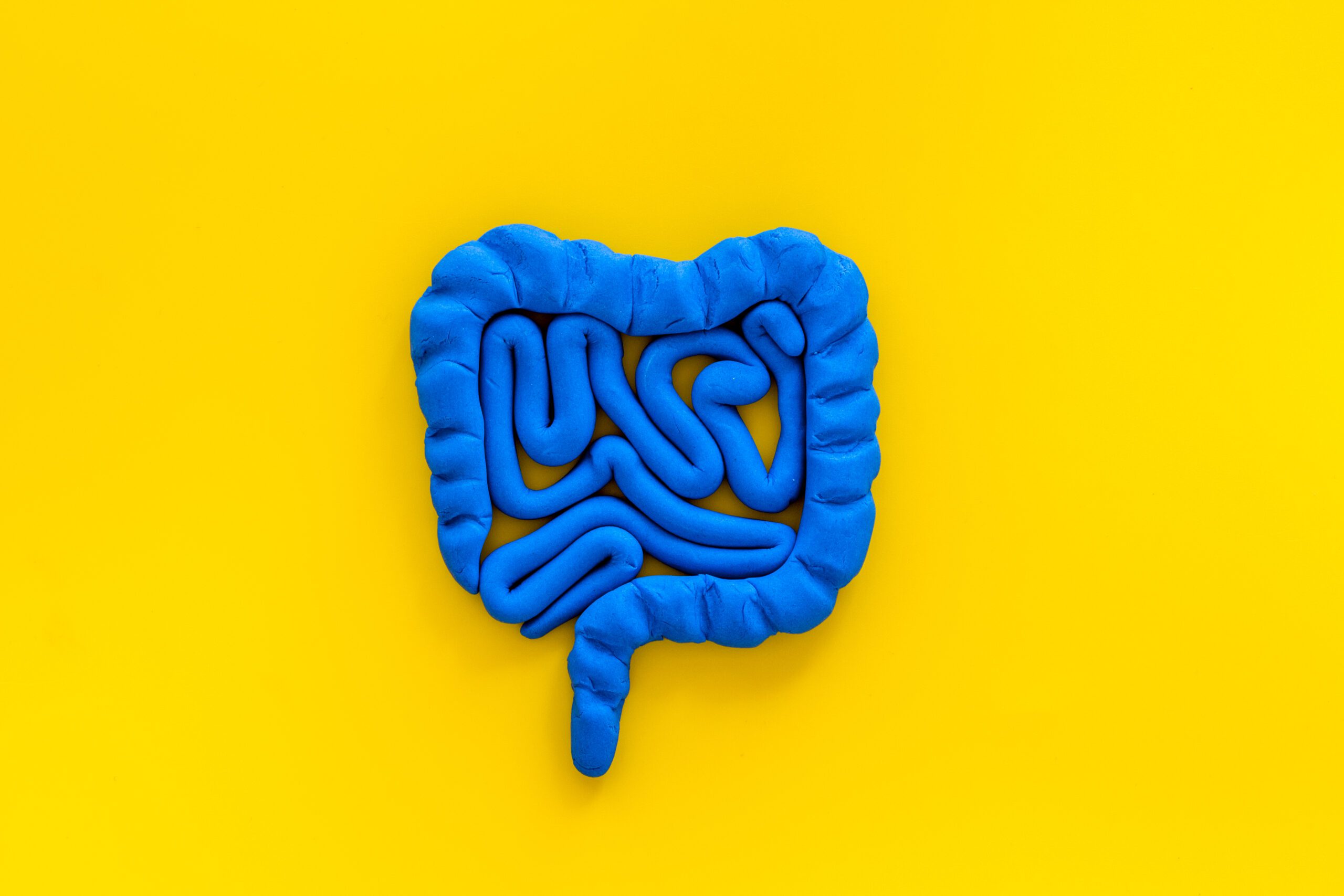
9 Ways to Improve Your Gut Bacteria, Based on Science
- August 5, 2021
From polyphenols, probiotics, and more — discover how to optimize your gut health.

Depression Linked to Consuming an Inflammatory Diet and Increasing Risk of Frailty
- July 19, 2022
Those with depression may be more vulnerable to the impact of inflammation induced by a poor diet as they age.

Fruits Or Savoury Snacks – Which Is Better For Mental Health? Study Result Will Surprise You
- July 19, 2022
Study finds eating fruit to be more advantageous for your mental health when it comes to snacking.

Could Vitamin B6 Reduce Anxiety and Depression?
- July 19, 2022
Is vitamin B6 the answer to coping with stress and anxiety?
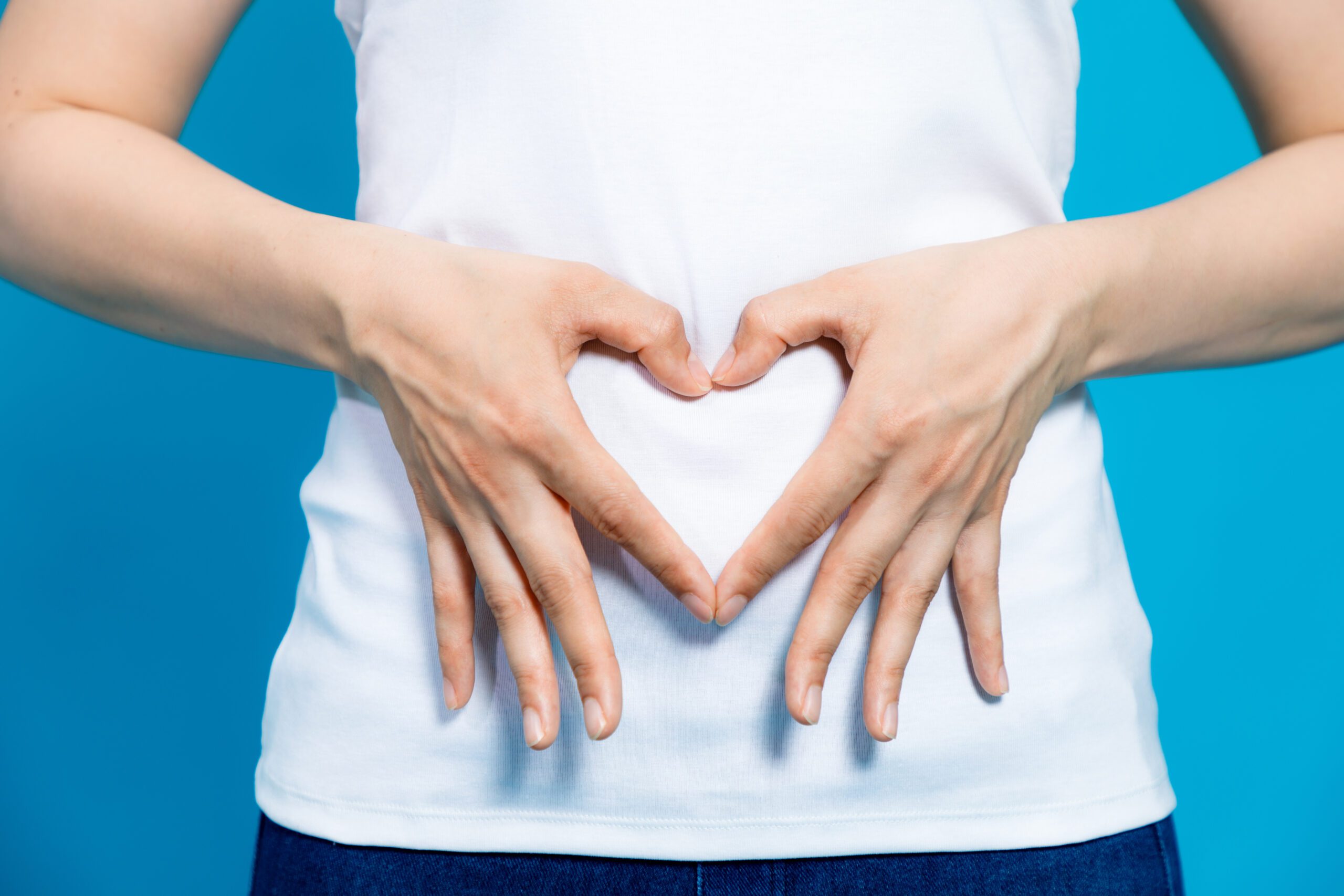
Psychobiotics: Using Probiotics For Mental Health
- July 11, 2022
Research discovers a link between a disrupted gut and several mental health issues.

People with Obesity have a 55% Increased Risk of Developing Depression
- July 11, 2022
Chronically high-fat diets cause weight gain and shrink the brain, which increases the risk of mental illness for individuals with obesity.

Feeling ‘Hangry’? It’s Natural, New Study Finds
- July 7, 2022
Is self-reported hunger associated with stronger feelings of anger and irritability?
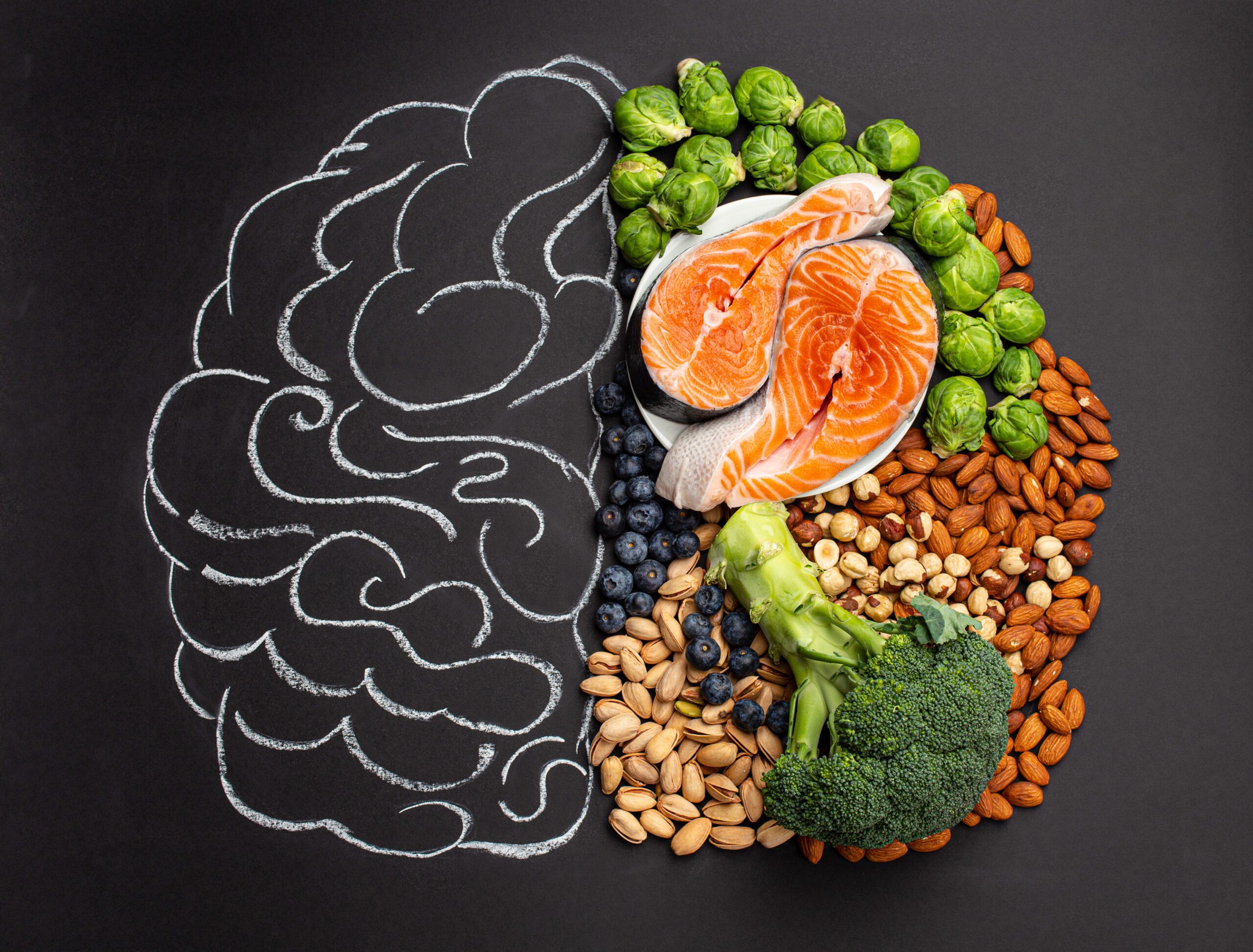
Diet a Vital Key for Roadmap to Mental Health Shared Care
- June 24, 2022
Mental health experts come together with a roadmap to incorporate nutrition into mental health treatment.

Large U.K. Study Connects Diet, Supplements Supporting Mental Health, Combatting Anxiety and Depression
- June 28, 2022
Discover how your dietary intake helps to manage anxiety and depression.

How Improving Texture in Food Can Impact Depression, Poor Nutrition, and Eating After Cancer and COVID-19
- June 26, 2022
The texture of food has a significant impact on dietary intake and mood after cancer and COVID-19.

How Does Gut Microbiota Impact Mental Health in 18–25s?
- June 16, 2022
How important is the gut-brain-microbiota for optimizing mental health in young adults?
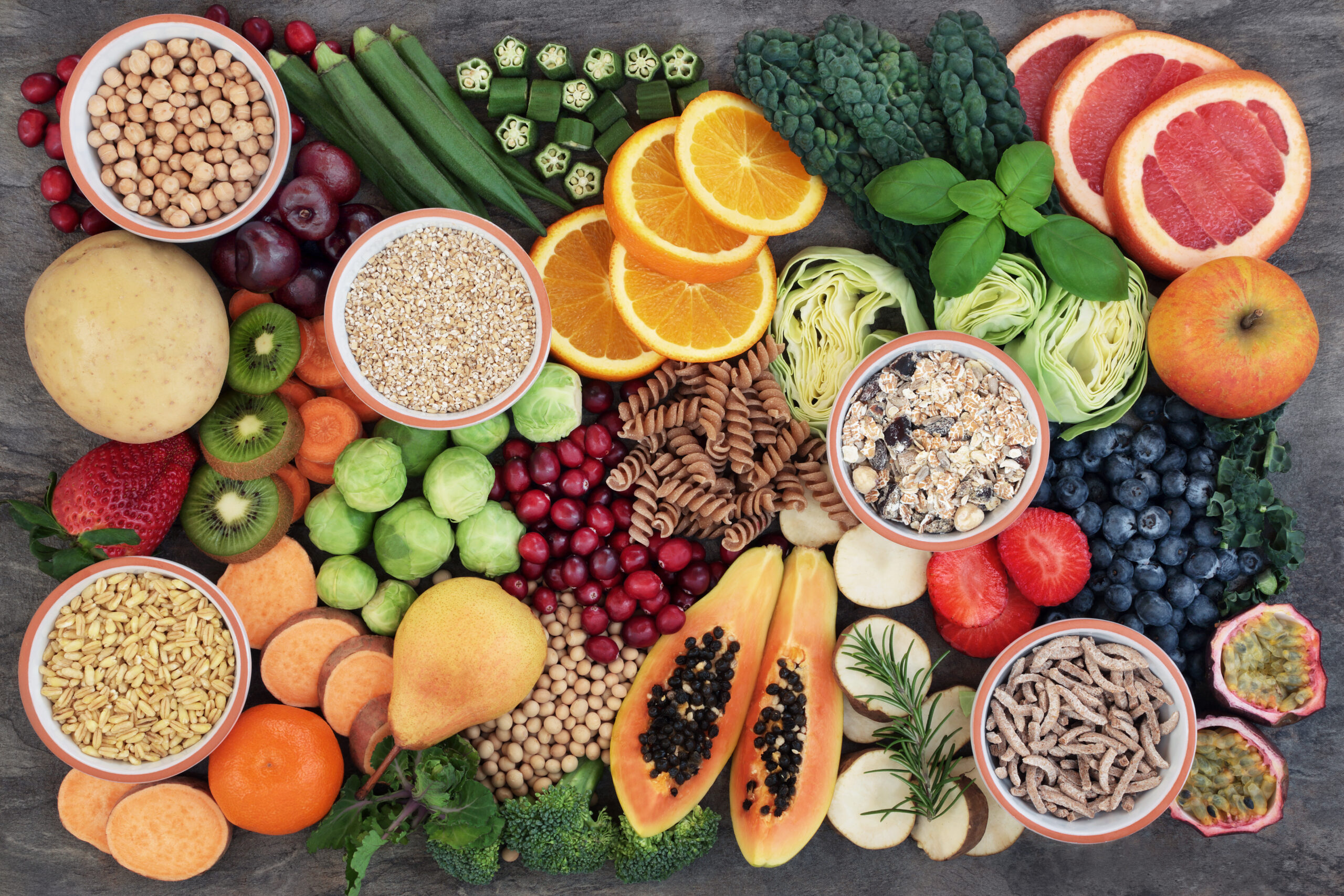
People on Plant-Based Diets Eat Little Fruit, Vegetables and Whole Grains
- June 23, 2022
A new survey about dietary habits reveals that consumers are eating fewer fruits, vegetables, and whole grains than is recommended.
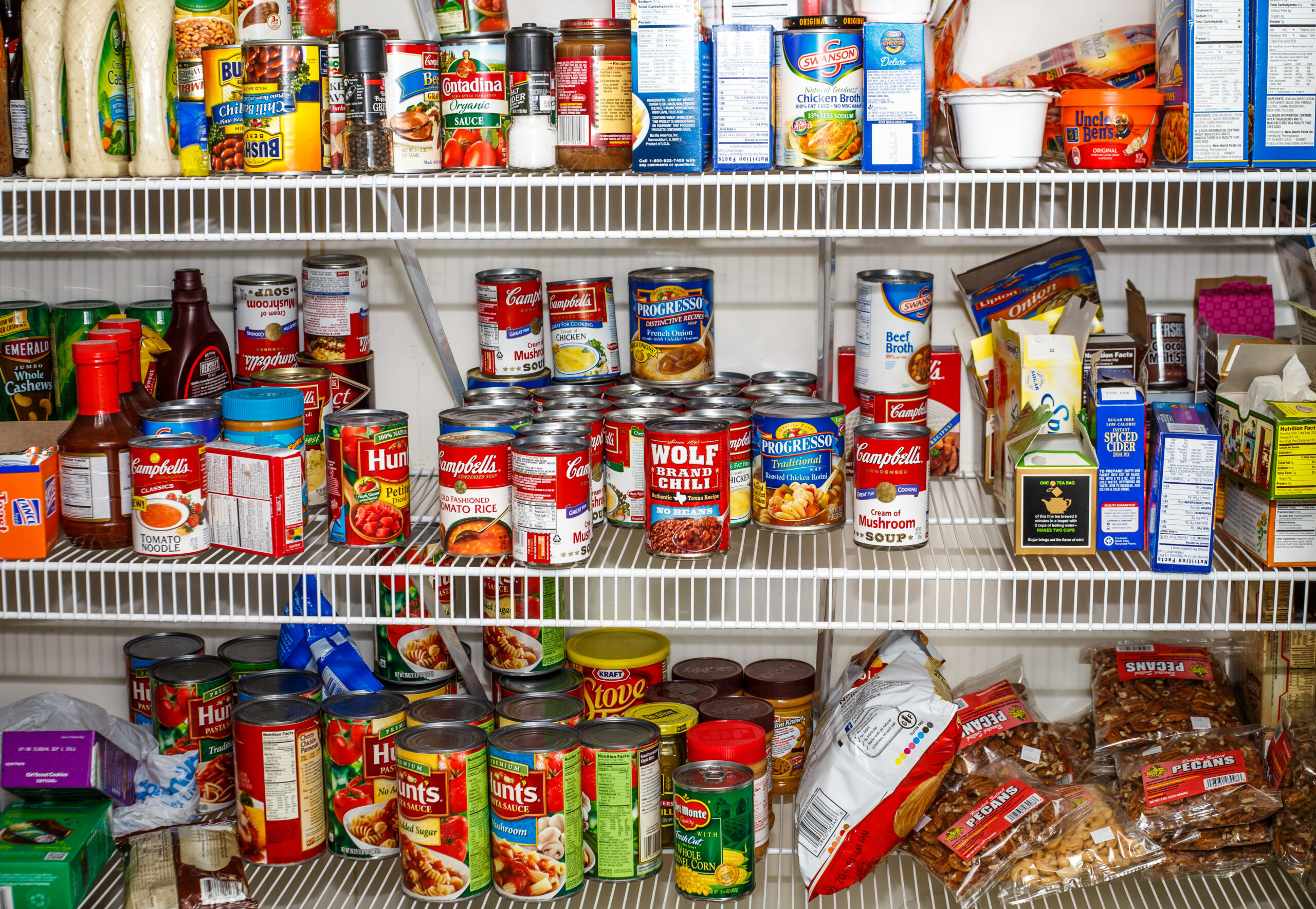
Access to Campus Food Pantry Directly Improves Students’ Health
- June 21, 2022
Mitigating food insecurity through student use of a campus food pantry has positive mental and physical health effects.

Vast Majority of Americans Overestimate Diet Quality
- June 20, 2022
The incorrect assessment of diet quality proves that adults need proper education around what a healthy diet consists of.

Americans Think They Eat Healthier Than They Really Do
- June 14, 2022
Many people think they make healthy food choices, but they may be viewing their diet through rose-colored glasses.

Do Our Genes Determine What We Eat?
- June 14, 2022
Researchers show how our personal diet choices and cardiometabolic health could be significantly influenced by taste-related genes.

Obesity and Food Poverty Strategy ‘Disappointing’, Say Public Health Experts
- June 14, 2022
Is the government's strategy to reduce obesity and food poverty missing the mark?
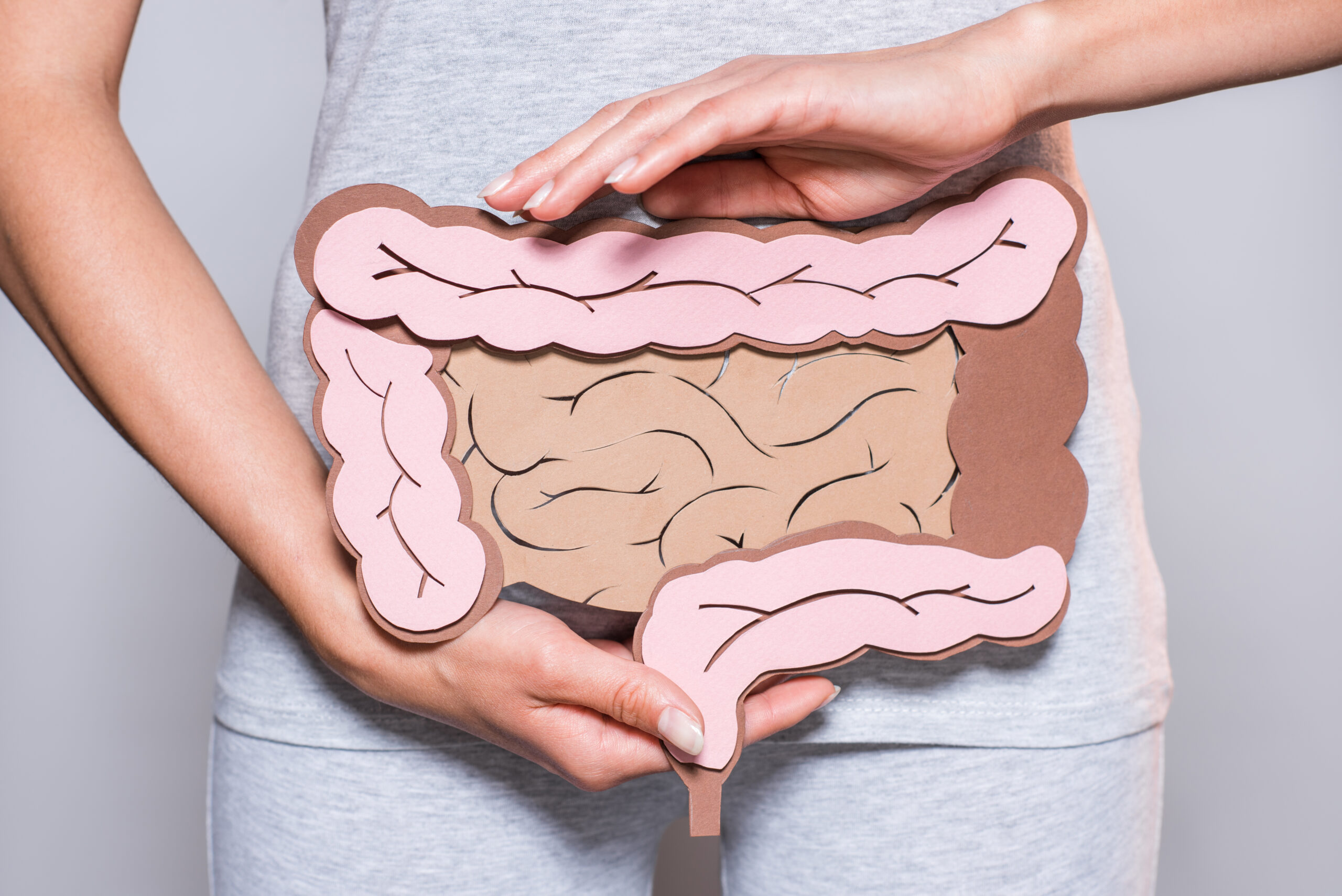
‘Good’ Bacteria To Tackle Depression
- June 9, 2022
Researchers explore how probiotics can be supportive in navigating depression, specifically depression.

If You’re Supposed to Eat 3 Meals a Day, Why Is It So Hard?
- June 11, 2022
Less and Less Americans are Eating Three Square Meals a Day. Does it Really Matter?

Large Study Reveals Stark Changes in Brain Structure for People with Anorexia
- June 7, 2022
New study showcases significant differences in grey matter for those who are diagnosed with anorexia nervosa.

Gut Health & Anxiety: How The Two Are Linked
- June 7, 2022
Explore the role anxiety plays in gut health, and what you can do to keep the two working harmoniously.

An Intriguing Connection Between Diet, Eye Health, and Lifespan
- June 7, 2022
Does the eye play a role in influencing lifespan? New study links circadian rhythm, diet, lifespan, eye health, and aging.

Brain’s Wiring, Not Lack of Willpower, May Drive Obesity: Study
- June 6, 2022
Explore the role brain circuitry plays in regards to obesity, and look at new approaches we can take to curb overeating.

The Best Probiotic-Rich Foods to Eat, According to an RD
- June 7, 2022
Discover how to harness probiotic-rich foods to improve not only the environment of your gut, but your physical and mental health as well.

Where to begin when treating patients with obesity, diabetes and depression
- June 1, 2022
When treating a patient with obesity, diabetes, and depression, it can be difficult to know which concern to address first.

Rising Food Prices Will Make Obesity Rates Worse, Not Better
- June 1, 2022
When faced with food insecurity, studies show that people gravitate toward cheap, energy-dense meals that are bad for their health.

Have Anxiety? Here’s What Your Gut Has to Do With It
- May 27, 2022
Your microbiome may be an important factor in your mental health. Consider these strategies to take charge of your anxiety.

Improving Self-Control Preserves Weight Loss Results
- May 25, 2022
Researchers may have found an alternative to sustainable weight loss that helps by improving the management of food and satiety responses.

Diet Quality Decreased for US Seniors From 2001 to 2018
- March 11, 2022
From 2001 to 2018, there was a decrease in dietary quality among older adults in the United States.

Study Links Junk-Food Diet to Tired Truckers, Dangerous Driving Behaviors
- July 19, 2021
A regular diet of junk food may play a role in unsafe driving actions among commercial motor vehicle drivers by contributing to fatigue.

People choose Healthier Food When With Outsiders For Fear of Being Negatively Judged
- May 12, 2022
New research finds that the presence of individuals from different friendship/social groups plays a role in consumers' food choices.
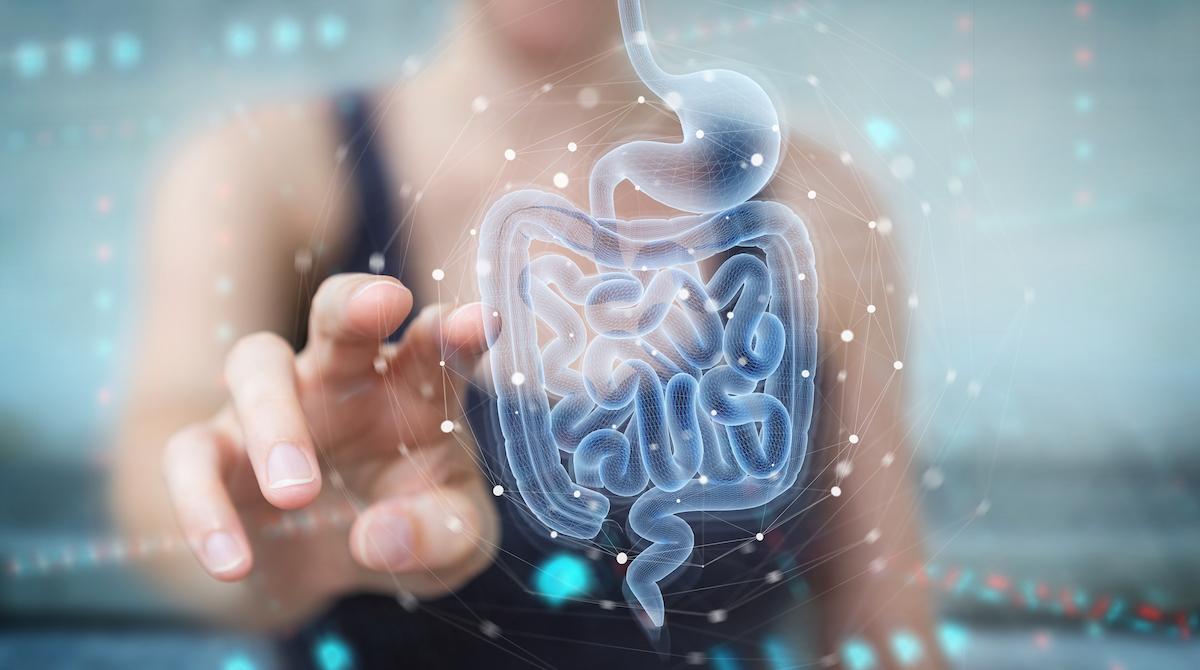
Relationship Between Amino Acid and Depression, Depending on the Microbiota
- May 10, 2022
Researchers found an association between the consumption of a proline-rich diet with a greater tendency to develop depression.

A Better Diet Helps Beat Depression in Young Men
- May 9, 2022
This is the first randomized clinical trial to assess the impact of a Mediterranean diet on the symptoms of depression in young men.

Supplementation in Undernourished Infants May Reduce Mental Distress
- April 28, 2022
This study examined relationship between protein/energy supplement in infants and mental distress later as adults.

Nature Relatedness Linked with Better Dietary Intake
- April 26, 2022
Researchers investigated how feeling connected with the natural world benefits dietary diversity and fruit and vegetable intake.

Intense Exercise Could Help to Gain Control Over Cravings
- April 21, 2022
This study may indicate that exercise can shore up restraint when it comes to certain foods

Dietary Intervention for Mood Variability in Bipolar Disorder
- April 21, 2022
Researchers performed a RTC of a high n-3, low n-6 polyunsaturated fatty acid diet in bipolar disorder

Why People Get Hangry, According To Science
- October 1, 2021
Being angry when you’re hungry (hangry) isn’t a character flaw – it’s a scientific phenomenon

Got Food Cravings? What’s Living in Your Gut May Be Responsible
- April 21, 2022
Microbes in the gut influence what an animal chooses to eat. Altering the microbiome resulted in changes to preferred diets
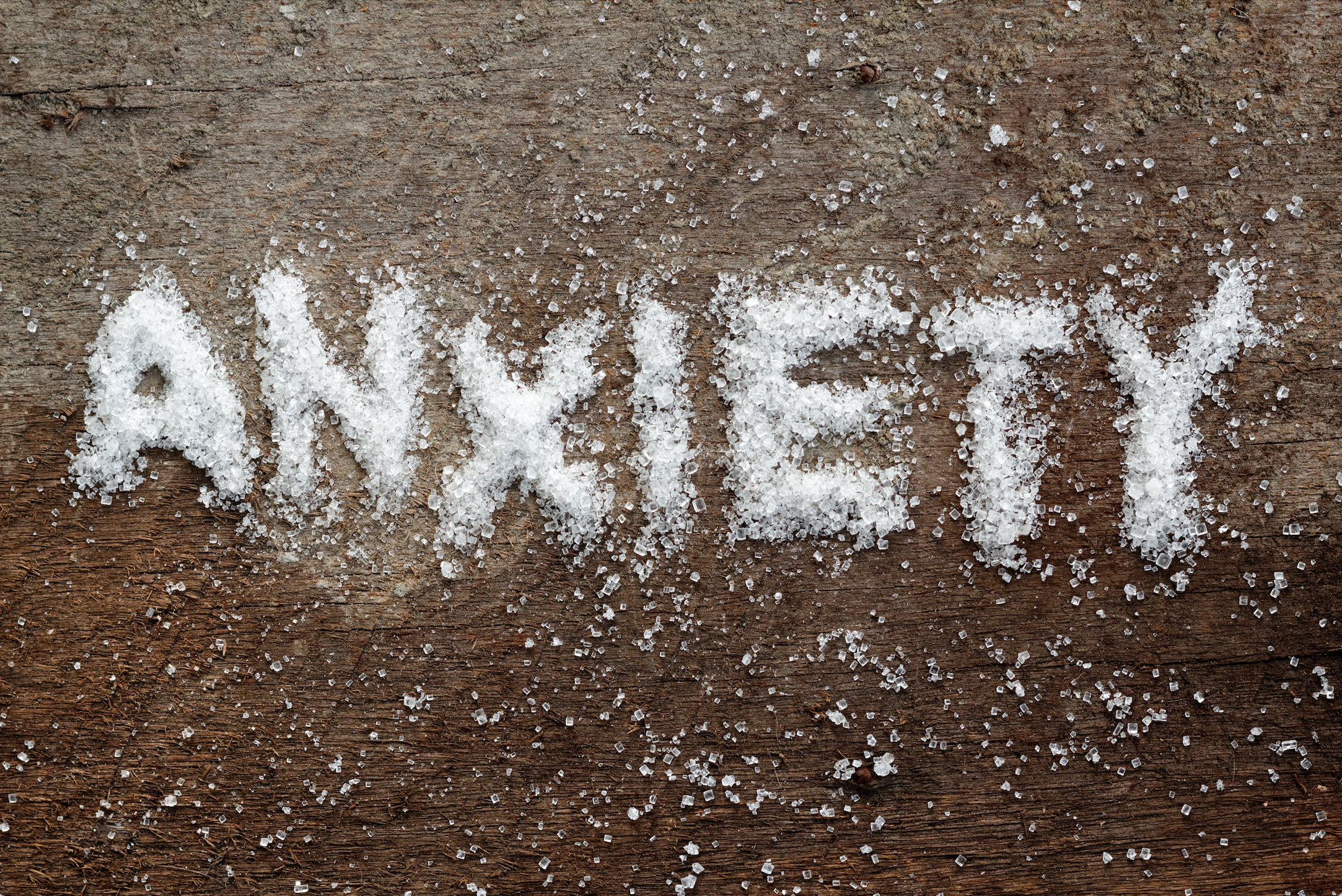
Can Sugar Cause Anxiety? Here Are the Sweet Deets
- April 19, 2022
Eating a ton of refined sugar on the reg can increase your risk of developing anxiety and other mood concerns

Happiness Is a Salad: Strong Correlations Between What We Eat and How We Feel
- April 17, 2022
There are strong correlations between what we eat and how we feel, and healthy food is happy food

Widely Used Food Additive Affects the Human Gut Microbiota
- April 5, 2022
New research now shows that xanthan gum affects our gut microbiota

This Popular Food May Be the Reason You’re Always Tired, New Study Suggests
- April 9, 2022
A new study finds that eating processed meat is linked with mental and physical fatigue

Diet Can Support the Prevention and Treatment of Mental Health Disorders
- April 7, 2022
Evidence exists showing the association between nutrition & mental well-being, preliminary evidence for depression

New Evidence on Alterations of Neuronal Activity That Drive Food Cravings During Pregnancy
- April 4, 2022
Frequent consumption of tasty/high calorie foods from cravings can have negative effects on baby's health
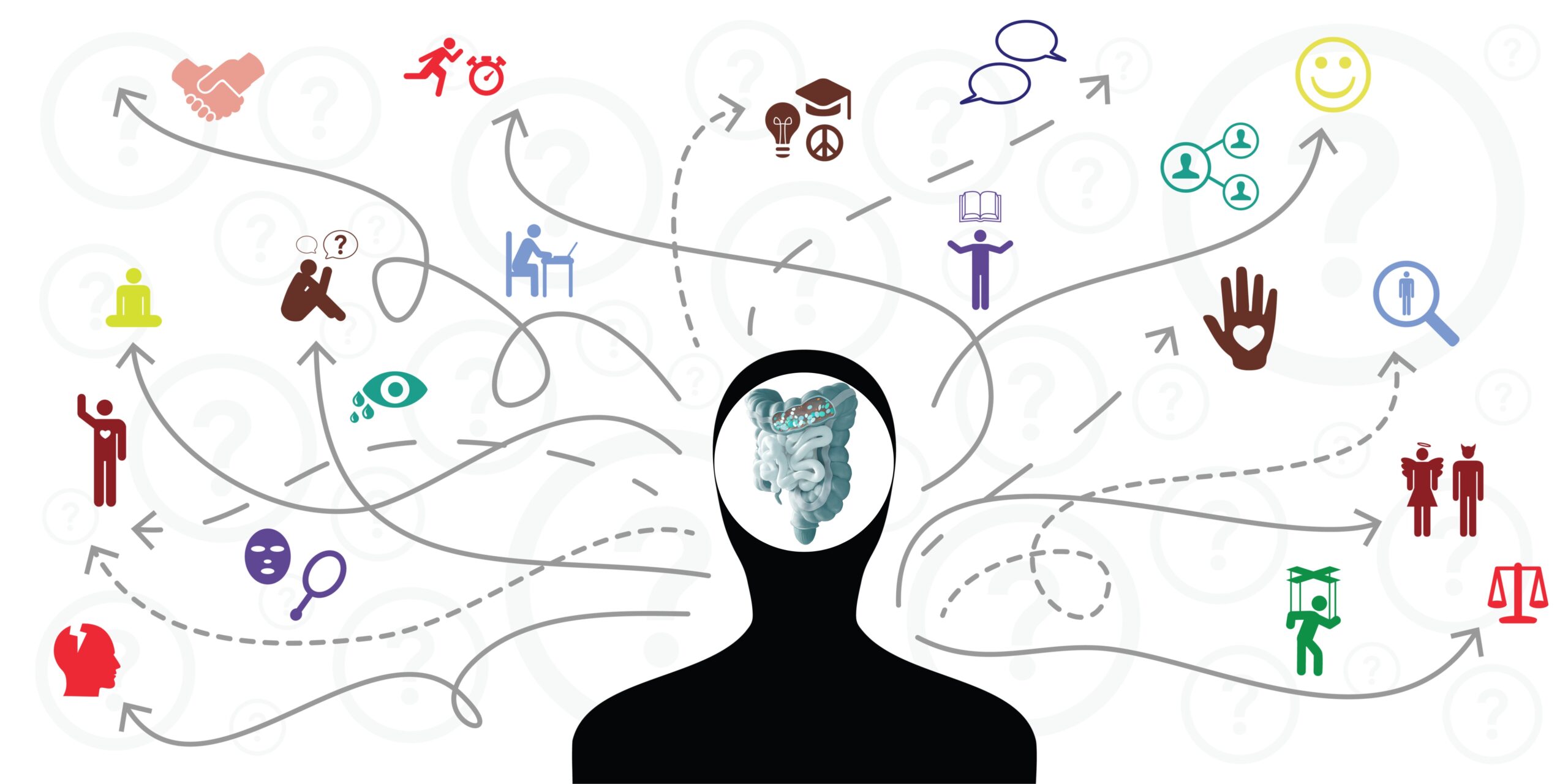
The Gut Microbiome and Personality: Can Food Change Who You Are?
- April 1, 2022
Researchers uncover links between the gut microbiome and personality traits – so, can nutrition change our psychology?

Virtual Program Focused on Nutrition Therapy After Brain Injury
- March 8, 2022
Center of excellence within the Department of Defense hosted a virtual program focused on nutrition therapy after brain injury

Can Zinc Help with Anxiety and Depression?
- March 28, 2022
Zinc has many health benefits, including helping to reduce symptoms of anxiety and depression for some people

Chef’s Kiss: Research Shows Healthy Home Cooking Equals a Healthy Mind
- March 20, 2022
New research has found being confident in the kitchen is not only good for your taste buds: it’s also good for your mental health

Five Ways Food Can Lead to Self-Fulfillment
- March 21, 2022
Psychologists have often studied the negative aspects of appetite, but food is linked to some of our most positive experiences

‘Food’ and ‘Mood’ Go Together. What You Eat Impacts Your Mental Health
- March 20, 2022
Irregular eating contributes to poor mental health, including depression and anxiety, as well cardio-metabolic diseases and weight gain.
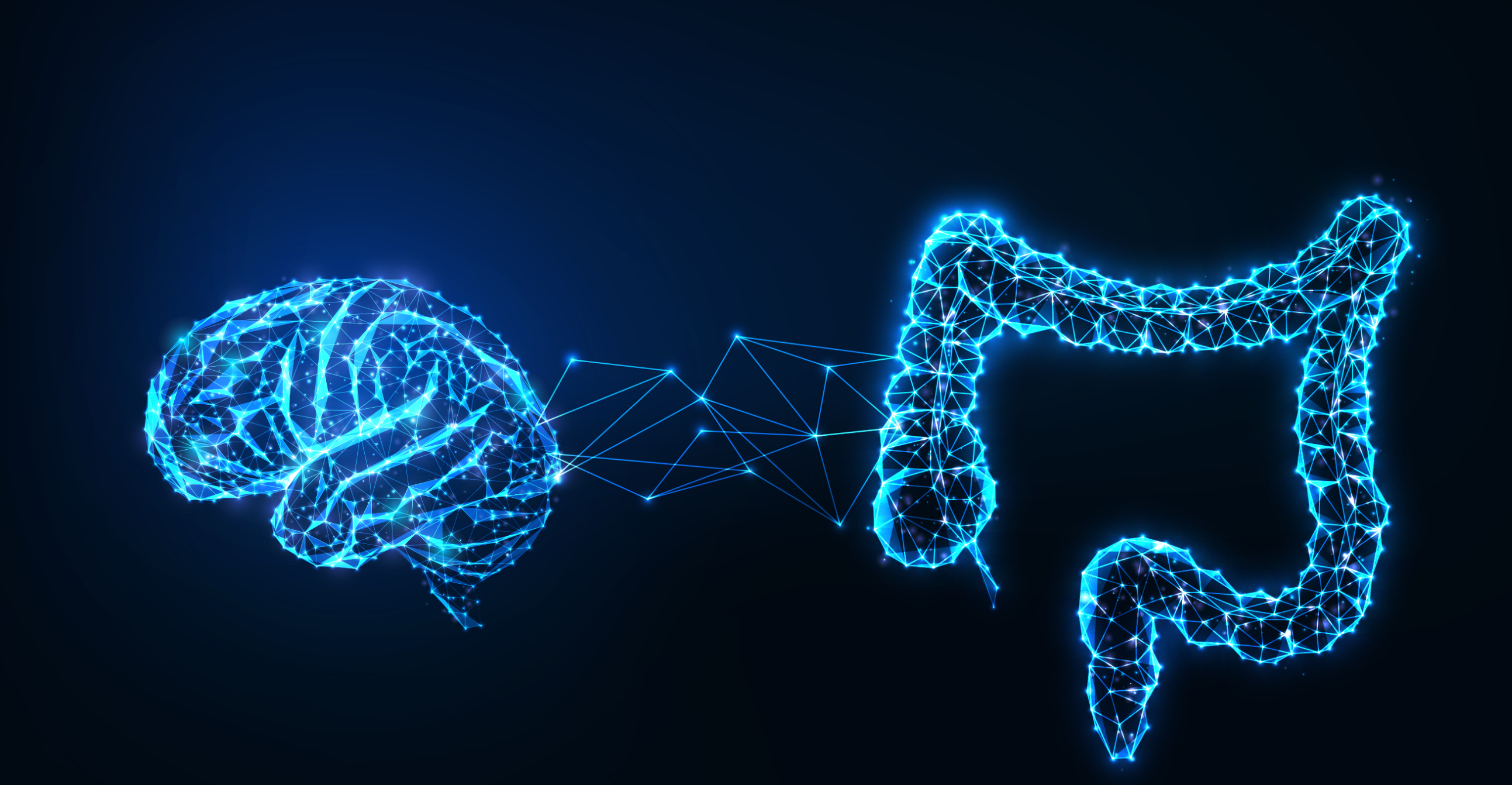
The Secret to Stopping Alzheimer’s is in Your Gut, Not Brain, Experts Say
- March 2, 2022
Our gut bacteria can influence inflammation, which is a key contributor to Alzheimer's

The Surprising Links Between What You Eat and How Well you Sleep
- February 25, 2021
Not getting enough sleep can lead to a vicious circle of over-eating and further sleep deprivation

Study Finds Link Between Chronic Pain and Disrupted Eating
- February 6, 2022
Knowing more about the relationship between chronic pain and eating behavior can help pain
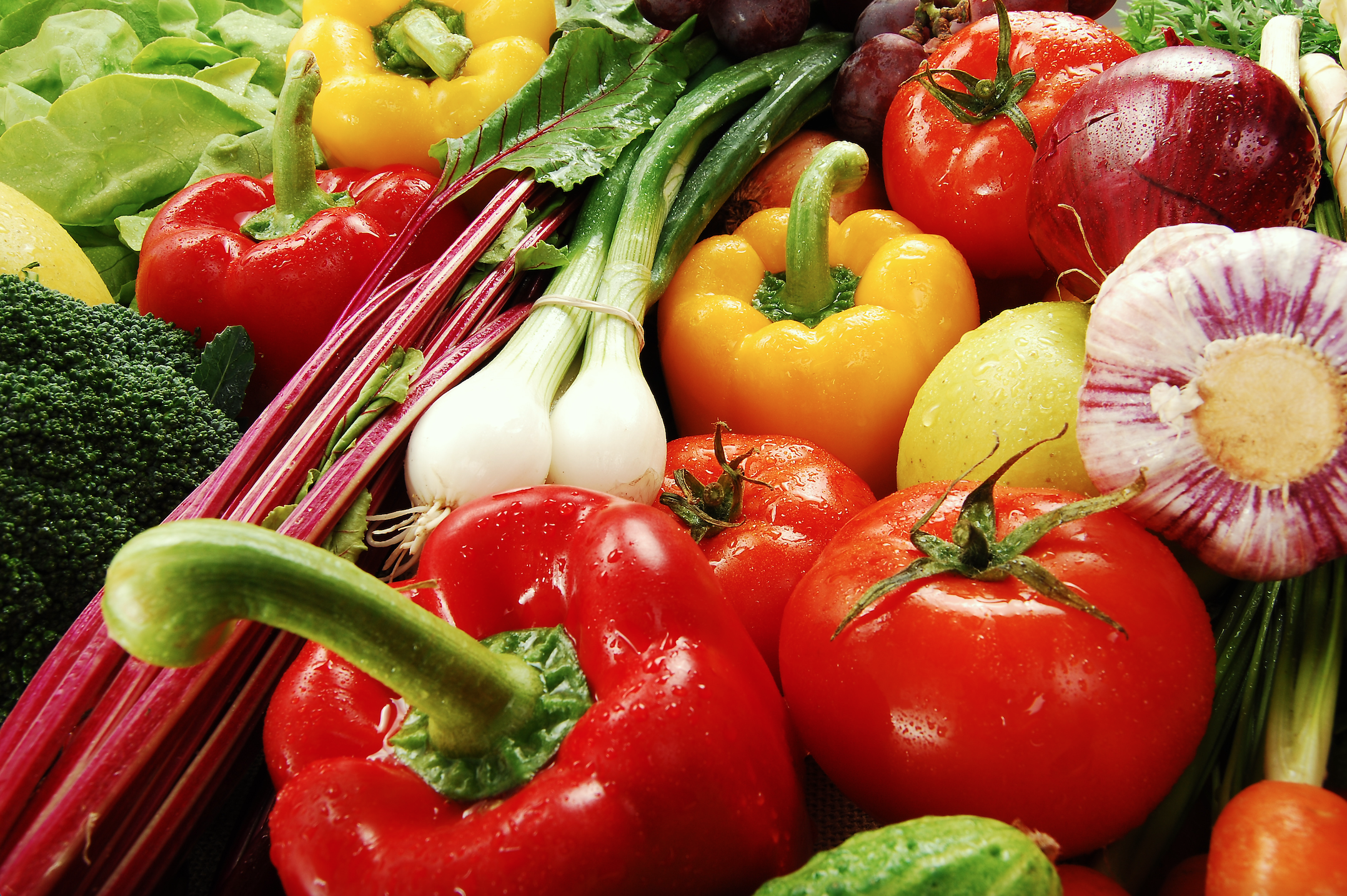
Can Flavonoids Help Fend Off Forgetfulness?
- September 17, 2021
A large study published in Neurology suggests that flavonoids may protect cognition

How Do Emotions Trigger Cravings?
- February 25, 2020
Researchers find that sadness, more than other negative emotions, can trigger cravings to smoke

Dietary Changes May Extend Life Span by up to 10 years
- February 8, 2022
Certain dietary changes can extend one’s life expectancy, a new study confirms

New Clues in the Brain Linking Pain and Food
- February 11, 2022
Circuitry in the brain responsible for motivation and pleasure is impacted when someone experiences pain
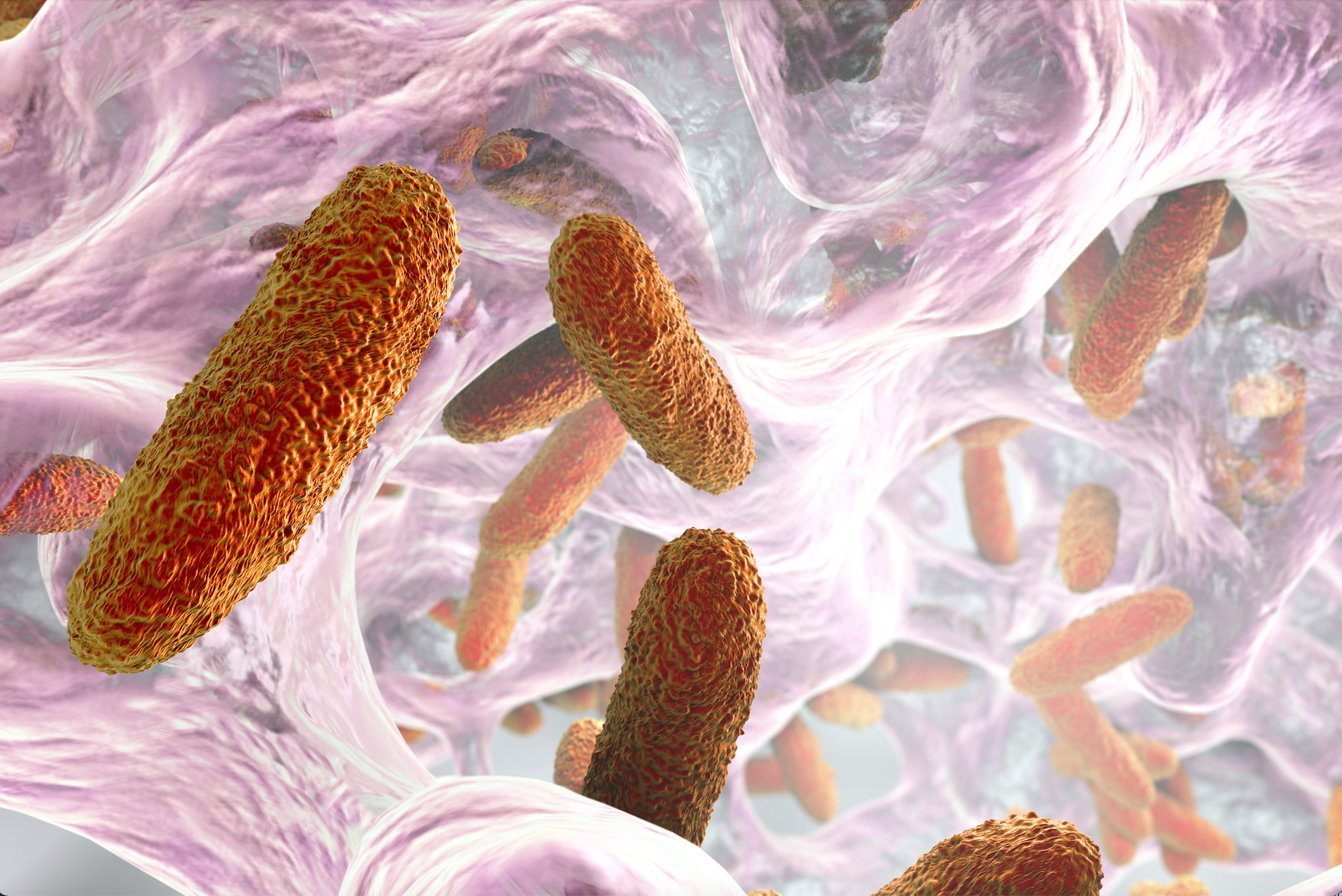
“Major” New Study Reveals Cause of Depression For Many
- February 27, 2024
Two gut bacteria, Morganella and Klebsiella, may be connected to depression

Changing Your Diet Could Add Up to a Decade to Life Expectancy
- February 8, 2022
Young adults could add over a decade to their life expectancy by switching from a Western diet

Poor Food in Prison and Jails Can Cause or Worsen Eating and Health Problems
- February 1, 2022
When food is used as punishment, people who once served time need intentional help to overcome the trauma

Are You a ‘Zombie Eater’? It Could Be Bad for Your Health
- July 16, 2019
Distracted diners who stare at screens tend to eat more calories and choose fattier foods

Mental Health Meal Prep: 9 Recipes for Depression Symptoms
- January 19, 2022
Eating for your mental health doesn’t have to be complicated. These low-prep recipes are for the days when making a meal feels like too much
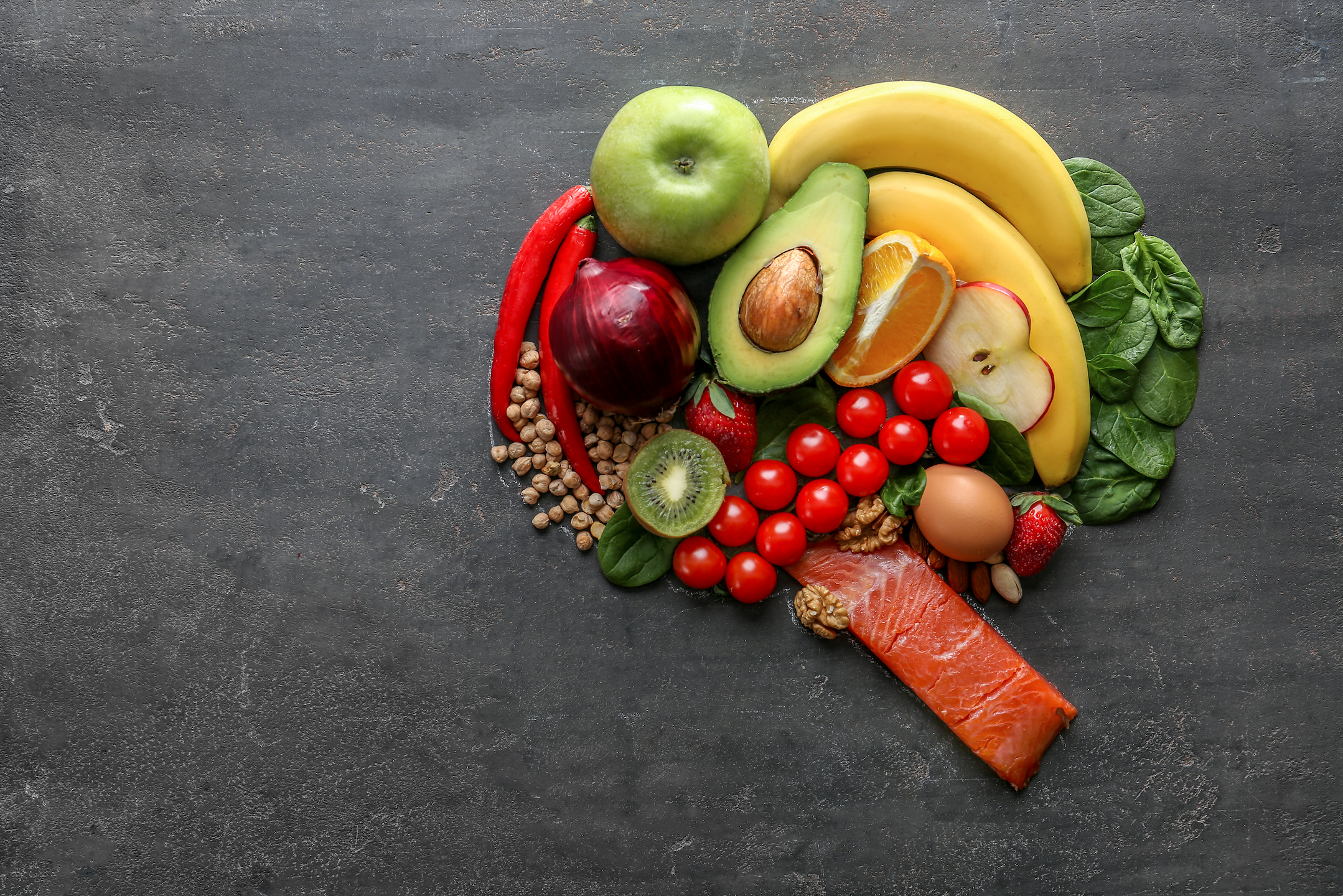
What is Nutritional Psychiatry?
- January 18, 2022
Nutritional psychiatry is the practice of using food and food supplements as alternative treatments for mental health disorders

Craving Sweets? You Might Need More Sleep
- January 15, 2021
Inadequate sleep changes what, how much, and when we eat

How Does Excess Sugar Affect the Developing Brain Throughout Childhood
- January 11, 2022
Too much sugar can actually be detrimental to the normal growth of the brain

#FoodPorn: People are More Attracted to Social Media Content Showcasing Fatty Foods
- May 11, 2021
Not all nutrients are created equal when it comes to engagement

Expert Insights: How Exercise Can Curb Your Junk Food Craving
- January 4, 2022
Research suggests physical activity can help promote better diet

There’s Something About Eating Mushrooms That Seems to Lower Depression Risk
- January 1, 2022
Analysis of people who eat mushrooms suggests they have a lower risk of developing depression
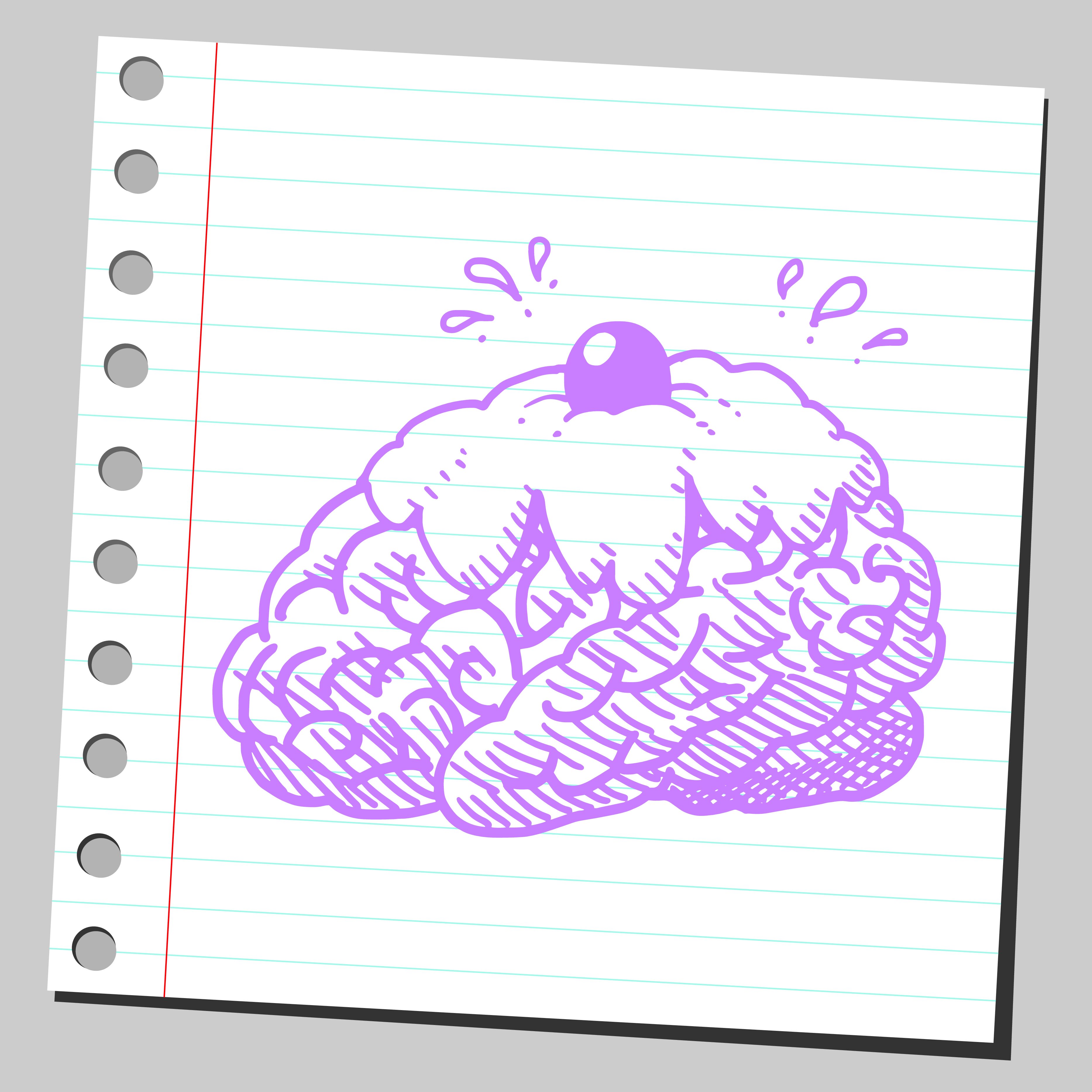
High-Sucrose Diet During Adolescence May Contribute to Psychiatric Disorders
- December 28, 2021
Excessive intake of simple sugar at puberty could be a risk factor of psychiatric disorders

The Neuroscience of Emotional Eating
- December 29, 2021
In modern times, we’re often reared from a young age to use food to make ourselves feel better

Childhood Obesity Associated With Mother’s Unhealthy Diet Before Pregnancy
- December 23, 2021
Study found children aged eight or nine were more likely to be obese if their mother had a poor diet during – and before – pregnancy

This Subtle Menu Change Can Help You Order Healthier, New Study Says
- December 25, 2021
The order in which the food is presented on a menu may make a difference

Four Weeks of Prebiotic Supplements Reduces Sugar Consumption, Study Finds
Young women who took four weeks of prebiotic supplements made healthier food choices and consumed less sugar

Diet Soda May Actually Trigger Food Cravings
Diet drinks containing artificial sweetener may actually trigger more intense food cravings than sugar-sweetened beverages

Prebiotics Can Improve Brain Function by Balancing Gut Microbes
- December 15, 2021
A balanced gut has a diverse microbiota, reducing inflammation and disease
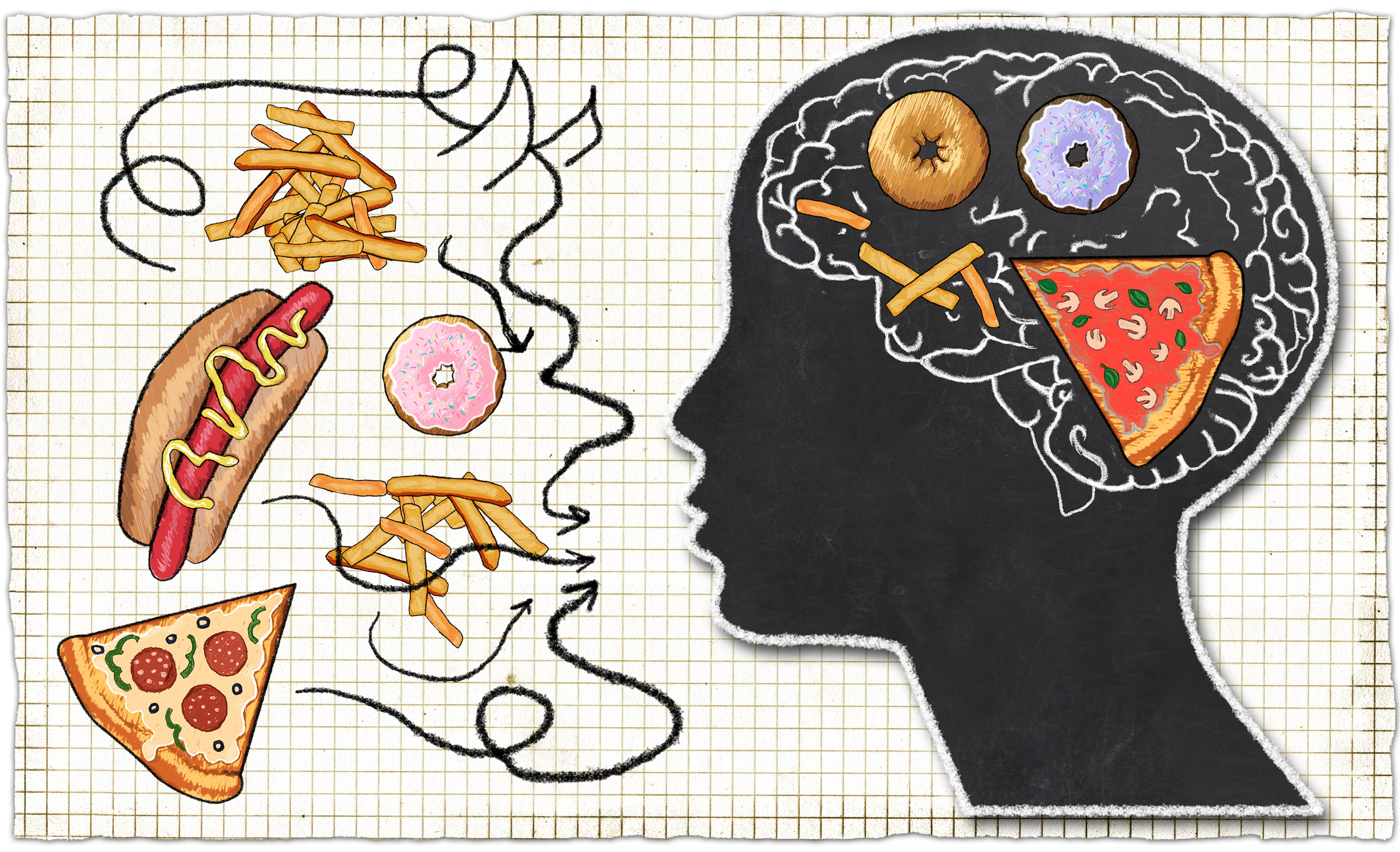
Junk Food and The Brain: How Modern Diets May Contribute to Angry Rhetoric
- January 2, 2021
Ultra-processed diets could be playing a role in the escalation of angry rhetoric

Millions Are Suffering From Diet-Related Diseases. What Number Will Make Us Pay Attention?
- December 1, 2021
No number large enough to provoke action when it comes to conveying the magnitude of human suffering caused by diet-related diseases

Concerned About Overeating? Here’s What You Need to Know About Food Addiction
- November 25, 2021
Addictive eating involves intense cravings unrelated to hunger, tolerance for large quantities of food, and feelings of withdrawal.

Minnesota Researchers Uncover Why Nicotine Withdrawal Causes Junk Food Cravings
- November 22, 2021
Research demonstrates a clear connection between nicotine withdrawal and the desire to consume high-fat, high-calorie junk foods

Mushroom Consumption May Lower Risk of Depression
- October 11, 2021
Data from 24,000 shows those eating mushrooms have lower odds of depression

Vegetarian Diet Quality Influences Mental Health
- November 16, 2021
Plant-eaters with a taste for processed foods are more susceptible to depression

Improving Anorexia Care Starts with Nutrition
- November 9, 2021
Should Supplementation Be Step One in Anorexia Care?

Here’s How Dietitians Can Help Our Mental Wellbeing
- November 4, 2021
Accredited Practising Dietitians (APD) are pushing to be officially recognised as mental health practitioners.

Can Eating Alone Be Bad For Your Heart?
- November 3, 2021
A new study suggests that eating alone may contribute to an increased risk of heart disease in older women

Junk Food Diet May Boost Risk of Dangerous Driving in Truck Drivers
- June 15, 2021
A junk food diet may increase the risk of dangerous driving among truck drivers by boosting fatigue

Food Coma: What to Know About Postprandial Somnolence
- October 28, 2021
"Food Coma": Causes, symptoms, and prevention

Ultraprocessed Foods Harm Mental Health | Higher-Than-Average Sales in Candy Segment
- October 27, 2021
Ultraprocessed foods associated with a 22% increased risk for future depression
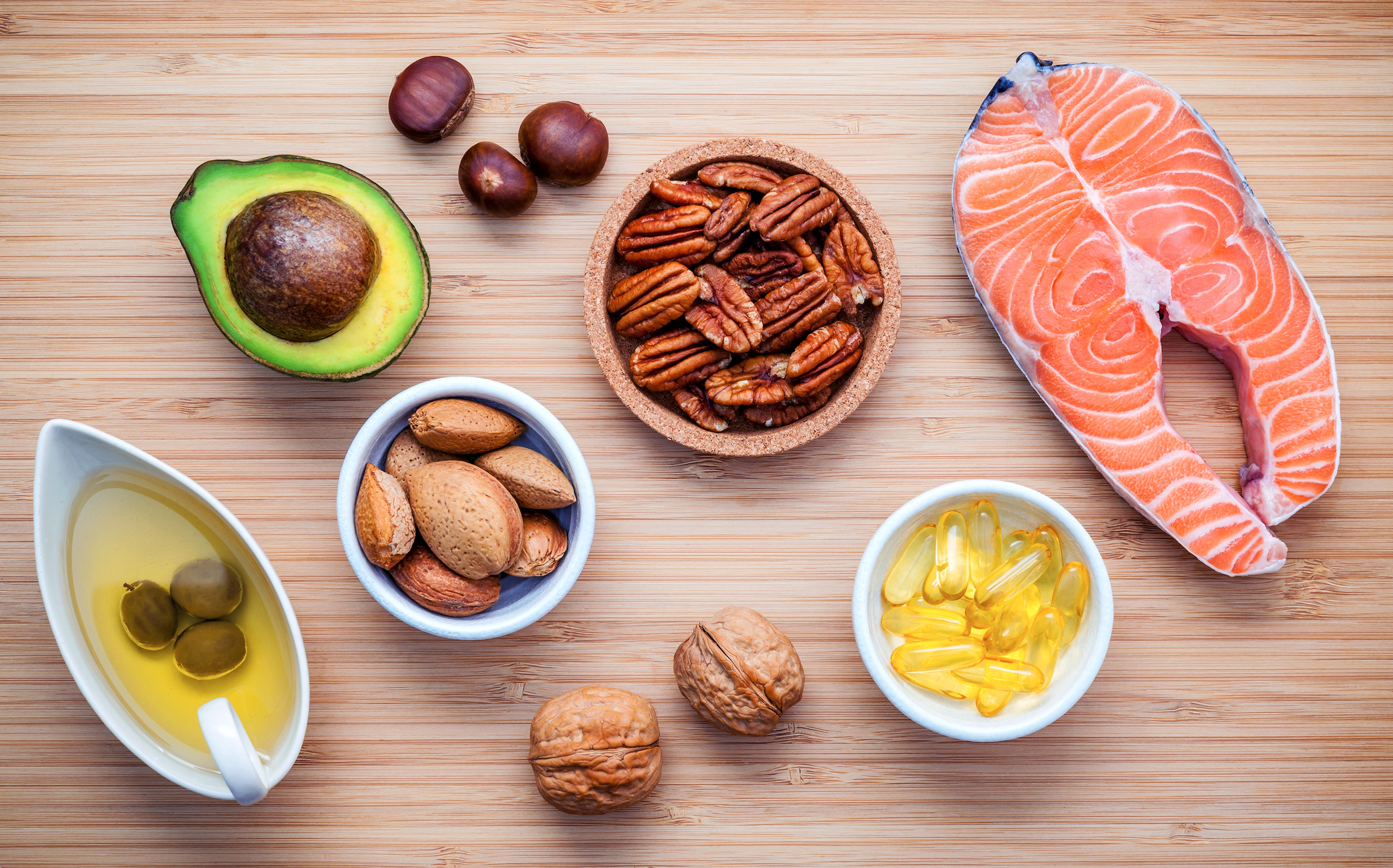
Processed Foods Impair Memory — Can Omega-3 Help?
- October 24, 2021
Scientists examine whether DHA protects against carbohydrate-related effects on cognition and neuroinflammation

Diversifying the Psychology Pipeline
- October 1, 2021
Every one of us must aid the effort to create a more diverse profession and discipline

Eating More Fruit and Veg Linked to Better Mental Wellbeing Among Children
- September 28, 2021
Children who eat a better diet, packed with fruit and vegetables, have better mental wellbeing

Do Color-Coded Food Labels Improve Dietary Choices?
- October 9, 2021
Another way in which perception influences the Diet-Mental Health Relationship

Feeling confinement in the gut: Microbiome alterations common in astronauts
- April 23, 2021
Changes occurring in the gut microbiota from prolonged confinement

Do Microbes Make Us Social?
- September 20, 2021
In an effort to extend their territory, microbes may push us to socialize
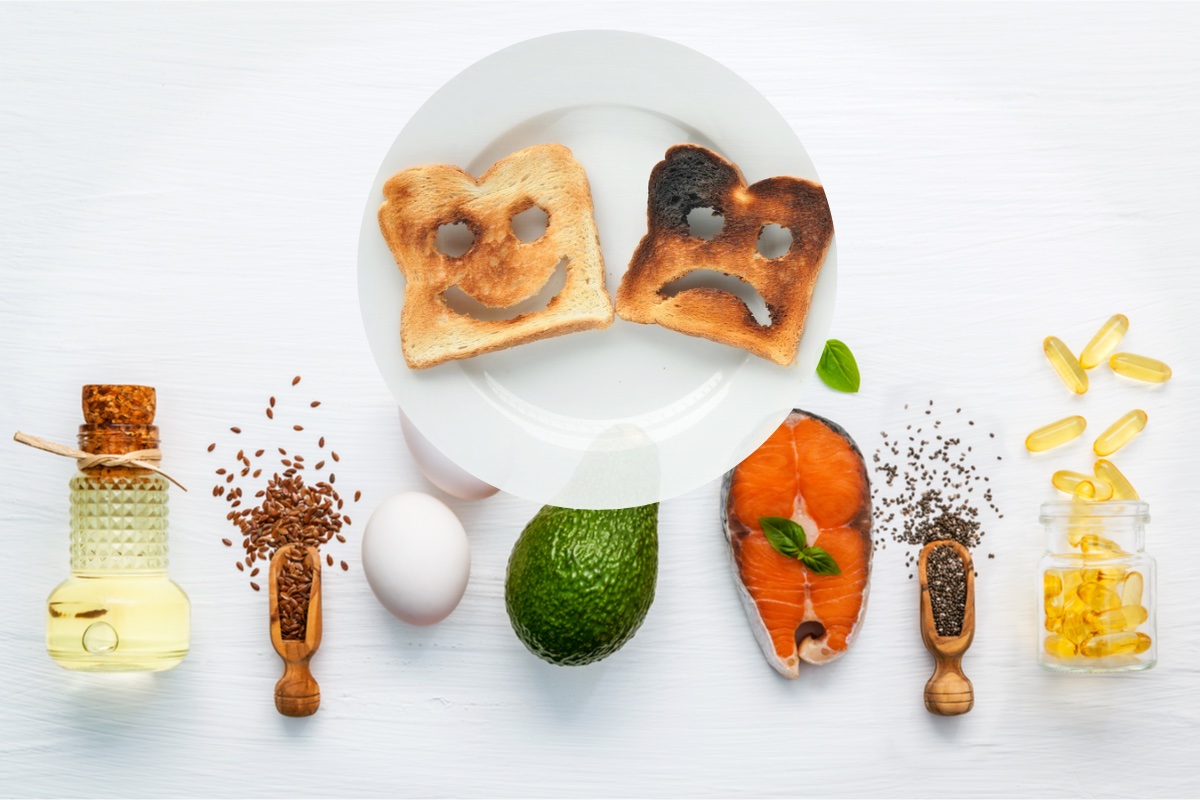
Adjusting fatty acid intake may help with mood variability in bipolar disorders
- September 23, 2021
A diet designed to alter levels of specific fatty acids may help patients have less variability in mood

Human Microbiome: Diet, Precision Medicine, and Well-being
- September 14, 2021
Scientists are now beginning to understand how microbes contribute to well-being

Loneliness Impacts Nutrition for Durham Seniors
- September 8, 2021
Canadian seniors who feel lonely consume 111 more servings of fat/year than not-lonely seniors

Eating Certain Foods Can Add — or Subtract — Hours From Your Life, Study Finds
- September 1, 2021
Study breaks down foods into three zones defined by how many minutes of health were gained or lost as a result of including them in your diet
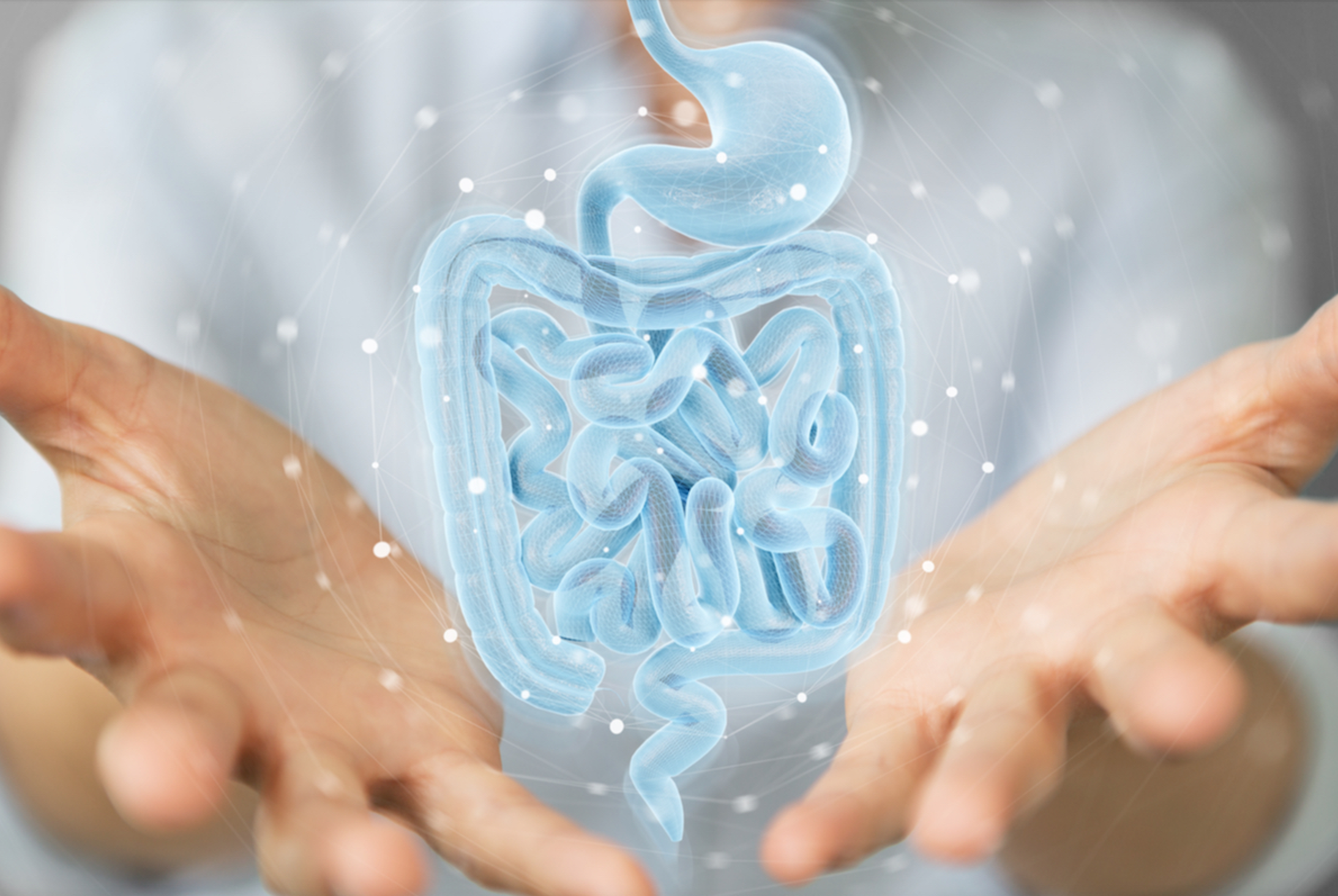
New Paper Reviews Gut Microbiome Health for Fighting Depression During COVID
- August 24, 2021
Rebalancing the gut microbiome may be a promising step toward easing depression

Frustrated With Dieting? The Science Behind Your Frustration and What To Do About It
- August 19, 2021
Looking into history sheds insight into why dieting sets up so much struggle

What Happens to Your Brain When You Give Up Sugar
- August 18, 2021
Cutting sugar out of your diet can be difficult and trigger a range of unpleasant symptoms

Are Vegetarians More Depressed Than Non-Vegetarians?
- August 8, 2021
This meta-analysis on depression in vegetarians and non-vegetarians found that on average, vegetarians had a more depressed mood

Foods High in Flavonoids May Lower Risk of Cognitive Decline
- July 28, 2021
New study shows that at least 1/2 serving/day of foods high in flavonoids have a 20% lower risk of cognitive decline
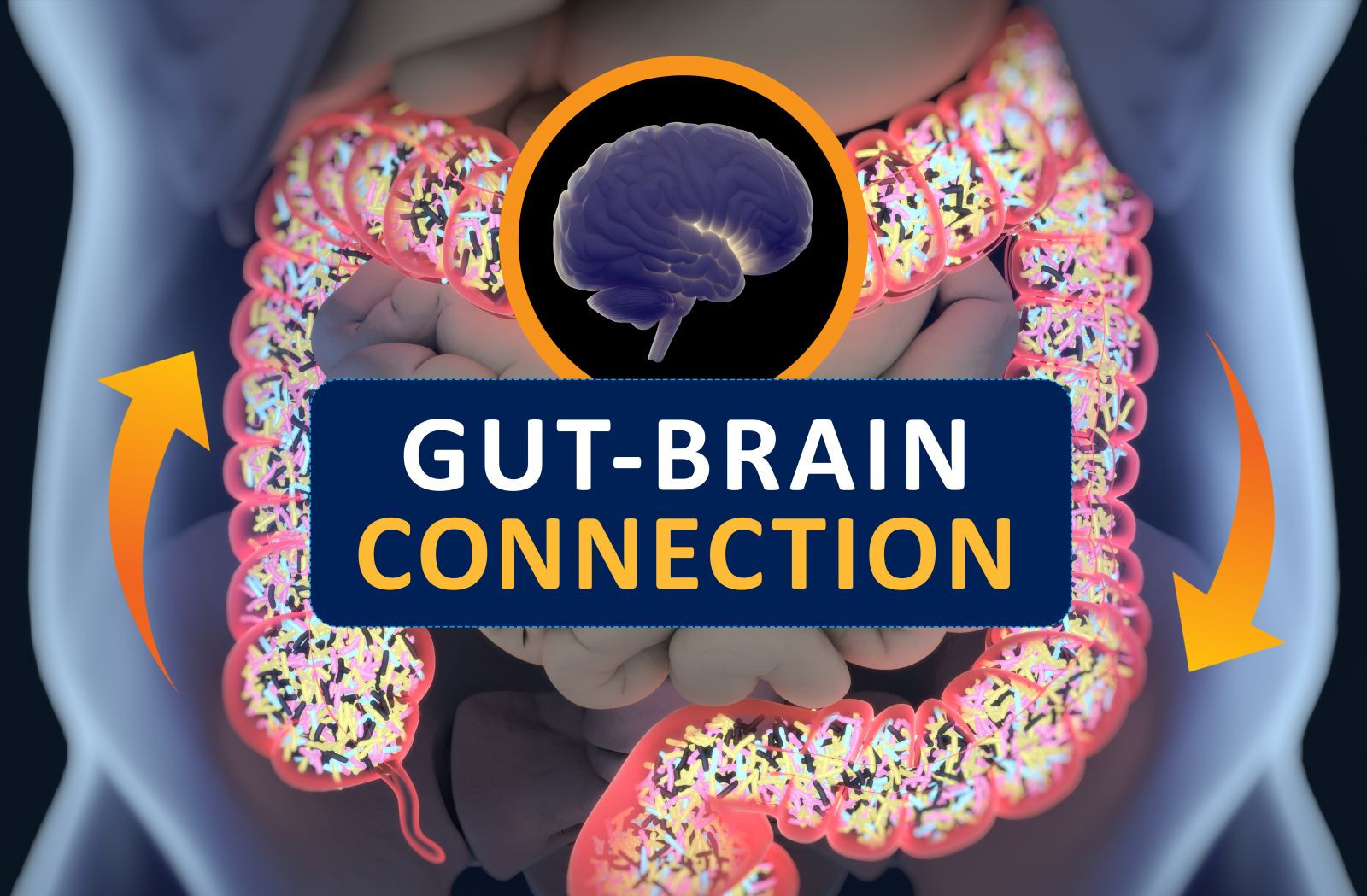
The Gut-Brain Connection Extends Beyond The Digestive System
- April 19, 2021
Your gut-brain connection could be contributing to more than just your digestive issues.

A Fermented-Food Diet Increases Microbiome Diversity
- July 12, 2021
A diet rich in fermented foods enhances the diversity of gut microbes and decreases molecular signs of inflammation

Sugar Overload May Be a Recipe for Long-Term Problems
- June 8, 2021
Children who consume too much sugar could be at greater risk of becoming obese, hyperactive, and cognitively impaired

Food Insecurity Linked to Gun Violence. Urban Farms in St. Louis Work on a Solution
- June 27, 2021
Nearly 70% of St. Louis homicides last year occurred in low-income areas with no access to a grocery store or supermarket

Improving People’s Relationship With Food: Focus on Emotions Is Key
- June 17, 2021
People living with obesity who attended a non-judgemental and personalized lifestyle modification program improved their cardiovascular and mental health during just 10 weeks, according to a study

Women’s mental health has higher association with dietary factors
- June 9, 2021
Women's mental health likely has a higher association with dietary factors than men's
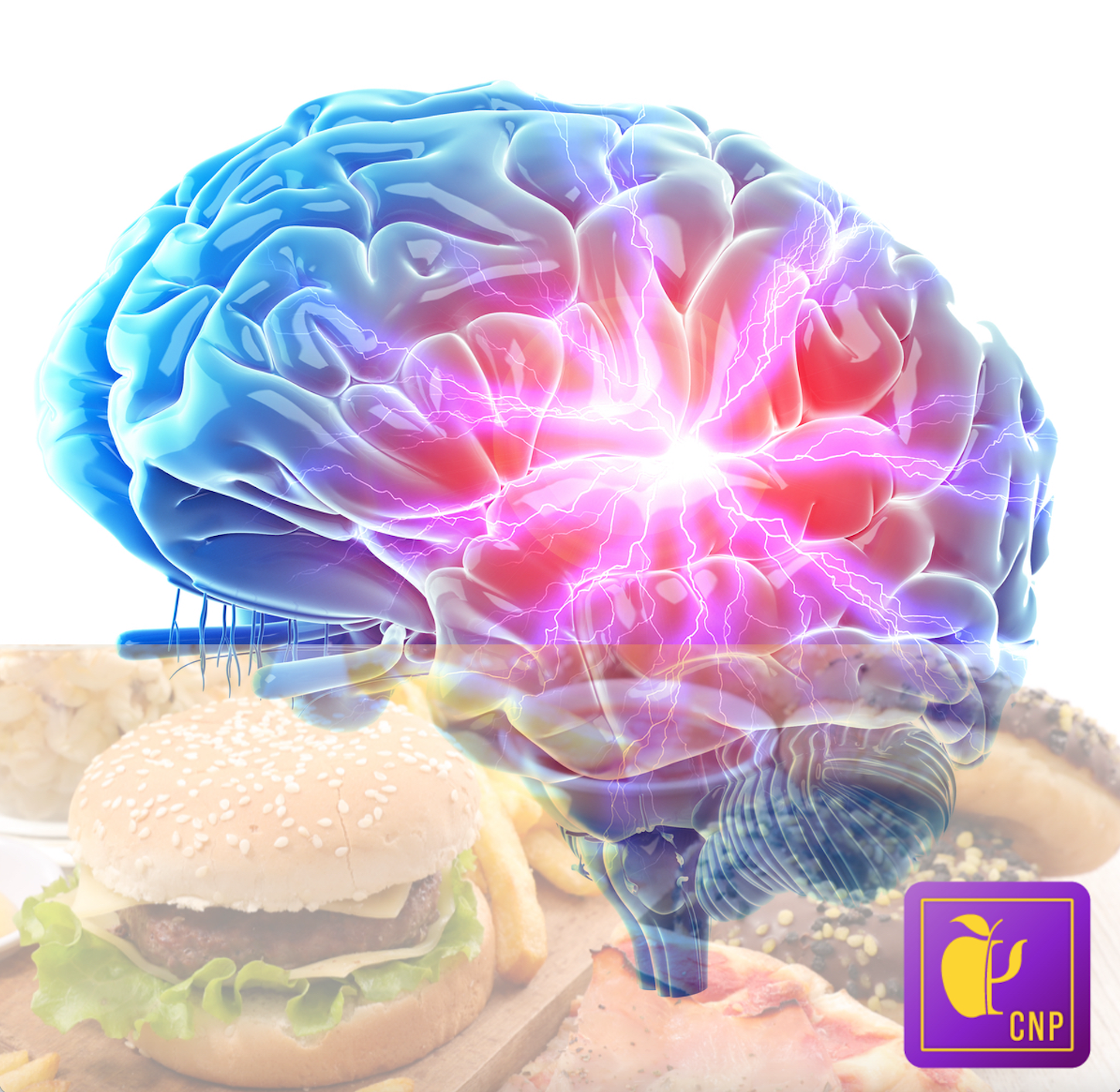
The Worst Diet for Depression
- May 25, 2021
Research found significant increase in depression and distress for those eating an inflammatory diet

Eating More Fruit and Vegetables Linked to Less Stress, Study States
- May 13, 2021
Those who consumed more fruits and vegetables daily had lower stress levels than those who consumed less F&Vs daily

Nourishing Old Age: Royal Commission Into Aged Care Quality & Safety
- July 1, 2019
Lack of protein in the foods served at aged care centres increases risk of malnutrition. Research shows that improving the menu has pay offs

High Animal Products/Processed Foods/Alcohol/Sugar Linked with Gut Microbiome
- April 14, 2021
High dietary intake of animal products, processed foods, alcohol and sugar, support a gut microbiome that encourages inflammation

Sugar Not so Nice for Your Child’s Brain Development, Study Suggests
A new study shows sugar intake in childhood leads to learning and memory issues in adulthood

Hungry Seniors Need More Than Just Access to Food
- April 12, 2021
Older Americans grappling with health/cognitive declines and food insecurity

Late Night Snacks May Hurt Your Workplace Performance, Study Finds
Another study demonstrating diet's effects on workplace performance and behavior

Ultra-Processed Foods Delay Satiety, Increase Food Intake and Weight Gain
Eating highly processed foods could be associated with weight gain finds a new study

Negative Emotions Cause Stronger Appetite Responses in Emotional Eaters
Emotional eaters had a stronger appetite response and found food to be more pleasant when experiencing negative emotions compared to when they felt neutral emotions

Food Texture’s Influence on ‘Feeling Fuller Longer’
A new study says the next generation of 'health conscious' products should focus on food texture to enhance the feeling of being full

Experiences of Post-Traumatic Stress Disorder Linked to Nutritional Health
Canadians between the ages of 45 and 85, were less likely to exhibit PTSD if they consumed two-three fiber sources daily

Changing a Child’s Diet Might Help Prevent Mental Illness
New research suggests two factors closely linked with diet may be strong predictors of which children develop serious mental illness

Sugar is Not So Sweet For Mental Health
What's the link between high sugar intake and an increased risk of developing common mental disorders in men?

Can Eating a Mediterranean Diet Help Lessen the Physiological Effects of Stress?
Does diet play a role in regulating our fight or flight (stress) response?

Link Between Alzheimer’s Disease and Gut Microbiota is Confirmed
The correlation between the gut microbiota and neurodegenerative disorders characteristic of Alzheimer's disease is established

Could Excessive Sugar Intake Contribute to Aggressive Behaviors, ADHD, Bipolar Disorder?
New research on the role for fructose (a component of sugar) and uric acid (a fructose metabolite) in behavioral disorders

Nutrient Support and Exercise Intervention Improves Cognition in Airmen
An intervention of exercise and nutritional supplementation resulted improvements in many levels of cognitive functioning in airmen

How a Nutritionist Spends $50 a Week on Groceries — Here’s What I Buy (2020)
This Nutritionist is an expert in helping people plan quick and simple healthy meals and learning how to do so affordably

Berries and Fruits Prevent Against Alzheimer’s Disease
Dietary flavonoids from berries, apples, and other plant-based foods help protect against Alzheimer’s disease and related dementia

Eating More Fruits, Vegetables Boosts Psychological Well-Being in Just Two Weeks
New research finds that increasing fruit and vegetable consumption may improve psychological well-being in as little as 2 weeks

Food Supplements May Improve Brain Health in Low Income Countries
Giving nutritional supplements to young children in low income countries for around 6 months could improve their brain (cognitive) health

Is Healthy Eating Linked to Kids’ Happiness and Self-Esteem?
Healthy eating is associated with better self-esteem and fewer emotional and peer problems

For a Longer Life, Researchers Say Eat This Many Fruits and Veggies Per Day
The greatest benefits come from eating 10 servings of fruits and veggies (FV) a day
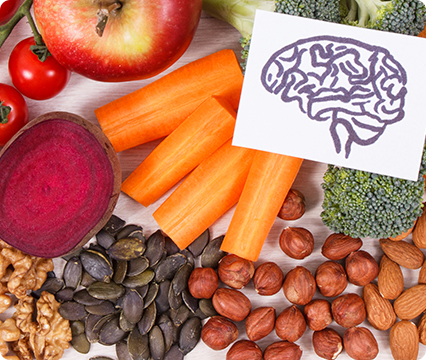
Does Eating Fruits and Vegetables Help Your Mental Health?
Can fruits and veggies help offset the negative psychological impacts of divorce? Of unemployment?

Yes We Can: Eating Healthy on a Limited Budget
People living in low-income households can afford to eat healthily.

Negative Impact of Sugar on the Brain
A quick primer on the cognitive, addictive and mood effects of sugar

Scientists Reveal the Relationship Between Sugar and Cancer
Evidence for a positive correlation between sugar and cancer, which may have far-reaching impacts on diets for cancer patients
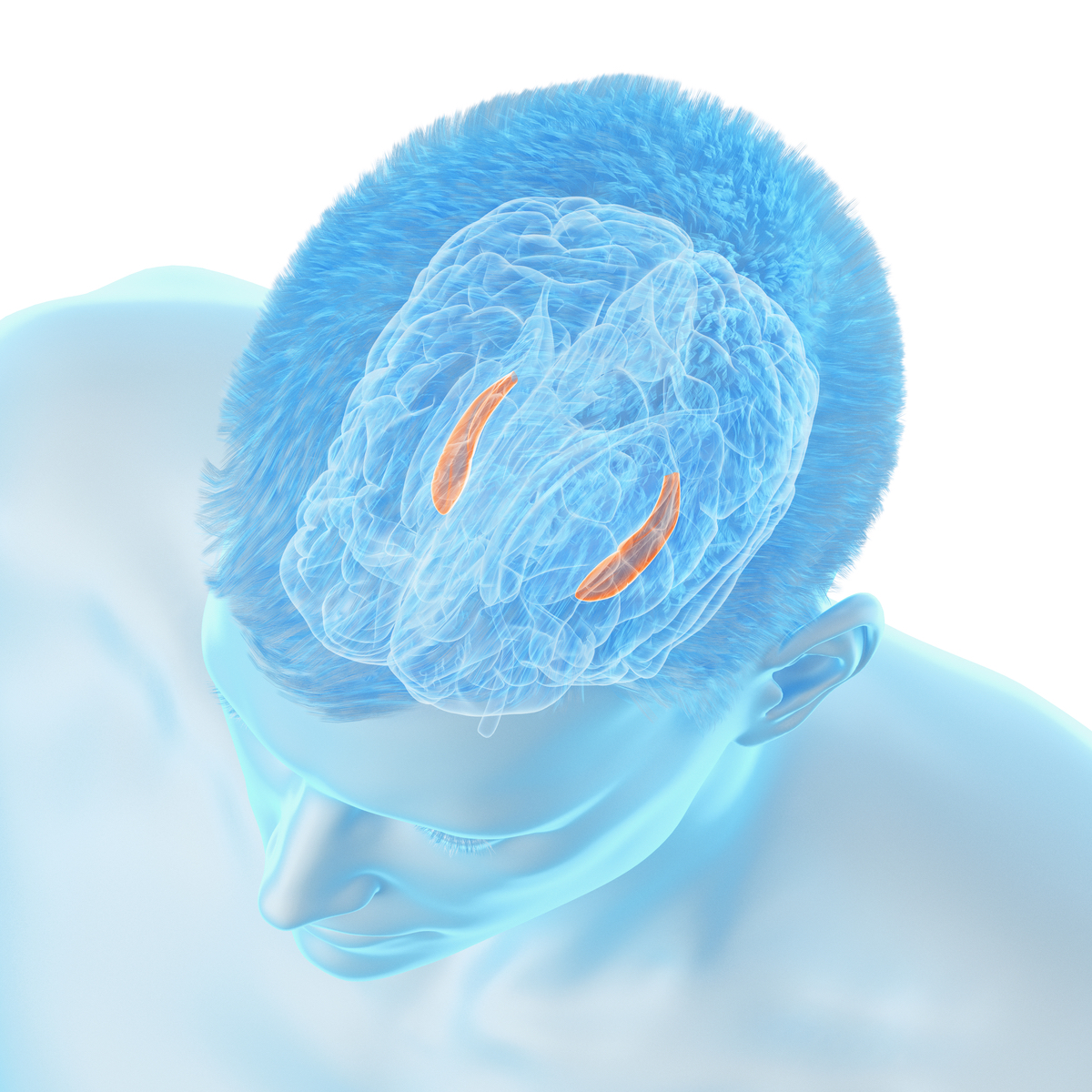
Junk Food Found to Impair Certain Aspects of Learning, Memory and Appetitive Behavior
Eating junk food can alter your brain's ability to help you regulate your junk food intake

Covid-19 and Modified Dietary Habits in an Italian Sample Population
- April 3, 2020
This research study assesses self-reported food consumption in a sample of Italians during the COVID-19 quarantine

COVID-19: The Inflammation Link and the Role of Nutrition in Potential Mitigation
This review speculates the importance of nutrition as a mitigation strategy to support immune function amid COVID-19

Changing Your Diet Can Help Tamp Down Depression, Boost Mood
More evidence that eating a healthy diet can help reduce symptoms of depression

Diet, Gut Microbes Affect Effectiveness of Cancer Treatment, Research Reveals
What we eat can affect the outcome of chemotherapy because of ripple effects that begin in our gut

More Evidence Links Ultra-Processed Foods to Health Harms
- March 1, 2020
People who eat lots of ultra-processed foods are more likely to develop heart disease and to die sooner than those who stick with foods in their original form, two large studies conclude.
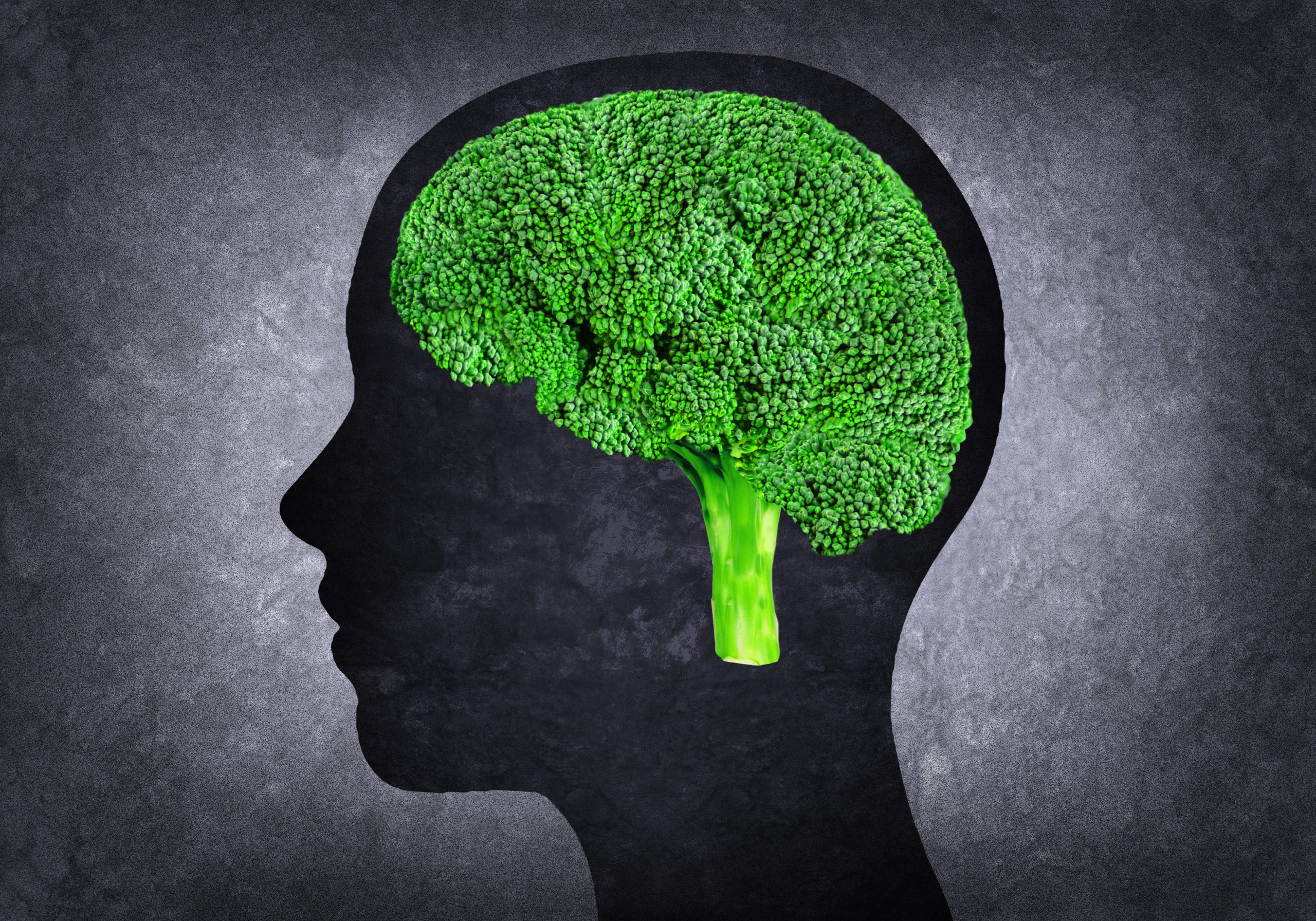
The Link Between Food and Mental Health
Can nutrition affect your mental health? A growing research literature suggests the answer could be yes
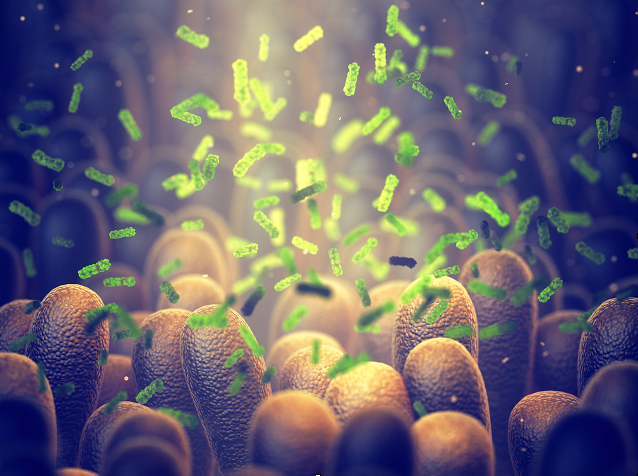
Simple Sugars Wipe Out Beneficial Gut Bugs
- December 27, 2018
Fructose and sucrose can make it all the way to the colon, where they spell a sugary death sentence for beneficial bacteria

Eating Green Veggies Improves Immune Defenses
- March 1, 2020
Researchers have found another good reason to eat vegetables
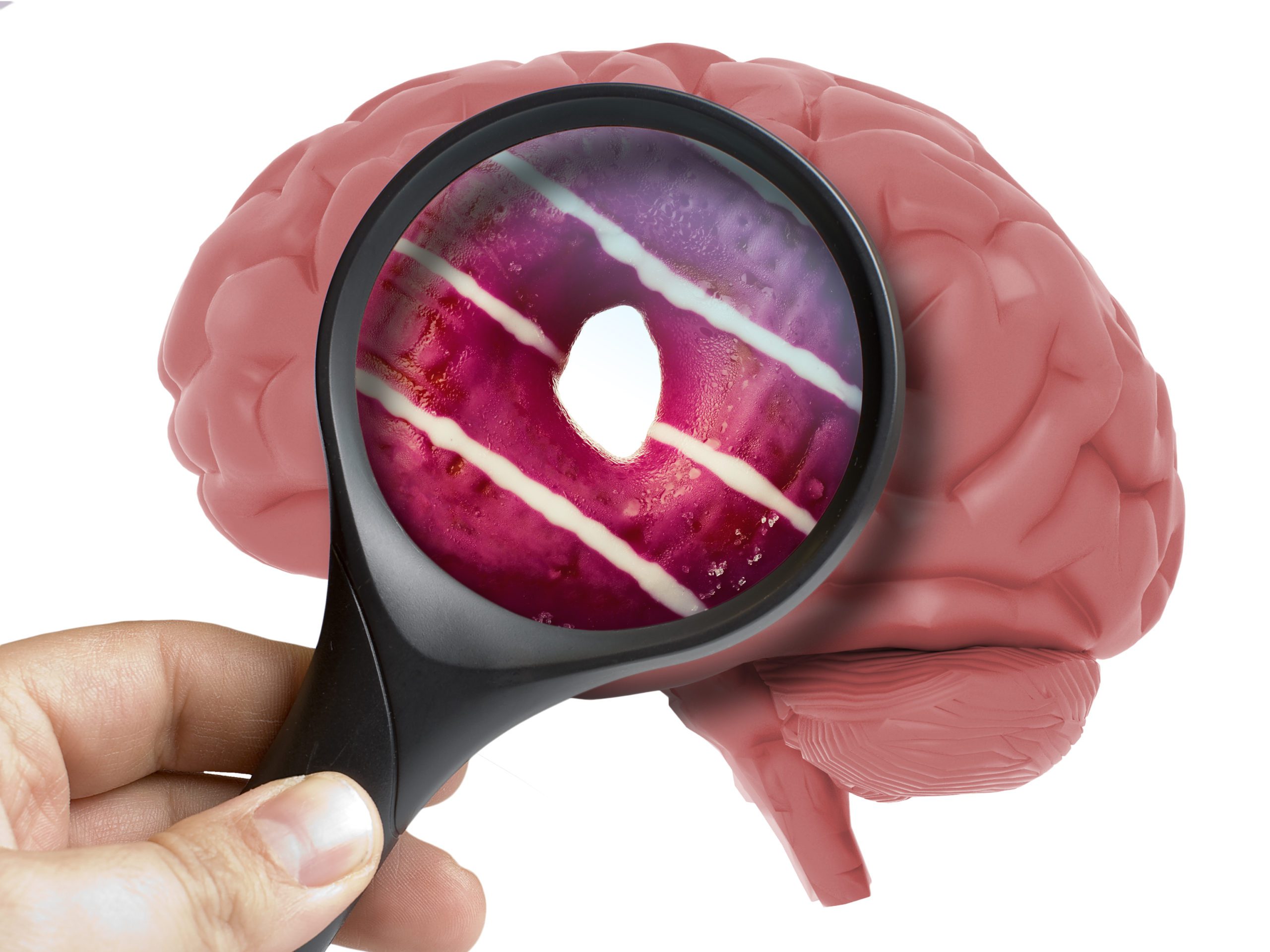
The Startling Link Between Sugar and Alzheimer’s
A high-carb diet and is associated high blood sugar is associated with cognitive decline

Cognitive Behavior Therapy Tops Other Psychotherapies in Reducing Inflammation
Psychological and behavioral therapies may be effective non-drug treatments for reducing disease-causing inflammation in the body

Probiotics Lower Rehospitalization Rates in Bipolar Disorder
The first clinical trial of probiotics in bipolar disorder is out, and the results look promising

Fast Food Makes the Immune System More Aggressive in the Long Term
- March 1, 2020
Unhealthy food seems to make the body's defenses more aggressive in the long term.

Stabilize Your Mood with Food
- May 1, 2020
There are at least three key ways that high-sugar diets can contribute to mood, concentration, and energy problems
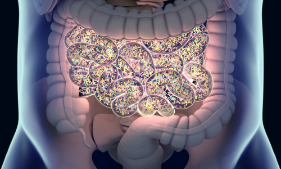
A Closer Look at the Importance of Gut Mechanisms in Depression
- February 7, 2020
The variety of genes in gut bacteria is greater than 100 times the quantity of the human genome.

Processed Food Hurts Your Immune System — And Your Kids’ Too
- March 1, 2020
A study examining the impact of the Western diet and lifestyle on our immune function

A Greater Role in Nutritional Health
Both what we eat—and how we eat it—directly influence our mental health, according to growing research
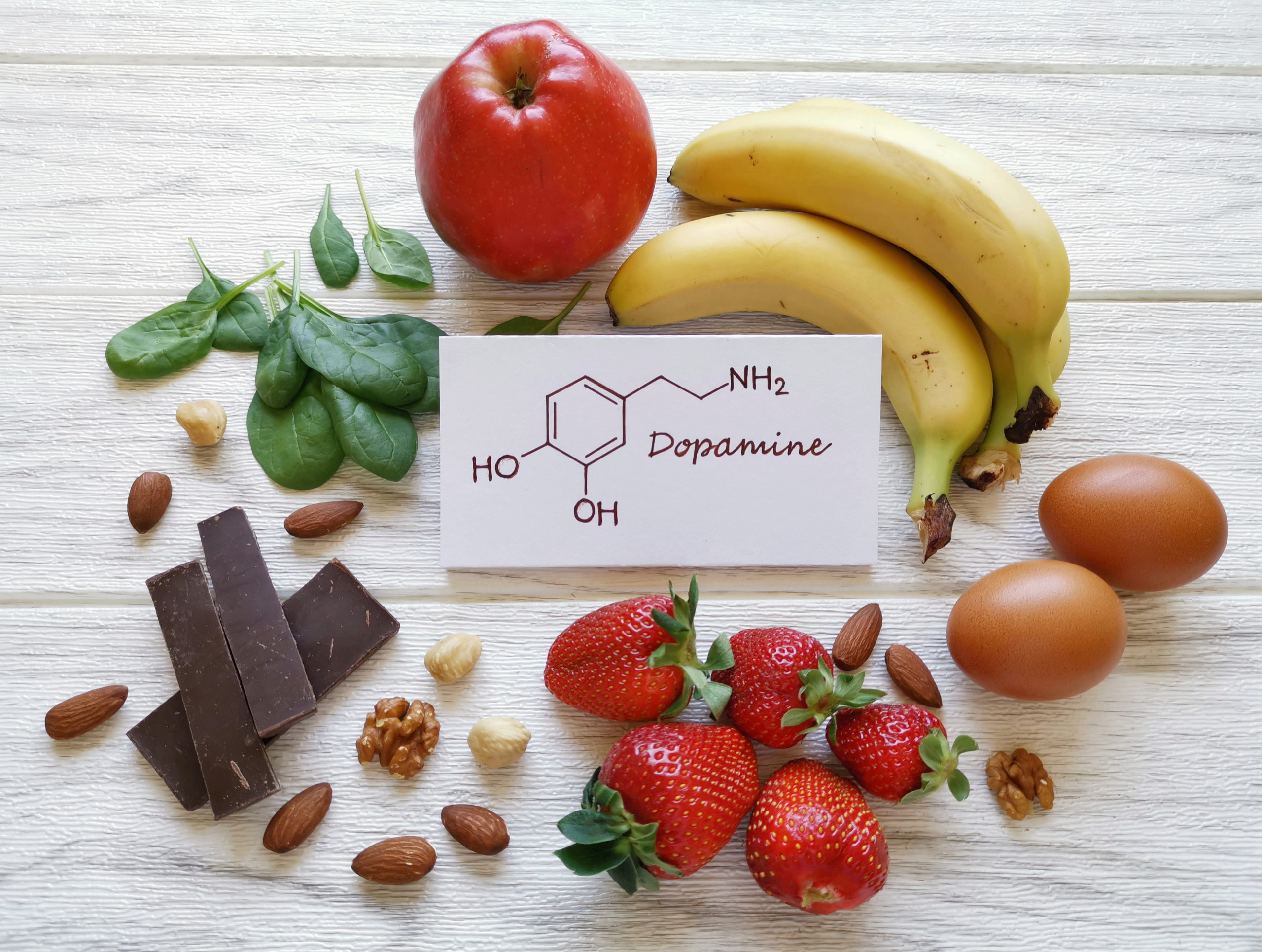
Can What We Eat Affect How We Feel?
- March 1, 2020
Nutritional psychiatrists counsel patients on how better eating may be another tool in helping to ease depression and anxiety and may lead to better mental health.
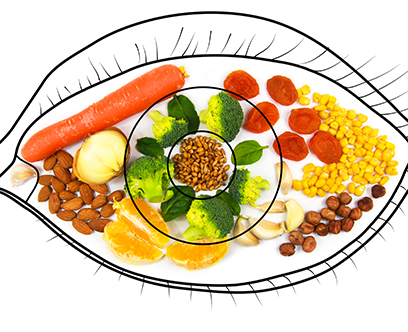
Could Junk Food Lead to Poor Eye Health as You Age?
- March 1, 2020
Aim to fill your plate with fruit, dairy, poultry, fish, and vegetables—instead of processed and fried foods—research suggests...

Sometimes Frozen Vegetables Can Be Even Healthier Than Fresh – Here’s Why
- March 1, 2020
Frozen veggies line the freezers from top to bottom at the grocery store. But with many myths floating around today discrediting frozen...

Coronavirus: How to Keep Your Gut Microbiome Healthy to Fight COVID-19
- March 1, 2020
Recent research has shown that the gut microbiome plays an essential role in the body’s immune response to infection and in maintaining overall health

Making Health and Nutrition a Priority During the Coronavirus (COVID-19) Pandemic
- March 1, 2020
Healthy eating is especially important for keeping your immune system in top condition. Here are some steps you can take to eat healthy in the times of COVID

A Greater Role in Nutritional Health
- November 1, 2018
Both what we eat—and how we eat it—directly influence our mental health

Drinking Plain Water is Associated With Decreased Risk of Depression
- September 20, 2018
Drinking plain water is associated with decreased risk of depression and anxiety in adults: results from a large cross-sectional study

The Lancet. “Globally, one in five deaths are associated with poor diet.”
- April 3, 2019
People in almost every region of the world could benefit from rebalancing their diets to eat optimal amounts of various foods and nutrients

Dark Chocolate for Depression
- September 5, 2019
Dark chocolate lowers the risk of depression, according to a cross‐sectional survey of over 13,000 US adults

Lifestyle is a threat
- October 18, 2019
The evolution of dietary and hygienic habits in Western countries is associated with a decrease in the bacteria that help in digestion.

Preventable Cancer Burden Associated With Poor Diet in the United States
- June 1, 2019
Diet is an important risk factor for cancer that is amenable to intervention.


